
33rd International Epilepsy Congress
Centara Grand & Bangkok Convention Centre at Centralworld in Bangkok, Thailand
22 - 26 June 2019
The 33rd International Epilepsy Congress (IEC) attracted registrants from 100 countries. More than 200 speakers led sessions spotlighting diagnostic tools, research progress and treatment advances, as well as career development, psychosocial issues and special populations.

Participants shared knowledge, and took part in discussions, lectures, debates, brainstorming sessions, Ask the Expert sessions and the new Talking Shop format, as well as more than 700 presentations of original data in platform sessions and posters. The Presidential Symposium, awards and a music-and-dance-filled opening ceremony rounded out five days of education, connection, camaraderie and commitment to improving the lives of people with epilepsy.
More than a dozen informal, interactive “Talking Shop” sessions were organized by regional and topical commissions. Their goals were to let members know what the commissions are working on, define problems that need to be addressed and seek ideas from members. The sessions included shorter lectures, with more time for questions and interaction. They appeared to be wildly successful, with many participants staying after the time was up, in order to continue discussions.
The congress also hosted six debates. Topics included whether to recommend medical marijuana for uncontrolled focal seizures, whether to taper medication in certain patients with well controlled epilepsy, whether the new classifications of seizures and epilepsy truly improve diagnosis and treatment, and whether smartphones could help to distinguish between epileptic and psychogenic non-epileptic seizures.
In addition, the program included more than 40 other sessions, with topics such as status epilepticus, neuroimaging, pediatric and adult epileptology, neuropsychology, basic science, genetics, surgery, drug-resistant epilepsy, surgery and treatment.
Education remained a top priority; this congress saw the advent of an unusually robust teaching program. Eight courses were offered: a full-day course on neuroimaging, four half-day courses and three shorter courses. Many of the courses enjoyed full registration. In addition, multiple 90-minute teaching sessions were held throughout the congress: two on Sunday, Monday and Wednesday and three on Tuesday.
The third IEC Leadership Development Course welcomed 30 young leaders from around the globe for a day and a half of sessions in Bangkok. Topics included optimizing your leadership style, strategic planning, communication, running effective meetings, conflict resolution and more
Epilepsy: A public health imperative
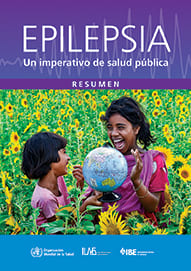
On Monday 24 June, the congress hosted the launch of the WHO-ILAE-IBE Global Report on Epilepsy. Titled Epilepsy: A public health imperative, the 146-page report is a juggernaut of information about epilepsy and its continued effect on millions around the world. Speakers at the special session included Svetlana Akselrod, Devora Kestel and Tarun Dua (WHO); Samuel Wiebe and Alla Guekt (ILAE); and Martin Brodie and Mary Secco (IBE).
Targeted at policymakers and program managers, the report identifies the main actions necessary to reduce gaps in knowledge, care and research. Currently, 77% of countries do not have a standalone policy or plan for epilepsy.
Highlighting the startlingly high treatment gap in low-resource countries, the increased mortality risk of people with epilepsy and the stigma and human rights violations that still persist globally, the report makes clear to all that epilepsy is a high public health priority.
Some facts from the report:
- 80% of people with epilepsy live in low- or middle-resource countries.
- Up to 75% of people in those countries are not receiving treatment.
- About 70% of people with epilepsy can be seizure free with access to medicine, which can cost as little as US$5 per year.
- People with epilepsy have a mortality rate three times that of the general population.
- Half of adults with epilepsy have at least one other health condition – often depression (23%) or anxiety (20%), which can make seizures worse and affect quality of life.
- Among children with epilepsy, as many as 40% have developmental and learning difficulties.
- Human rights violations are widespread among people with epilepsy, including being denied education, employment and in some countries, the right to marry.
“Now we have a guidance document that we can take to policy makers,” said Secco, IBE’s Secretary General. “What I value in this document is its use of language. It tells me that epilepsy is a burden, that it’s a devastating global health concern. Epilepsy is a big deal.”
“This first global report on epilepsy, led by the WHO in collaboration with the ILAE and IBE, is expected to lead the way in creating global strategies in epilepsy, which stand to benefit millions of people suffering from epilepsy,” said Wiebe, president of the ILAE.
Presidential Symposium
The title of the 33rd IEC’s Presidential Symposium sounded futuristic - “Predicting the future of epilepsy”. But the speakers made clear that for some technologies, the future is now.
Talks covered algorithms in clinical practice (Lara Jehi, USA), intelligent neuro-devices (Mark Cook, Australia), machine learning and artificial intelligence (Philippe Ryvlin, Switzerland), as well as the impact of climate change on epilepsy (Sanjay Sisodiya, UK) and the future of epilepsy care in resource limited countries (Angelina Kakooza, Uganda).
“Technological advances such as artificial intelligence, an abundance of digital health information, and access to high-performance computing is transforming the face of epilepsy care,” said Wiebe. “We need to harness the benefits of these technologies in epilepsy, and learn how to provide care in this new environment.”
Program highlights
Epilepsia special issue: Abstracts for 33rd IEC
With more than 60 informational and research sessions, the congress offered a vibrant mix of issues, from classic discussion to novel concepts. Some highlights:
- Screening patients for depression and suicidality can be done quickly and efficiently, noted speakers in a Talking Shop session hosted by the ILAE Psychiatry Commission and Psychology Task Force. Yet screening for both conditions is relatively rare. Speakers recommended the NDDI-E screening tool, which can be administered on waiting-room tablets before an appointment, or in only a few minutes during an appointment.
- In a Main Session on novel therapies, speakers offered intriguing research on preventing epileptogenesis, closed-loop treatment using optogenetics, and the development of biomarkers for epilepsy risk after traumatic brain injury.
- Several sessions reinforced the notion that epilepsy prevention extends far beyond the realm of neurology. Efforts must encompass multiple areas of public health, including infection control, better prenatal care, more widespread immunization programs and improved traffic safety laws.
- Accessing treatment in resource-poor countries can be difficult if not impossible. In some areas, nearly 100% of people with epilepsy are not receiving treatment. WHO’s “fight against epilepsy” initiative in Ghana was successful in partially closing the country’s 85% treatment gap through the education of nearly 1,400 health care personnel, including traditional healers.
- Though about 70% of people with epilepsy can have their seizures controlled with medications, this percentage has not increased in several decades. Who are the 30% of people with drug-resistant epilepsy, and what measures can be taken to move them along the path to seizure freedom?
Young Epilepsy Section (YES)
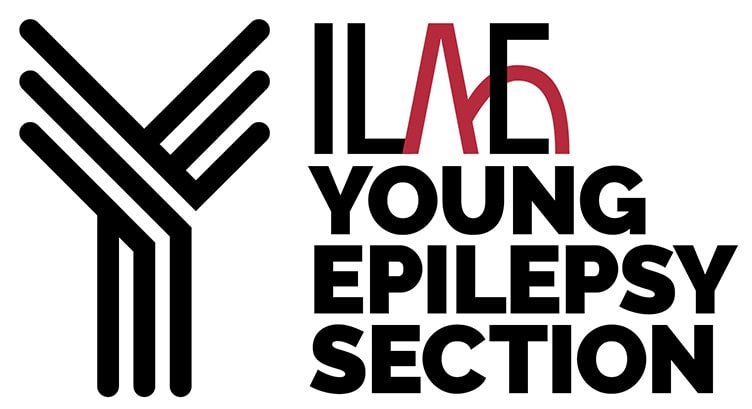
The ILAE YES, which celebrated its first anniversary in May 2019, is quickly establishing itself as a prolific and innovative group. In Bangkok, YES scheduled a full slate of educational sessions and social activities.
"We had plenty of excellent speakers, but many of the best comments and contributions came from the audience,” said Galovic. “The strength of the IEC is face-to-face interaction, and it was encouraging to see epilepsy experts, junior or senior, interacting with one another in such a meaningful way.”
From brainstorming sessions to comprehensive career development talks to yoga breaks, the events often attracted a standing-room only audience to the YES area of the exhibition hall.
"It was fantastic to see such high interest in the YES sessions in the exhibition hall,” said YES President Marian Galovic. “What particularly stood out was how such an open and informal setting caught the attention of people who might not have otherwise attended such a session."
YES also introduced its new peer-to-peer mentoring program in Bangkok, in which experienced fellows and postdocs act as mentors to younger colleagues at the congress, and possibly beyond.
Mentoring Programs, Teaching Program, and YES Poster Tour
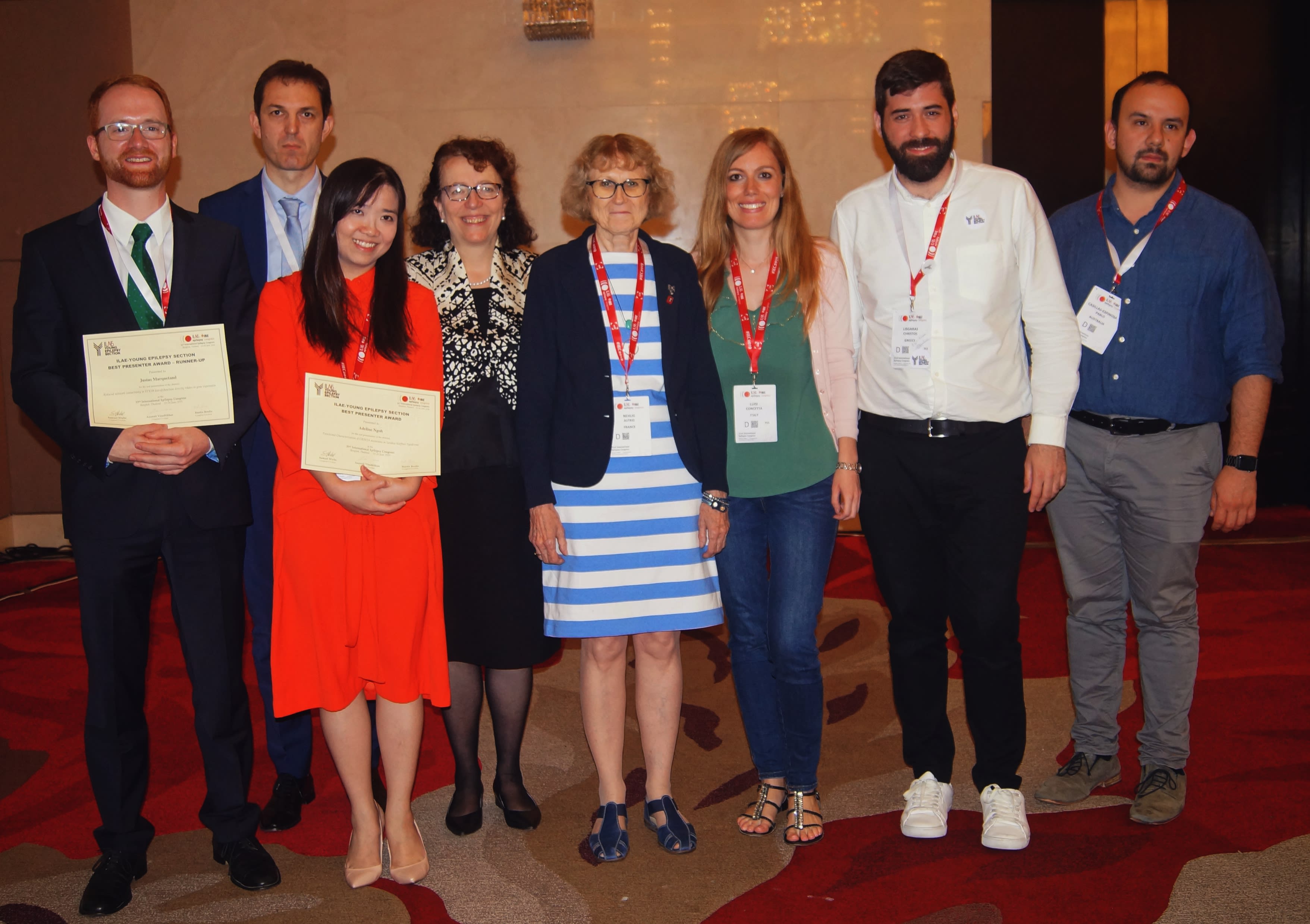
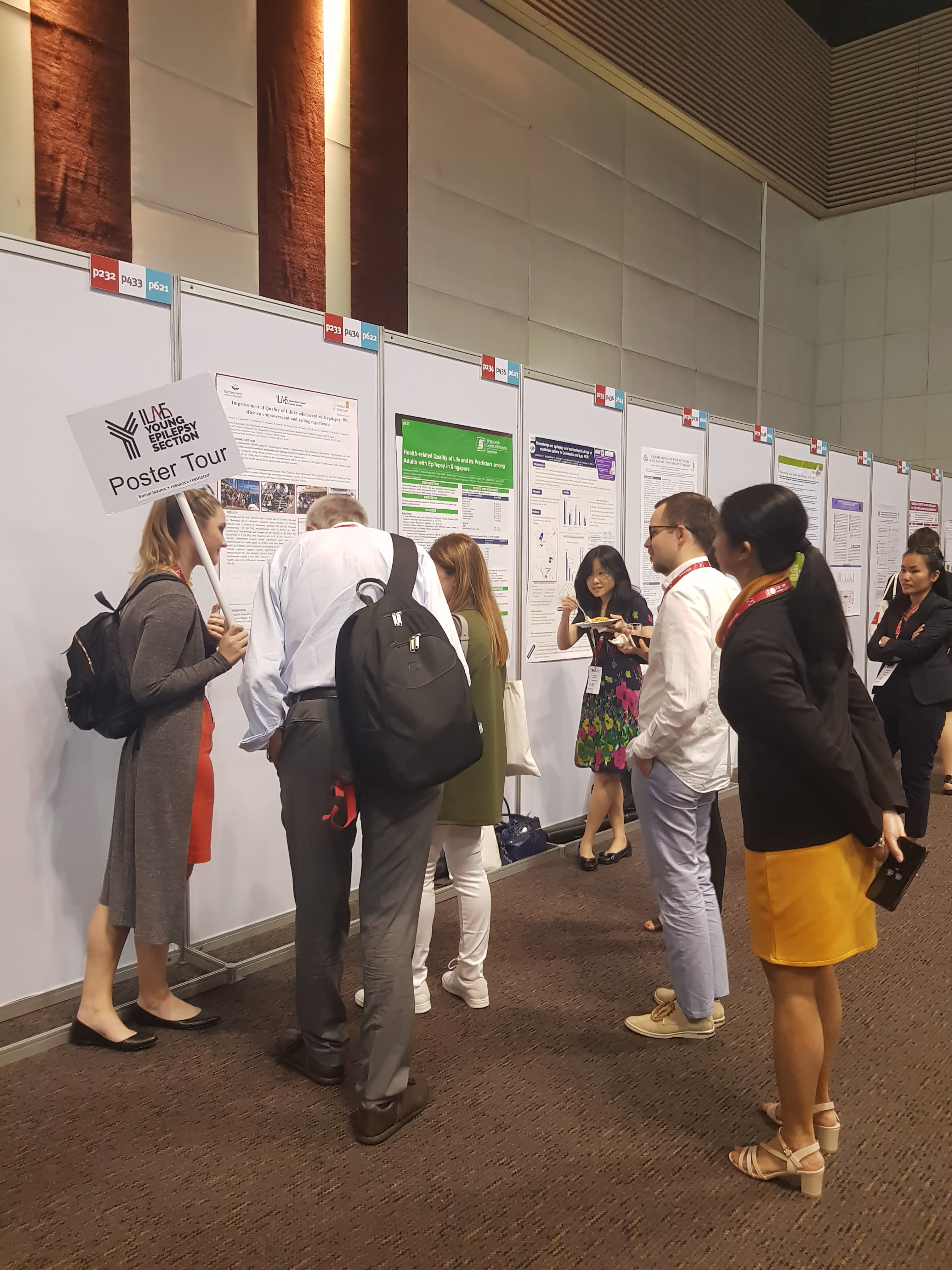
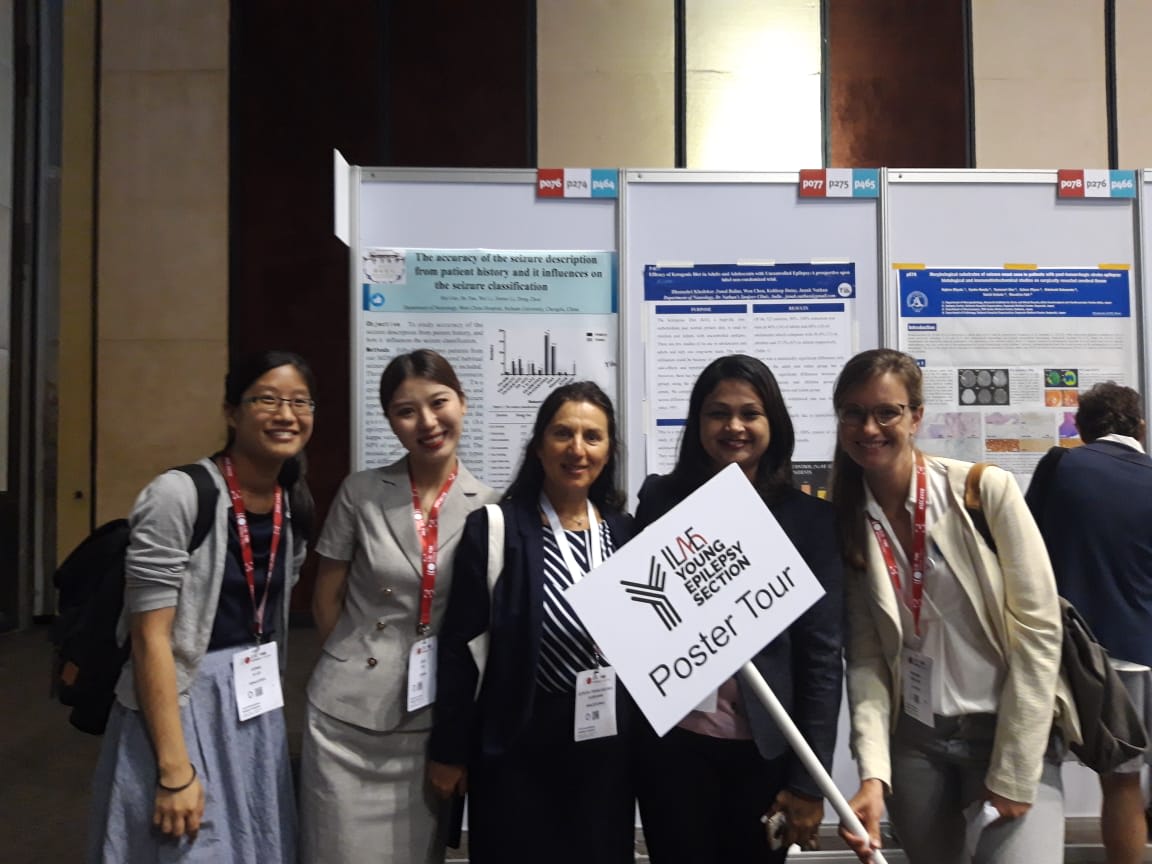
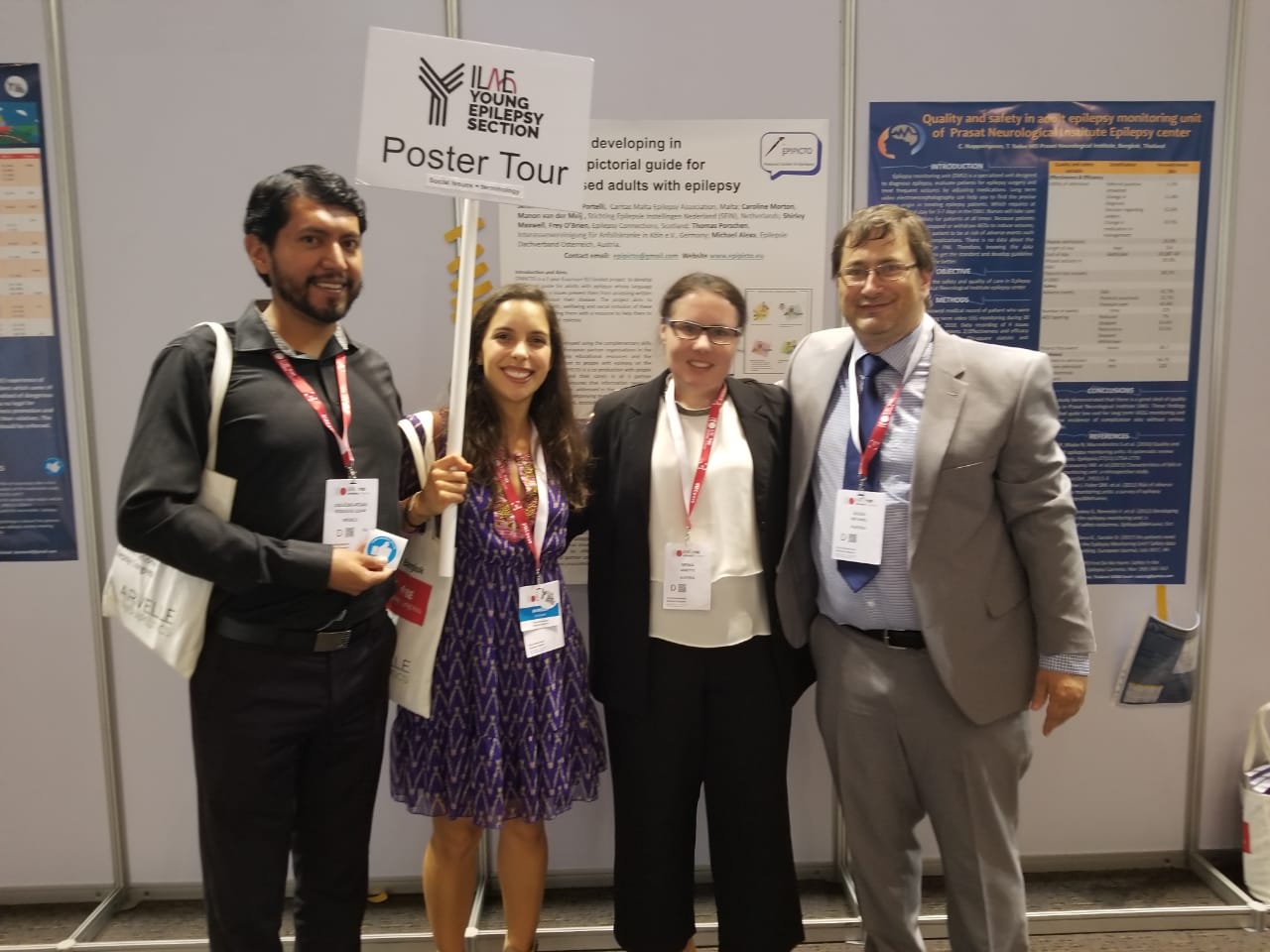
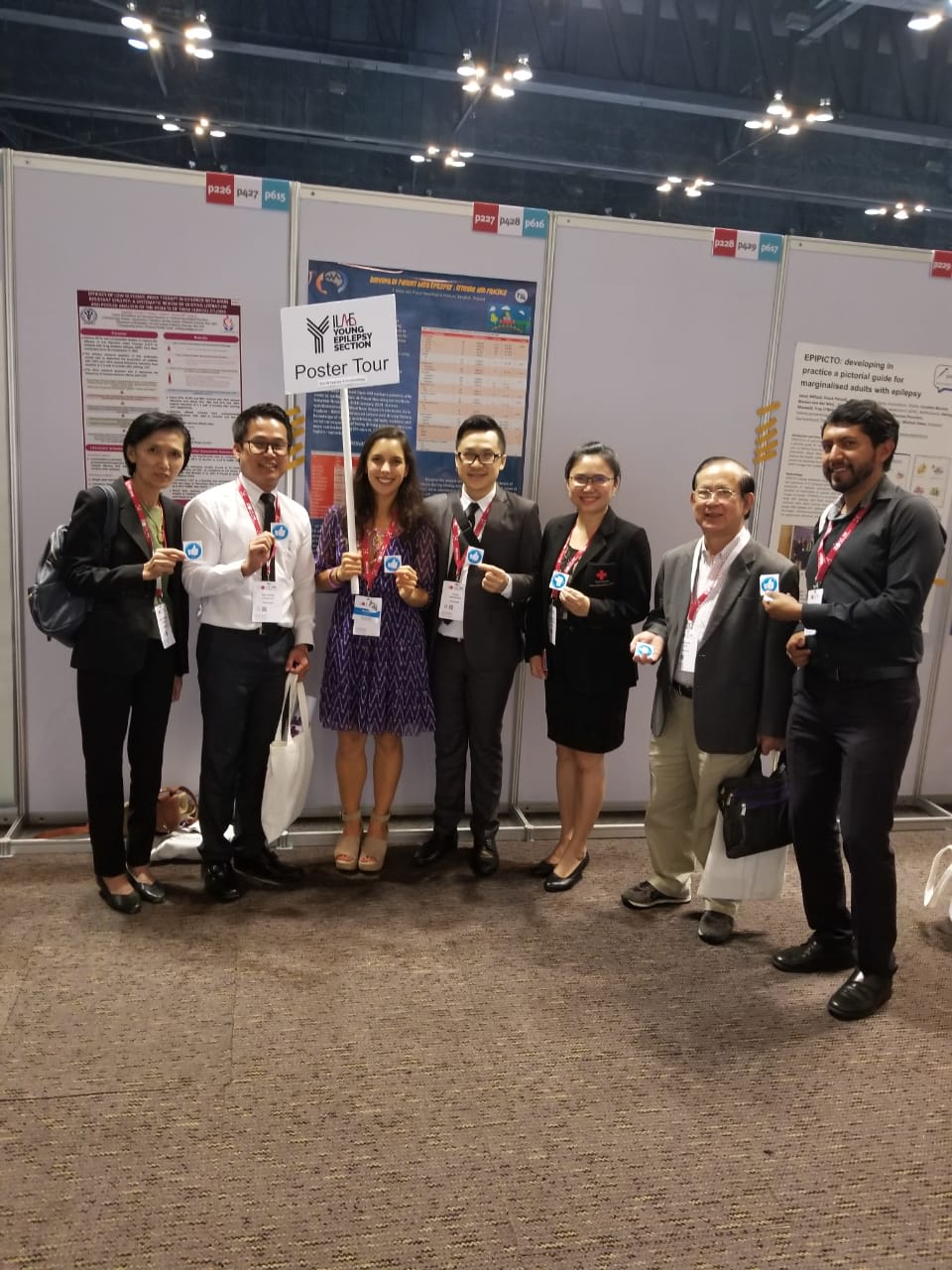
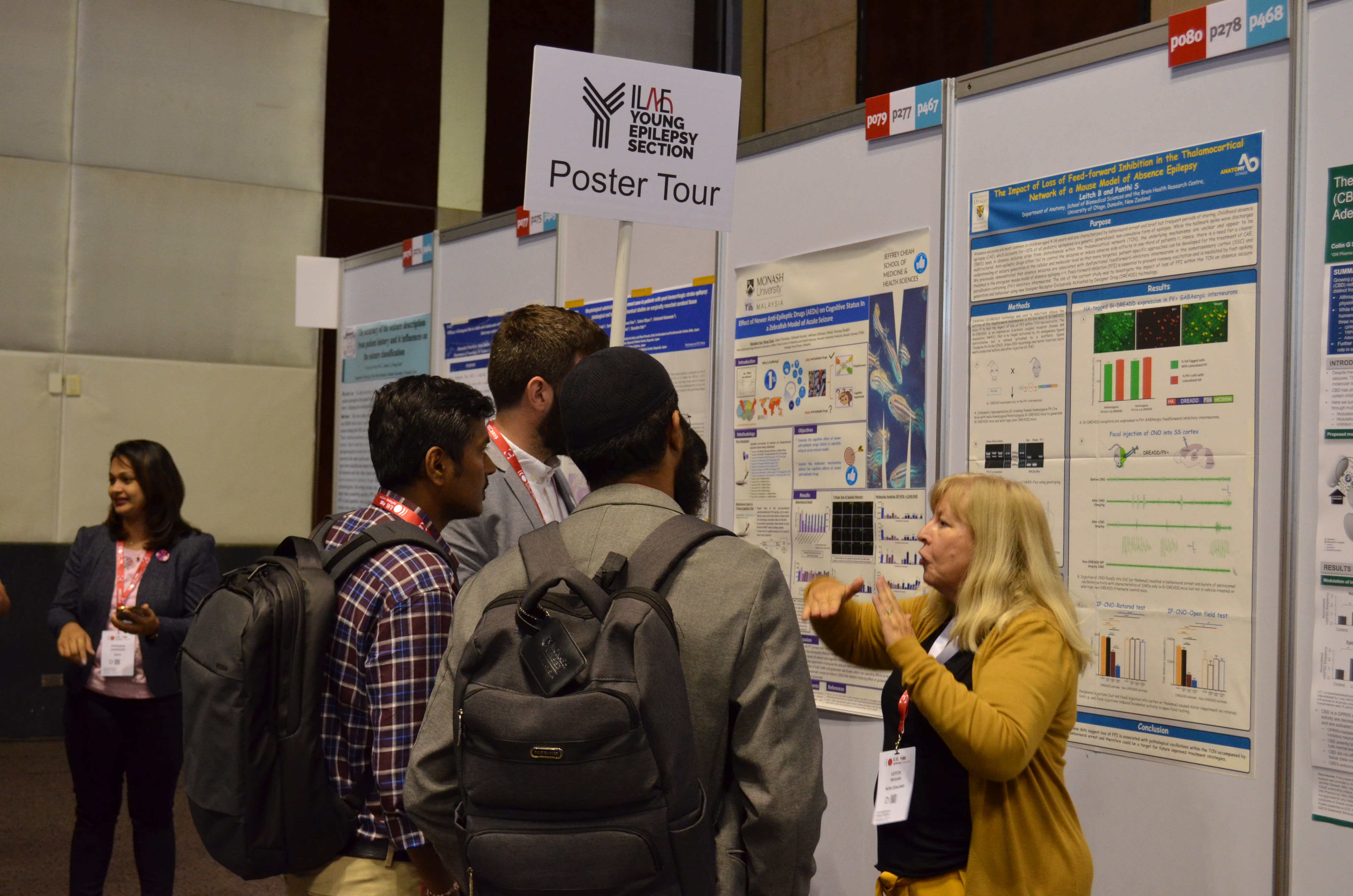
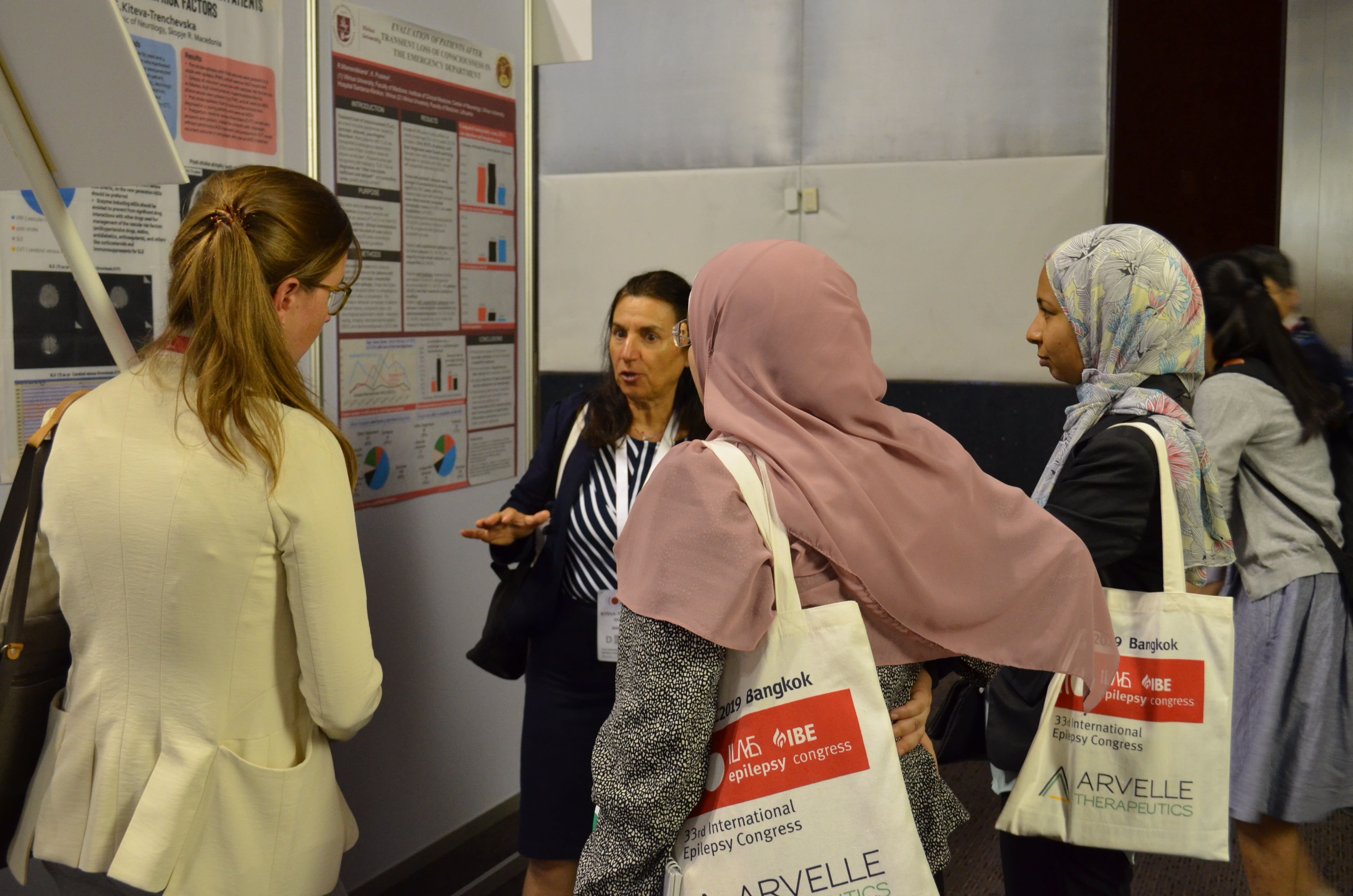
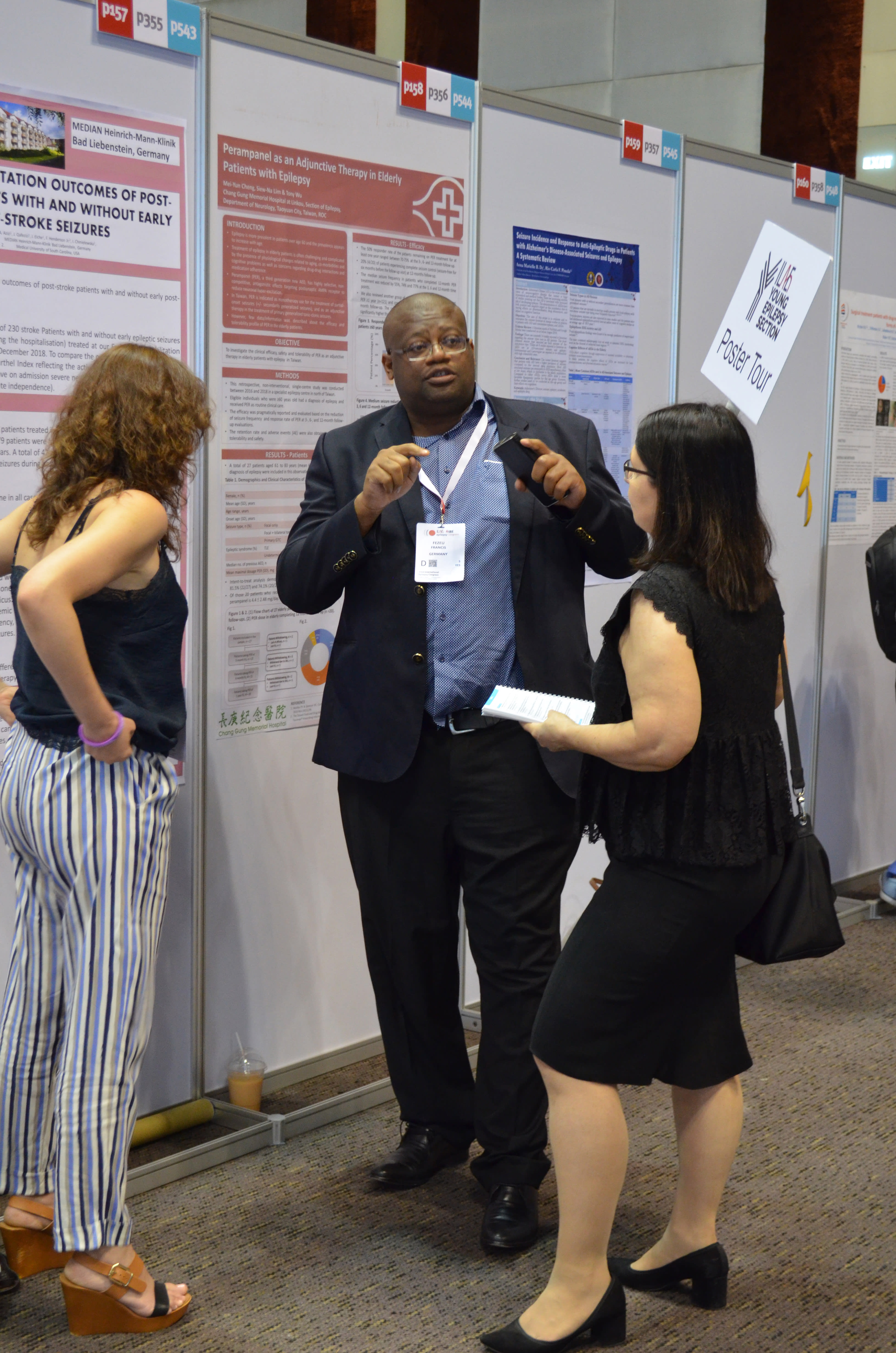
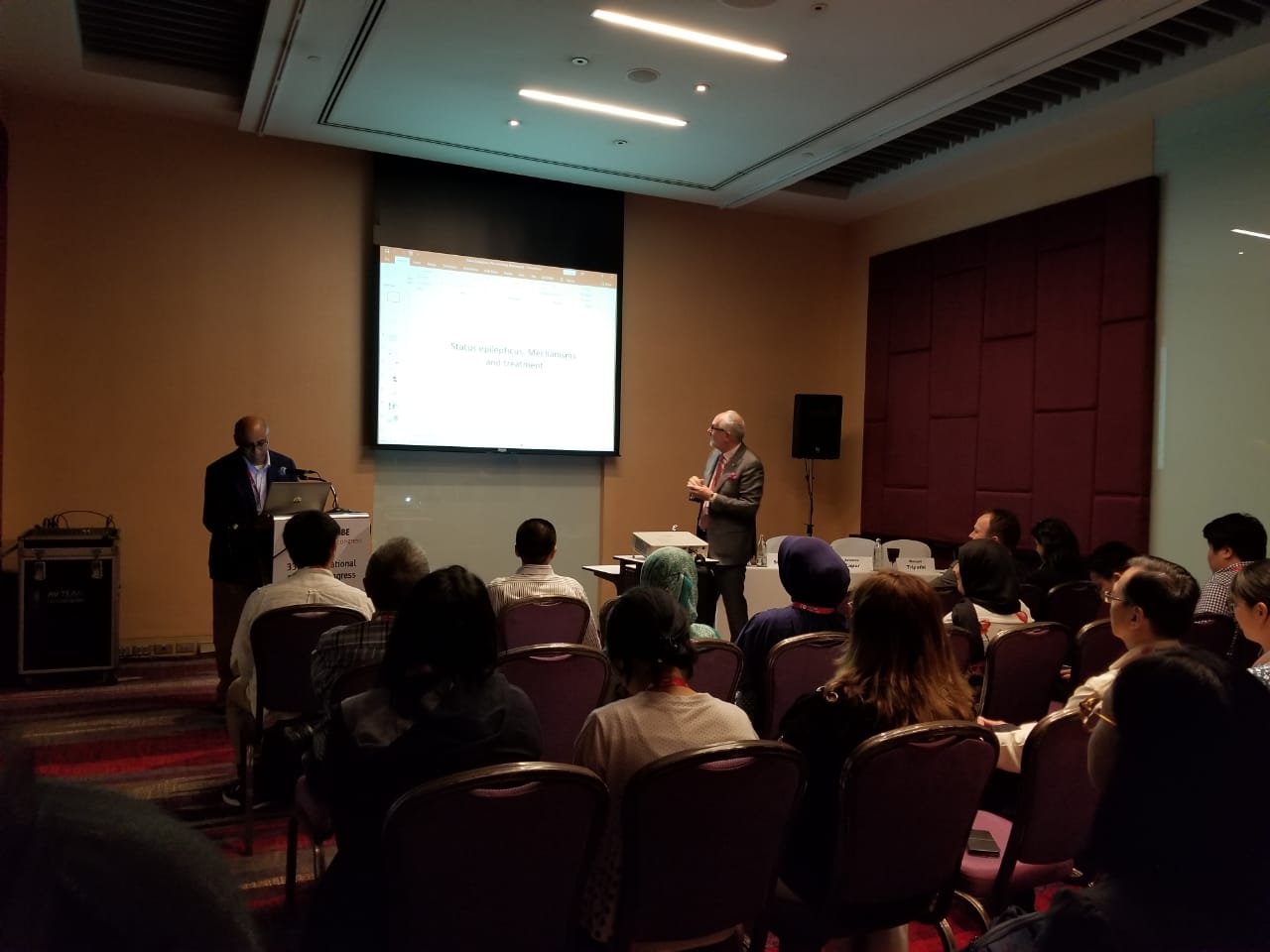
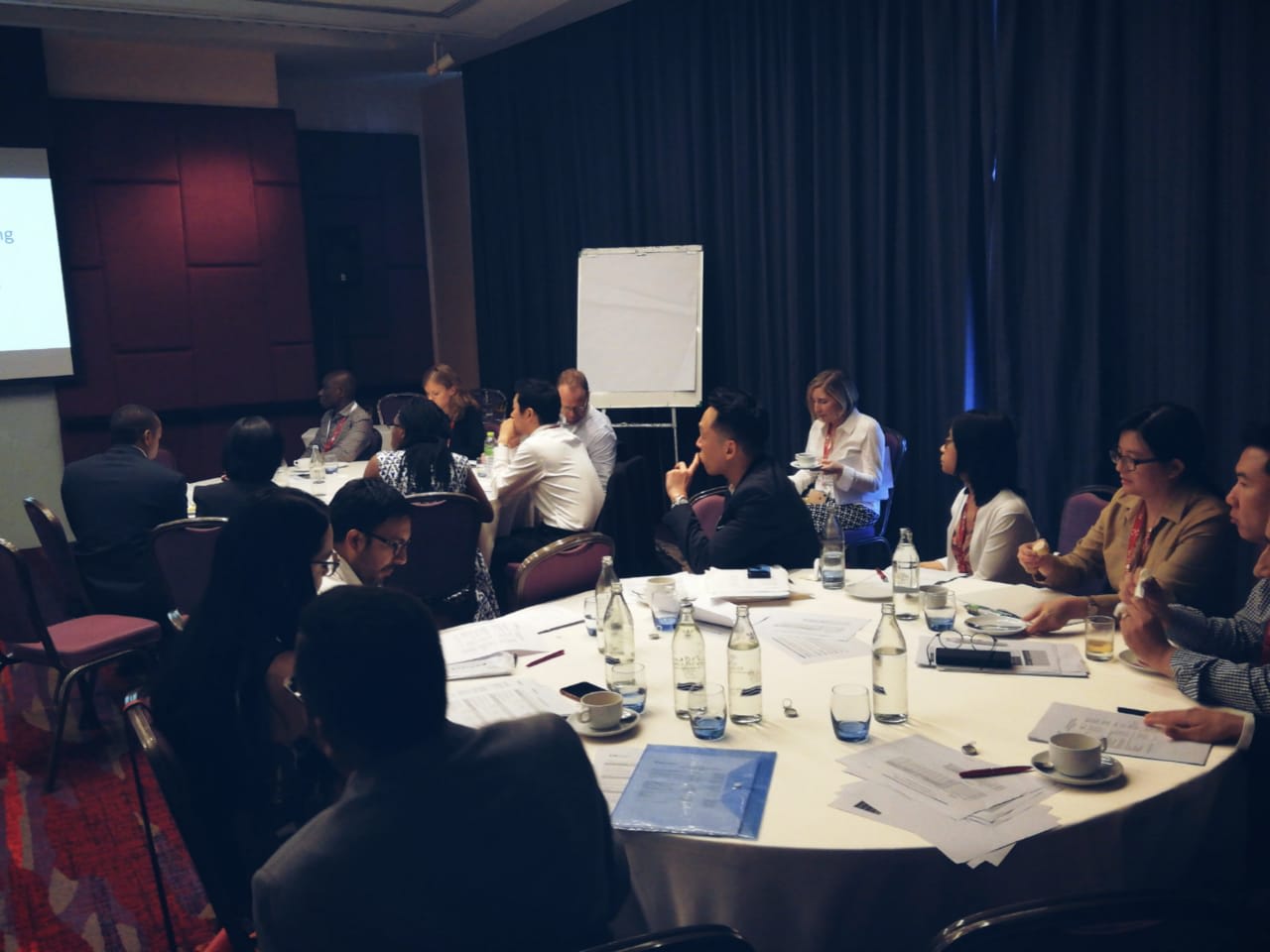
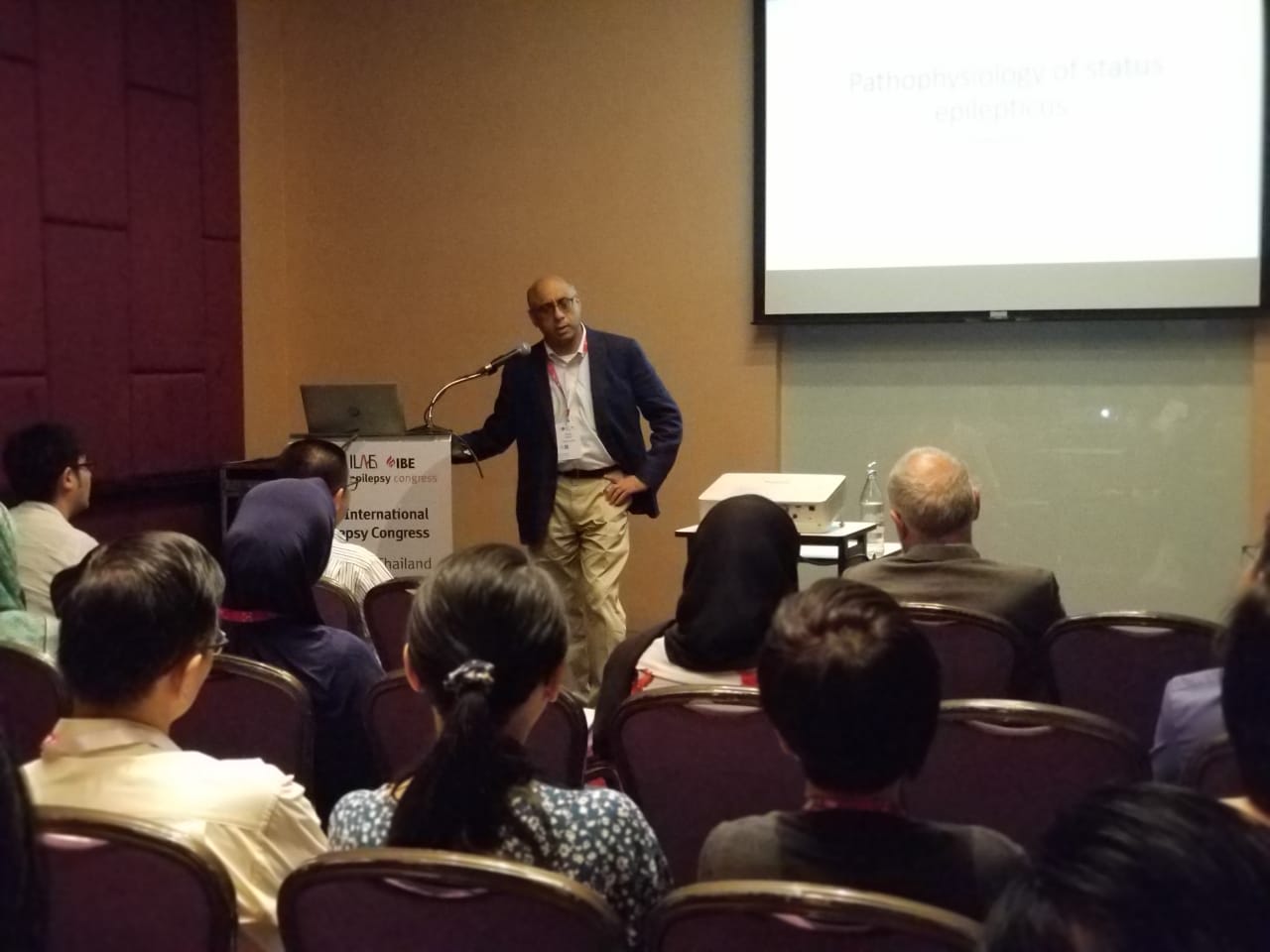
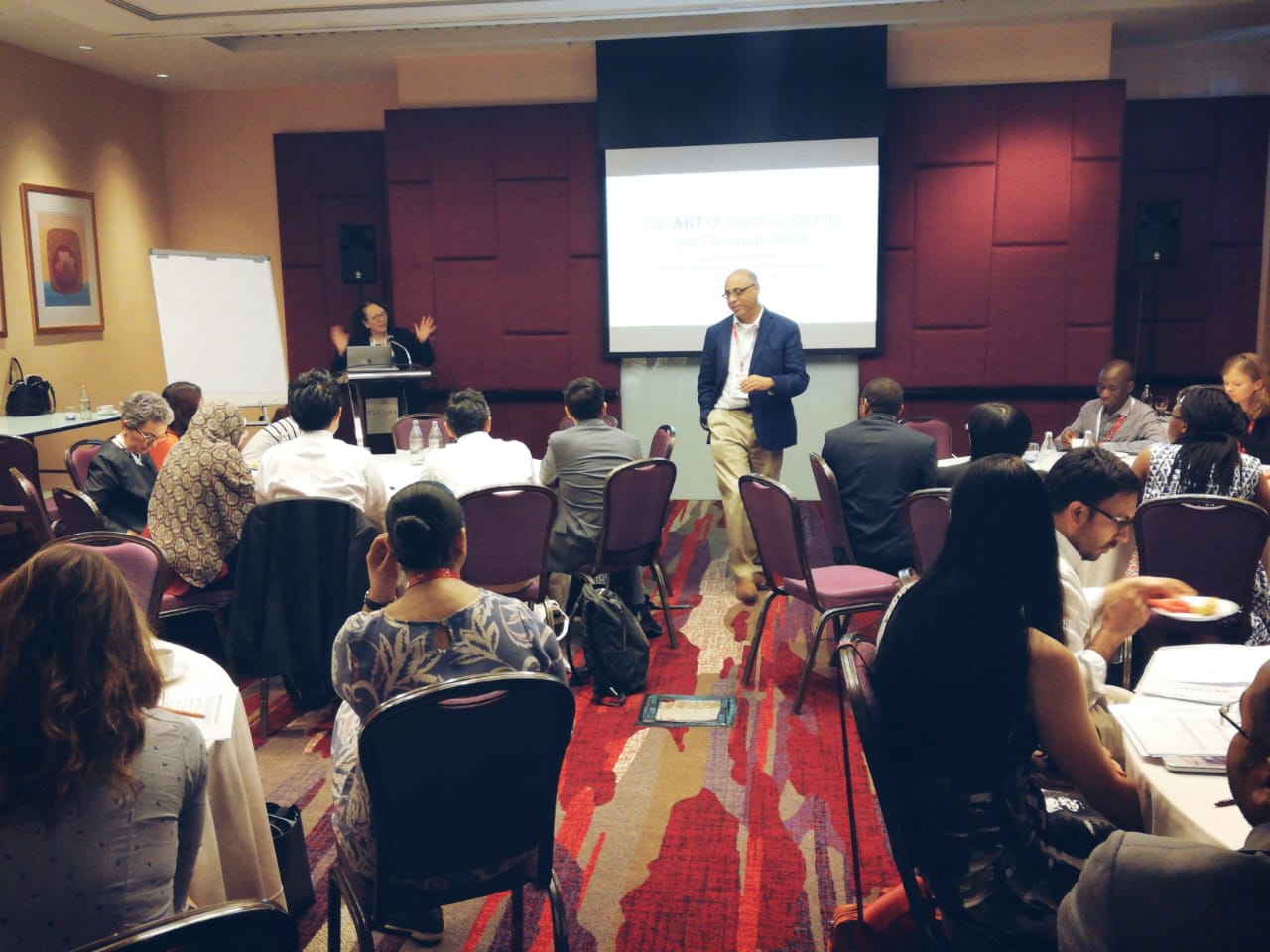
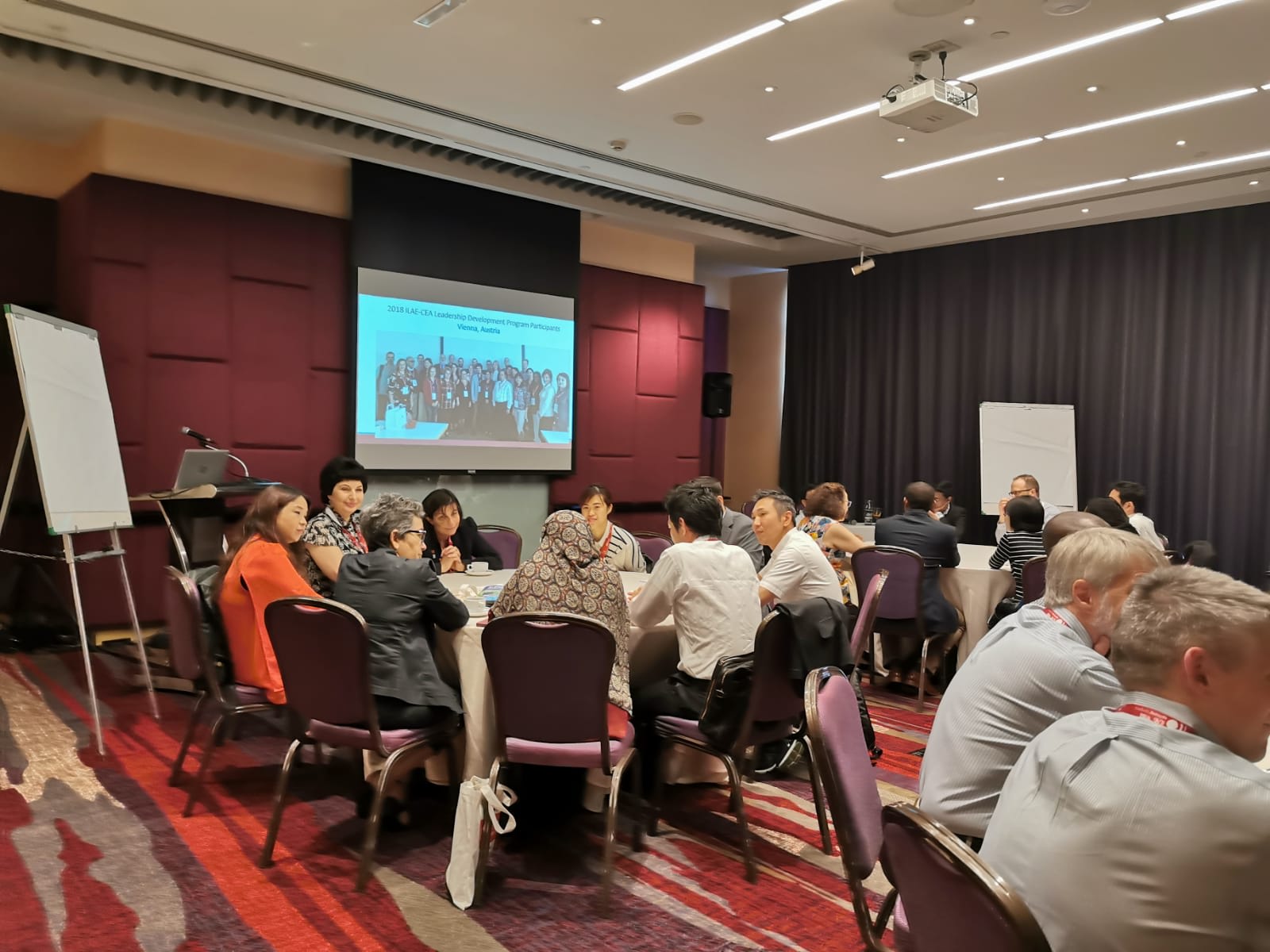
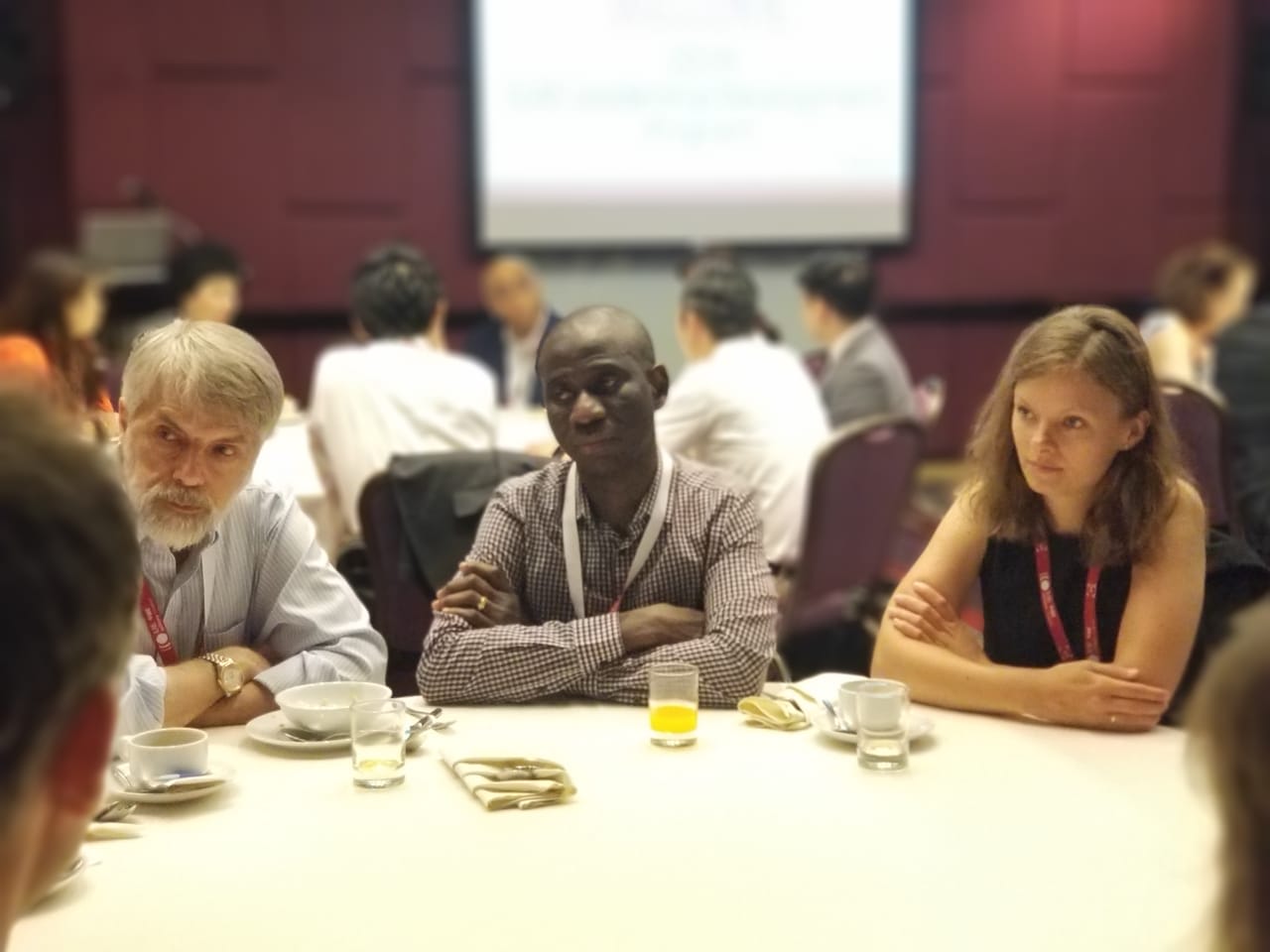
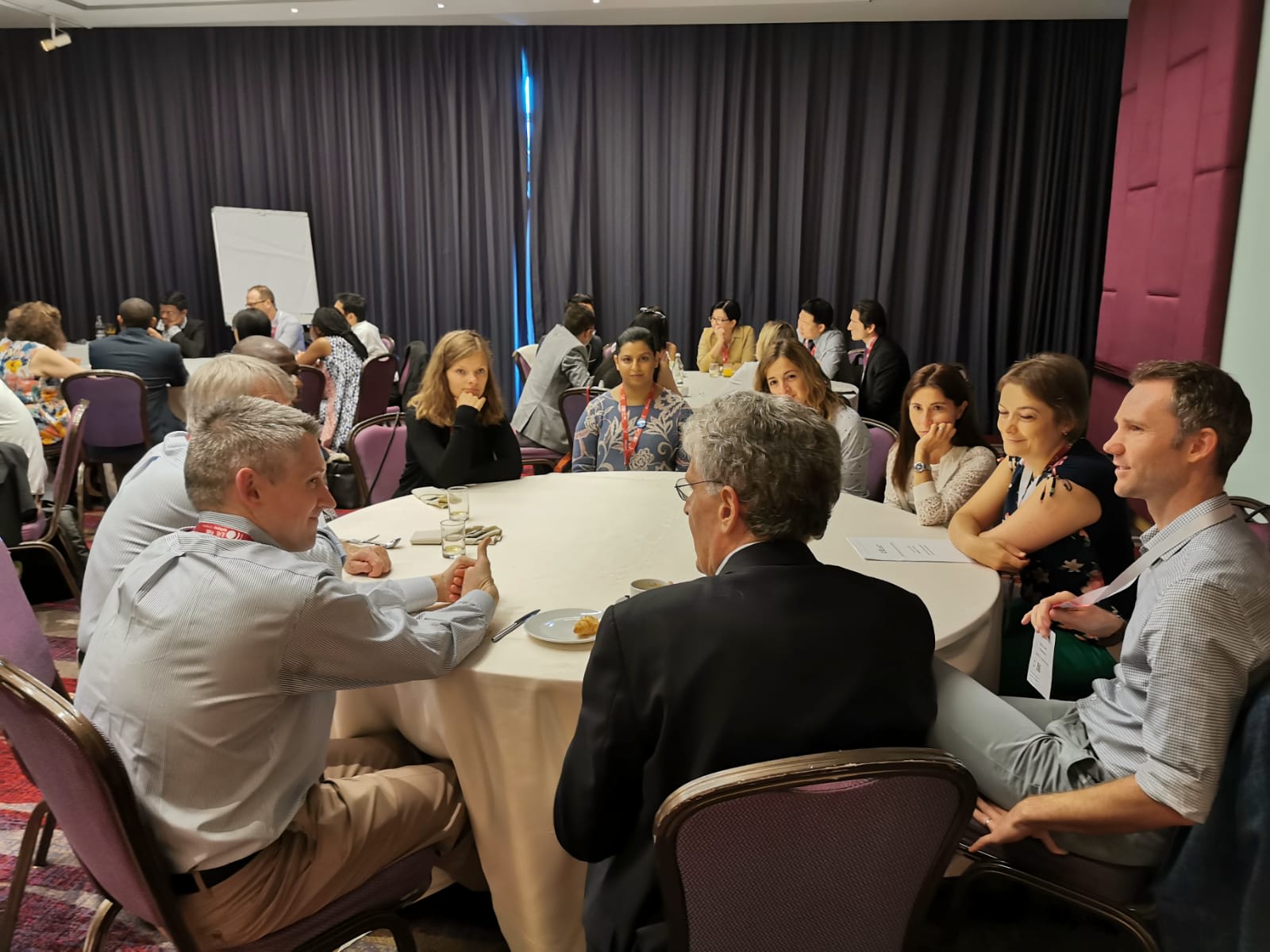
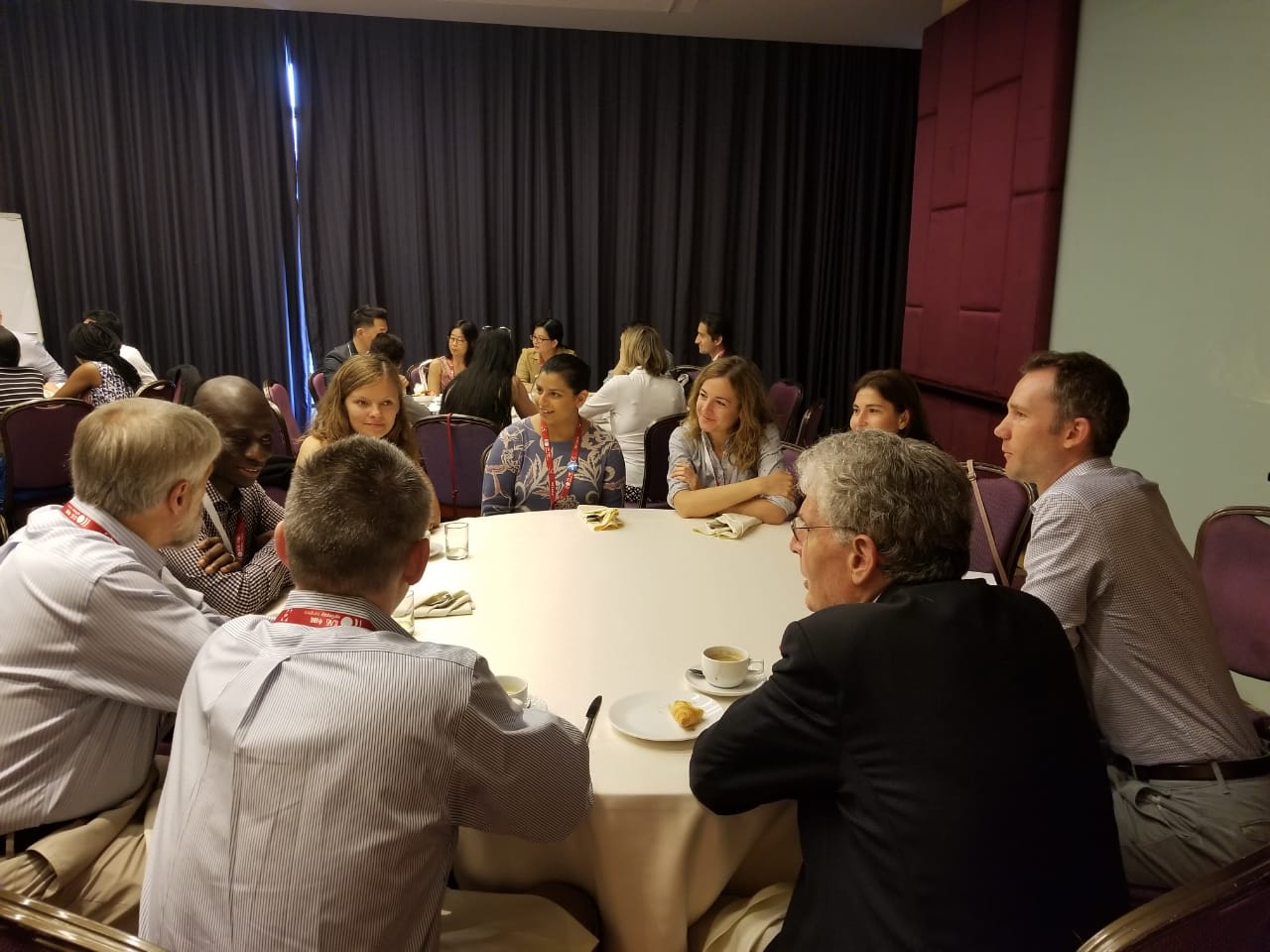
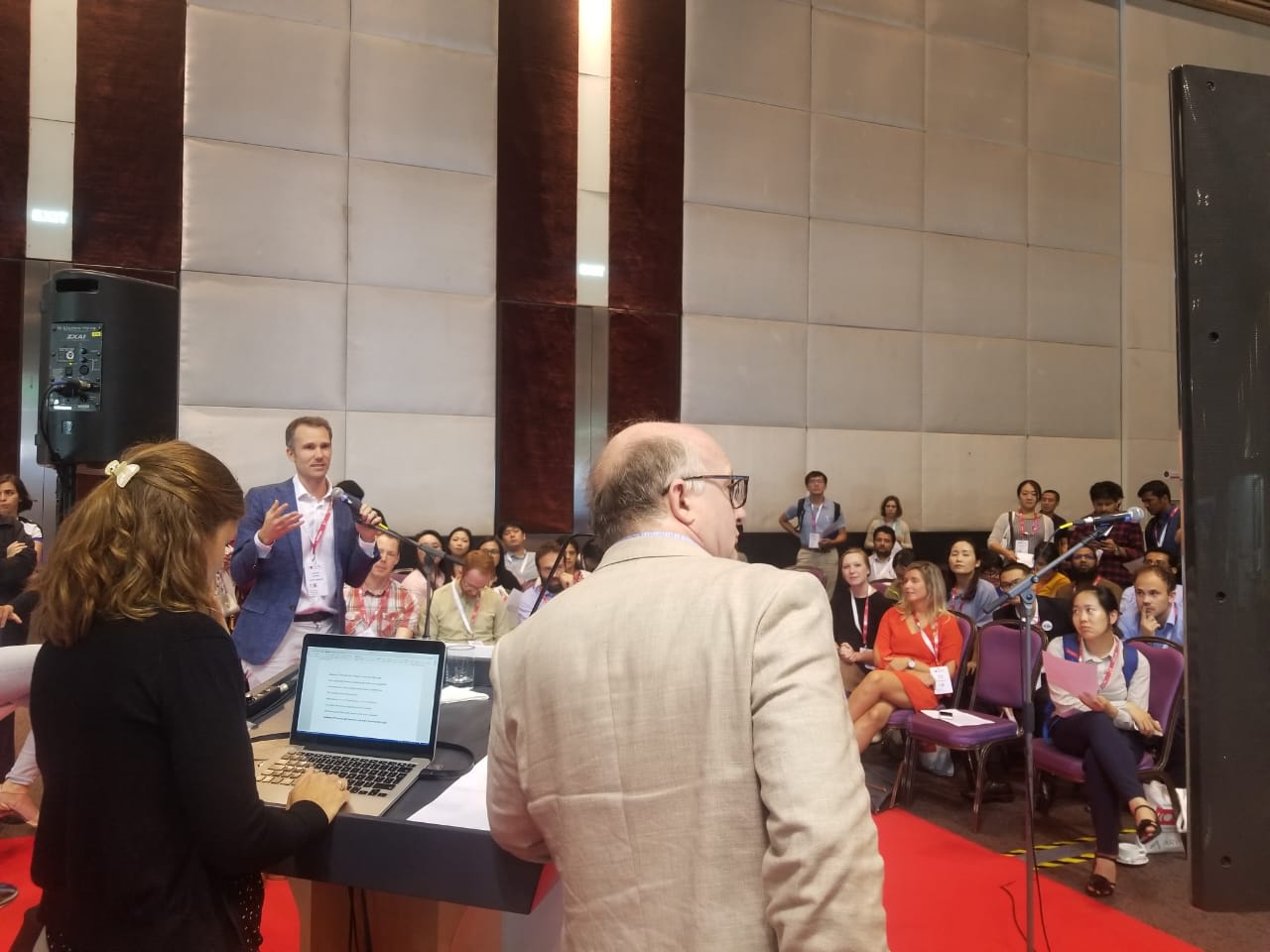
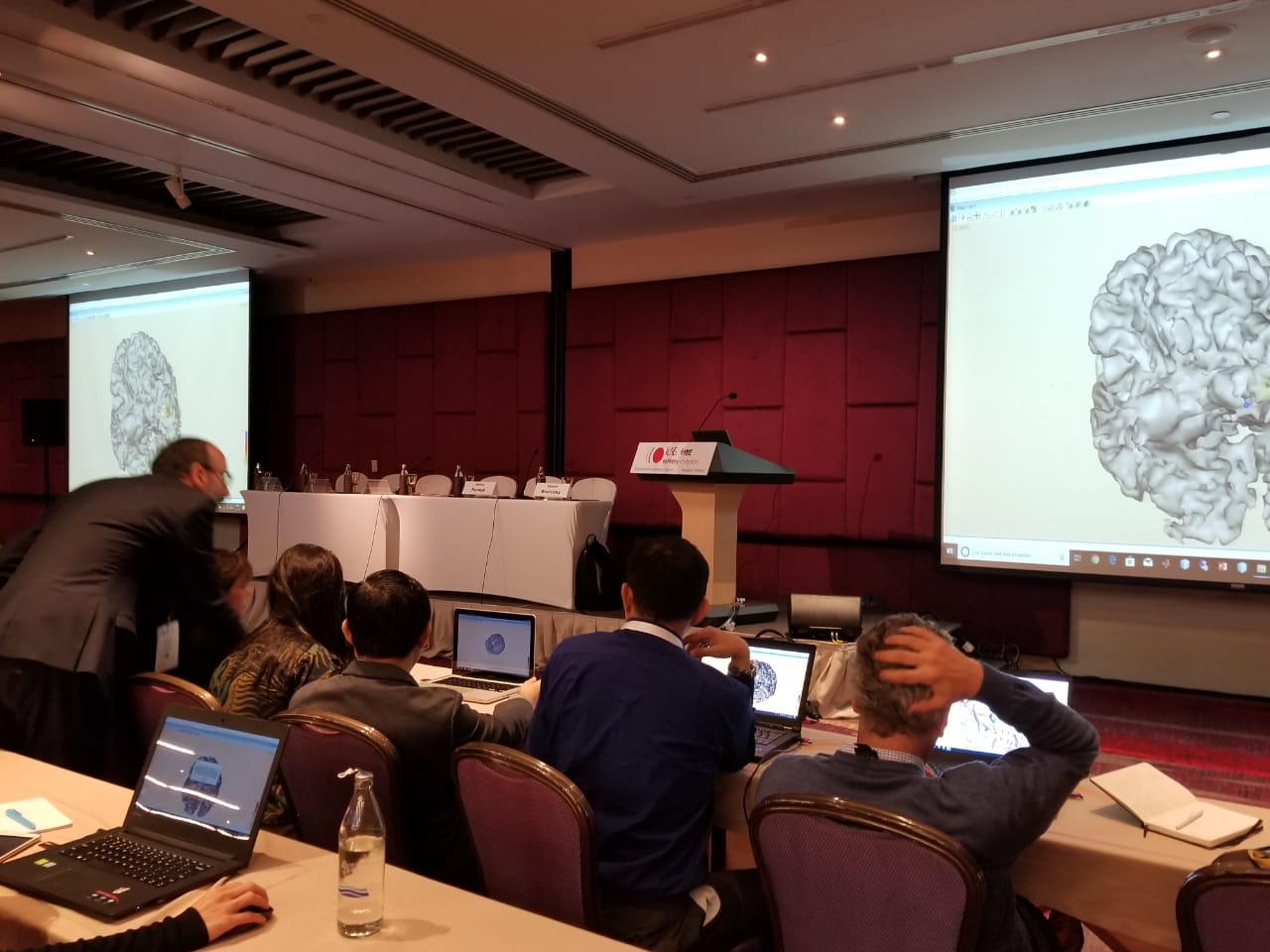
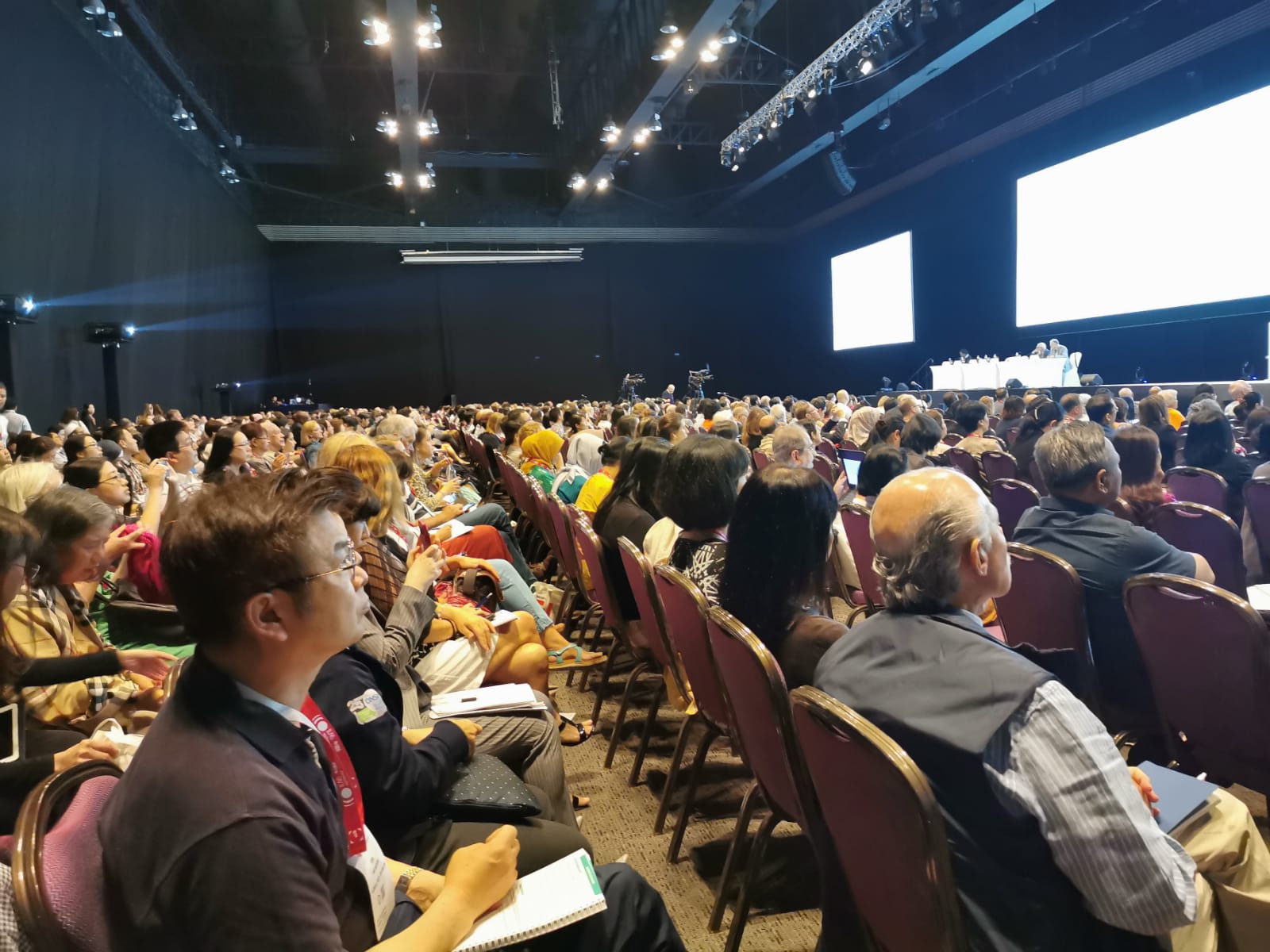

Awards
Lifetime Achievement Award
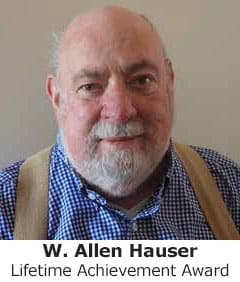
Willard Allen Hauser (USA) received the Lifetime Achievement Award, the highest honor bestowed by IBE-ILAE. The award recognizes and individual who has made an exceptional and outstanding personal contribution to activities to advance the cause of epilepsy.
Professor Hauser is Professor Emeritus of Neurology and Epidemiology at Columbia University, New York, where he has taught, conducted research and cared for people with epilepsy for the past 40 years.
He conducted seminal studies on age- and gender-related incidence and prevalence, prognosis, quantification of risk, and mortality. His studies revolutionized our understanding of the epidemiology of, and risk factors for, epilepsy. He has served, and continues to serve, in many capacities on regional, national and international organizations that seek to improve the lives of people with epilepsy. He receives this award for his contributions to epilepsy research, his mentoring of generations of epileptologists and his service to the epilepsy community.
Social Accomplishment Award:
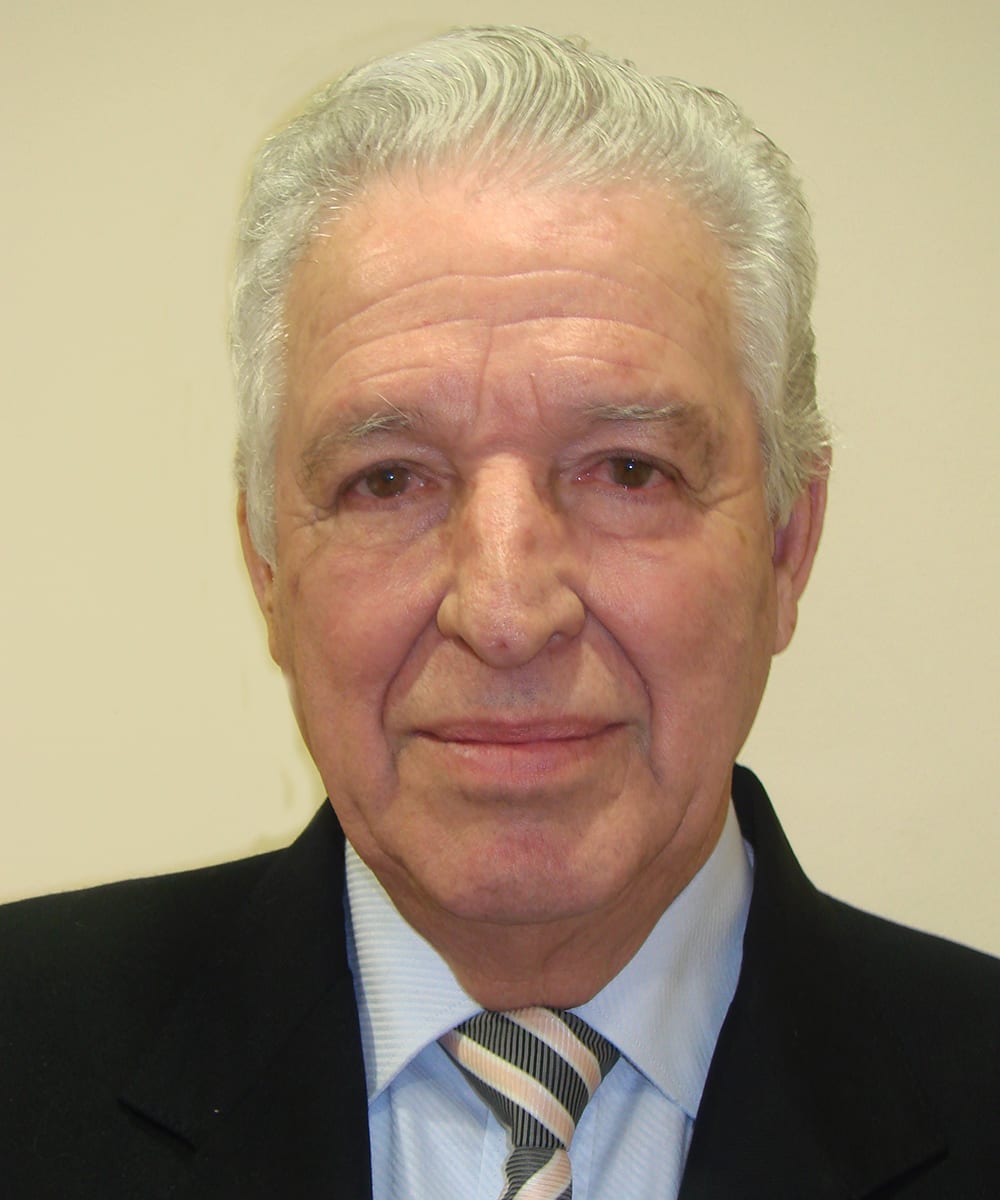
Carlos Acevedo Schwartzmann (Chile) received the Social Accomplishment Award, which recognizes and individual with an enduring commitment to improving the social circumstances of people with epilepsy.
Dr. Acevedo began his career in Chile, serving as president of the Chilean League Against Epilepsy four times. He spearheaded several projects and programs to help those with epilepsy, including a financial trust find that provides monetary benefits, resources and support to college students with epilepsy. He also has served as IBE vice president for the Latin American region, and as Secretary General. His activities seek to bring epilepsy out of the shadows and improve the lives of people with epilepsy, as well as their families and caregivers.
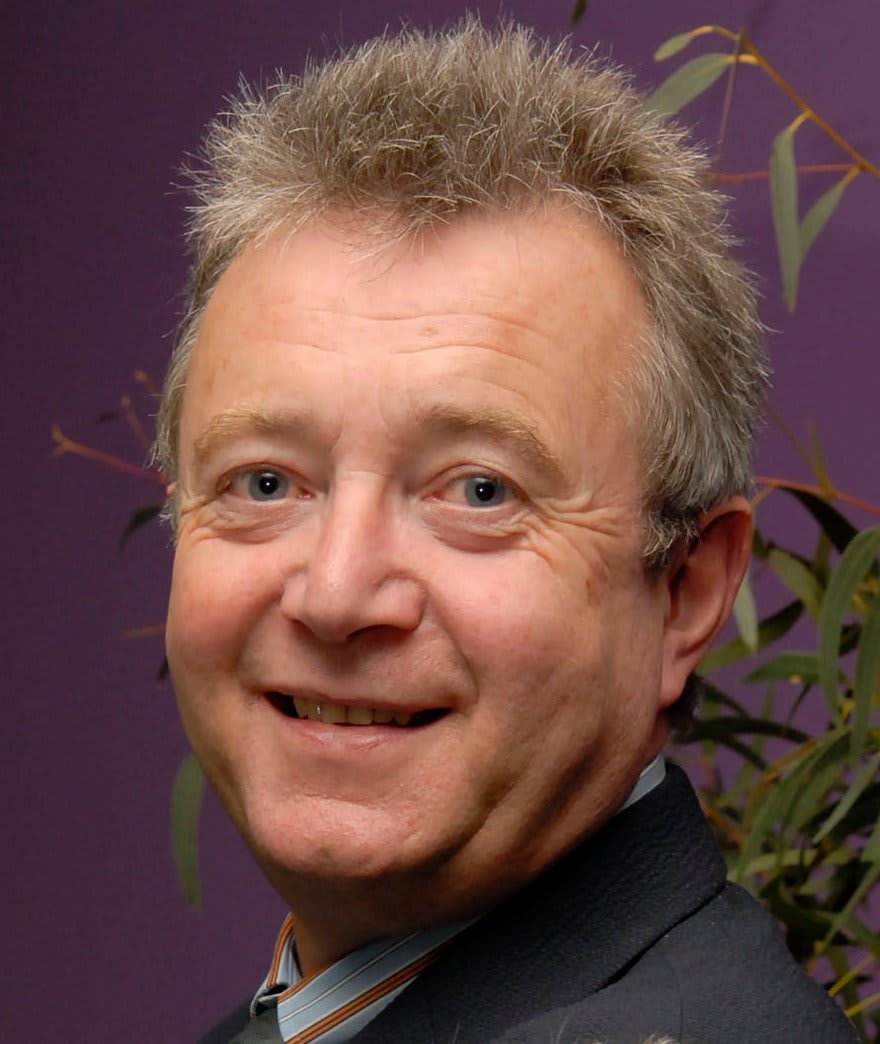
In addition, Richard Holmes, International Director of Meetings, received a special recognition award for his efforts in epilepsy. Holmes has been involved in epilepsy conference management for more than 40 years; he and his team manage the logistics of all ILAE-IBE congresses. Holmes also has served as IBE president and treasurer. He is a founding member and past president of the Associations Conference Forum, a group of 25 of the largest medical conferences in the world.
International Golden Light Awards
The Golden Light Awards were presented to young people affected by epilepsy, recognizing their contributions to their communities. Awardees: Sofia Betanzo (Chile), Elizabeth Dueweke (USA), Emma Lovise Larsen (Norway), Nina Mago (Uganda), Rebecca McGhee (Scotland), Scarlett Paige (Australia), Amirsoheyl Pirayeshfar (Iran), Mohammad Agus Rohmatulloh (Indonesia).
Ambassador for Epilepsy Awards
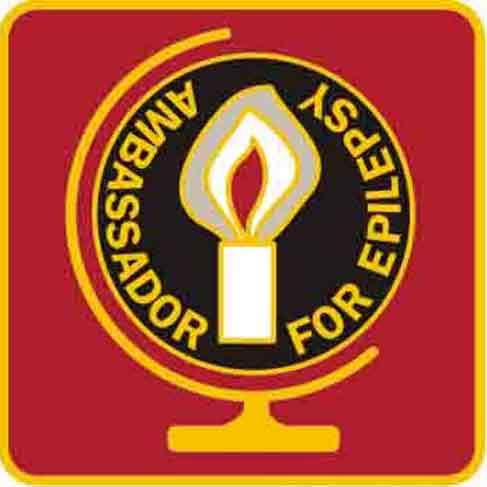
Twelve Ambassador for Epilepsy Awards recognized outstanding contributions to activities advancing the cause of epilepsy. Winners: Amza Ali (Jamaica), Sandor Beniczky (Denmark), Carol Camfield (Canada), Peter Camfield (Canada), John Dunne (Australia), Sheryl Haut (USA), Matthias Koepp (UK), Marco Medina (Honduras), Janet Mifsud (Malta), Osman Miyanji (Kenya), Tatsuya Tanaka (Japan), Sanjeev Thomas (India).
Other awards
Latinoamerica presente en las premiaciones del 33avo Congreso International de Epilepsia
Michael Prize: Presented biennially, this award acknowledges the best contributions to scientific and clinical research that promote further development in epileptology. The award is given by the Michael Foundation (Stiftung Michael), a private foundation established in Germany in 1963 to support research on the individual and social impacts of epilepsy.
- Prize winners: Stephanie Baulac (France), Birgit Frauscher (Canada)
Harinarayan Young Neuroscientist Award: This award is designed to encourage and reward basic science investigators under the age of 35 who are committed to epilepsy research. The award is supported by a donation from the Harinarayan family, and candidates are selected by the ILAE Neurobiology Commission.
- Prize winners: Sarah Buck, (UK), Gautham Bhargava (India)
Epilepsia prizes are awarded to the first authors of original research published in Epilepsia that has made the most significant contribution to knowledge and understanding in epilepsy. Publication window spans the previous calendar year (1 Jan to 31 Dec 2018).
- Clinical Science Prize: Suejen Perani (Germany), for Thalamic volume reduction in drug-naïve patients with new-onset genetic generalized epilepsy
- Basic Science Prize: Nicholas Couturier (USA) for Corpus callosum low-frequency stimulation suppresses seizures in an acute rat model of focal cortical seizures
Epilepsia Open prizes are given to the two best original articles published in the journal during the previous calendar year.
- Clinical Science Prize: Sharon Chiang(USA), for Epilepsy as a dynamic disease: A Bayesian model for differentiating seizure risk from natural variability | Interview with Sharon Chiang
- Basic Science Prize: Jesus-Servando Medel-Matus (USA), for Facilitation of kindling epileptogenesis by chronic stress may be mediated by intestinal microbiome | Interview with Jesus Servando Medel Matus
The Epileptic Disorders prize is awarded to the first author of the article making the most significant contribution to the educational mission of the journal.
- Educational Prize: Guadalupe Fernandez Baca Vaca (USA), for Epileptic seizure semiology in different age groups
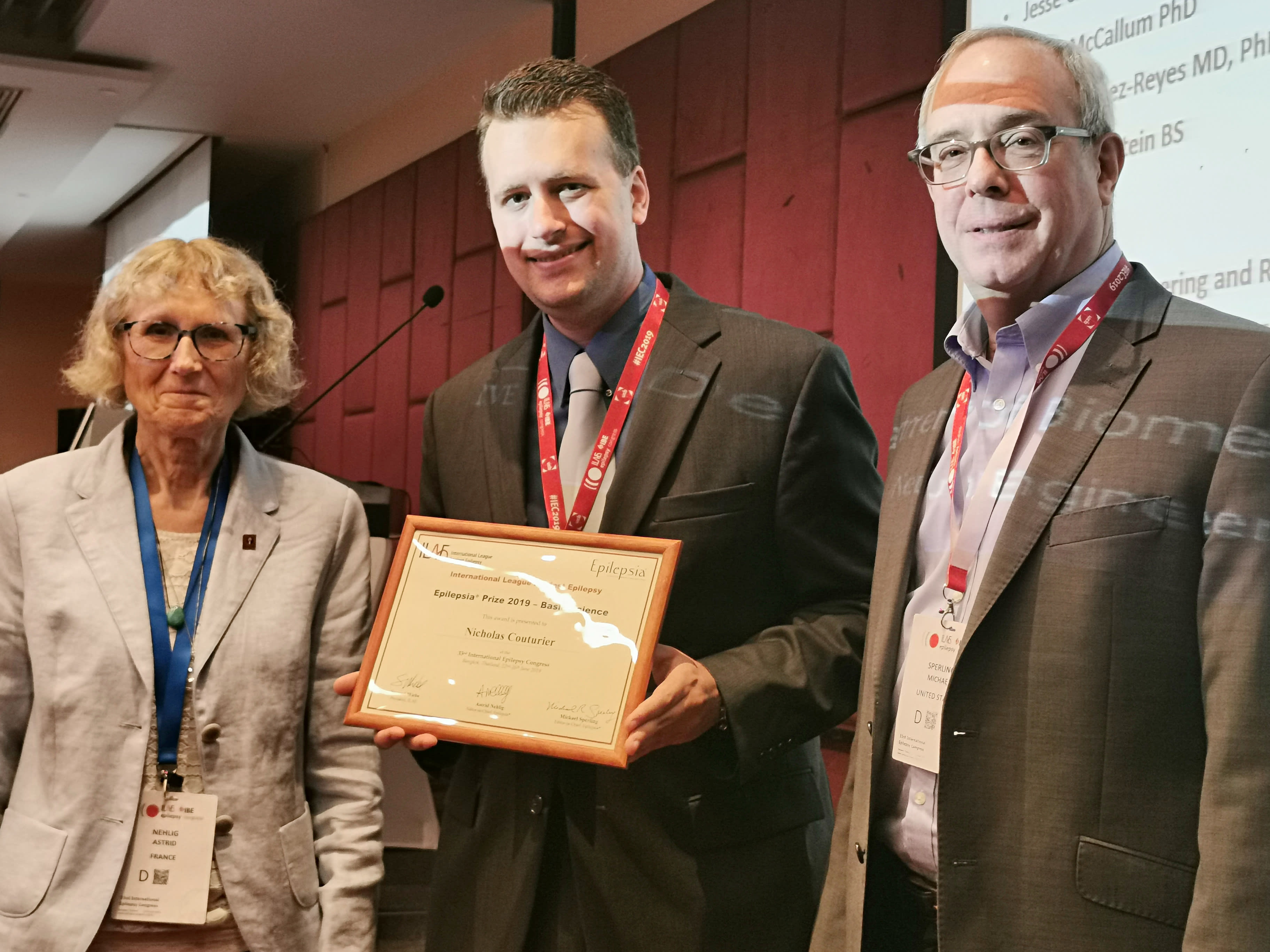
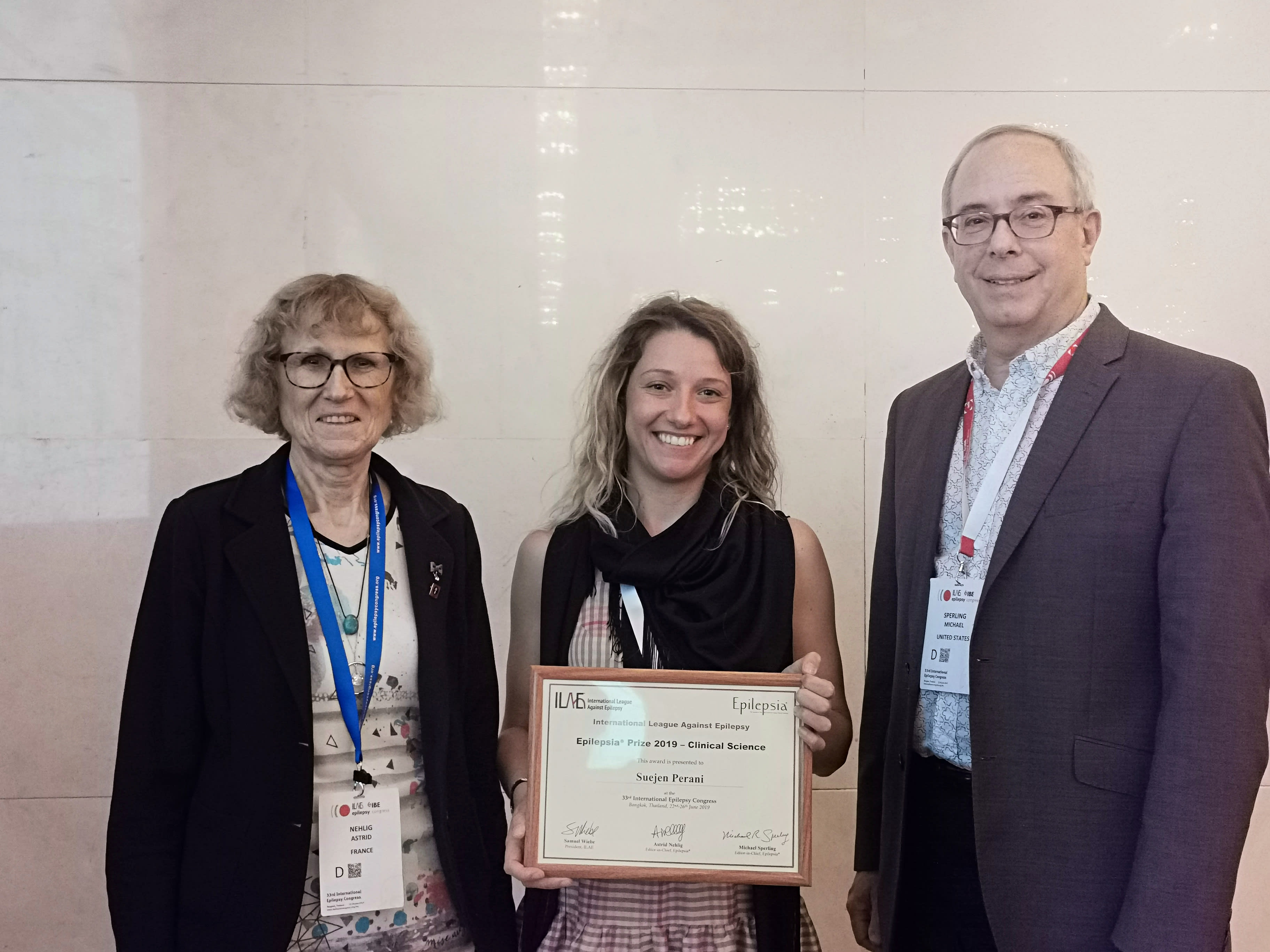
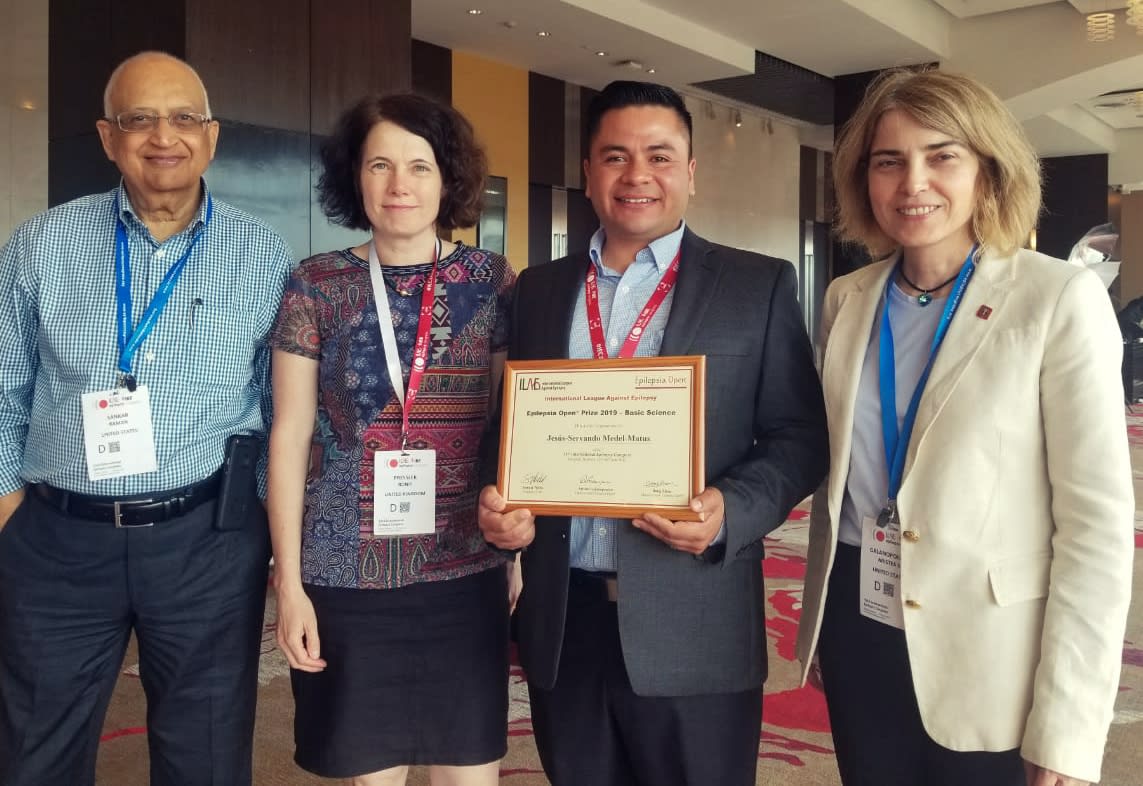
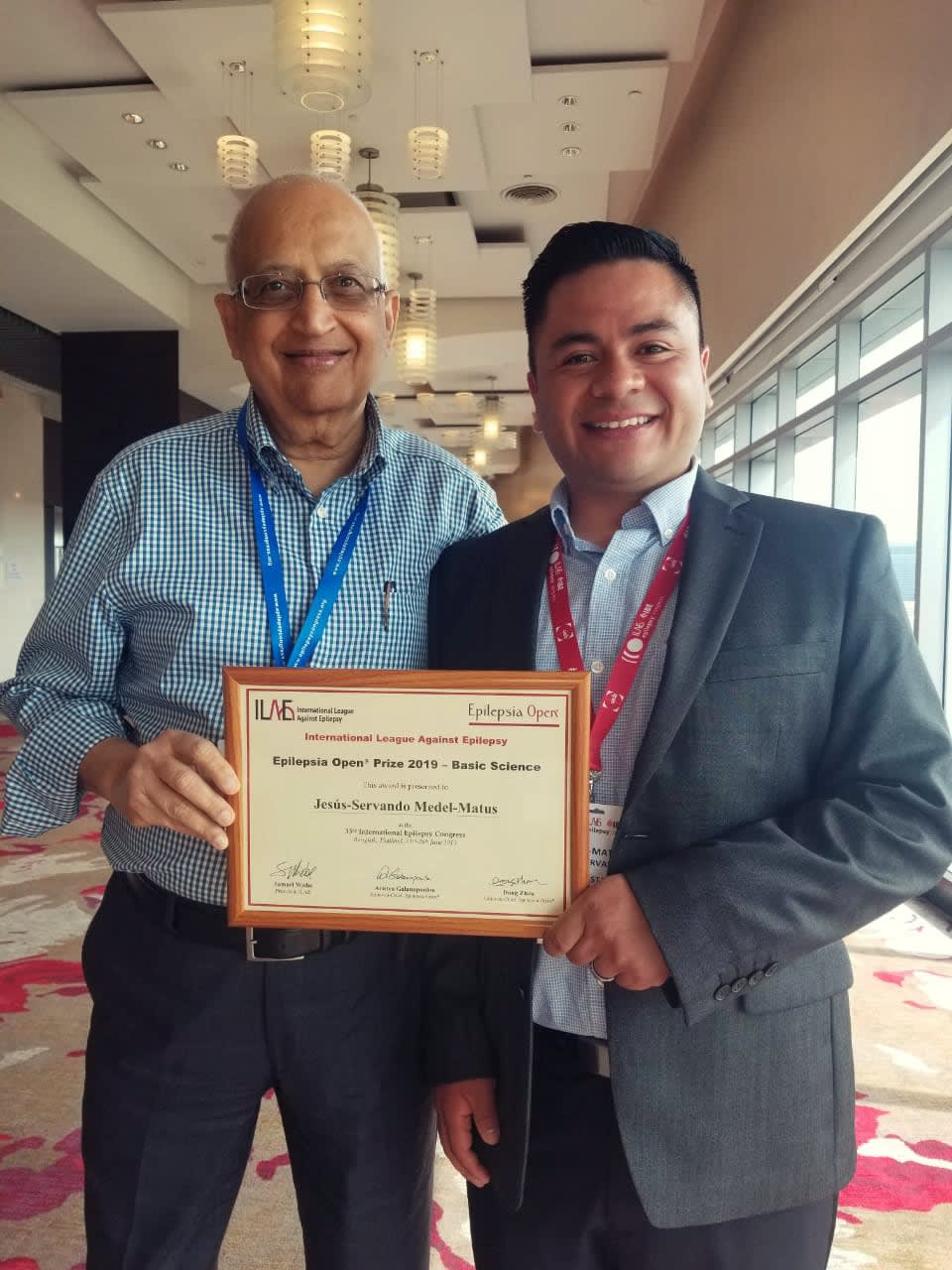
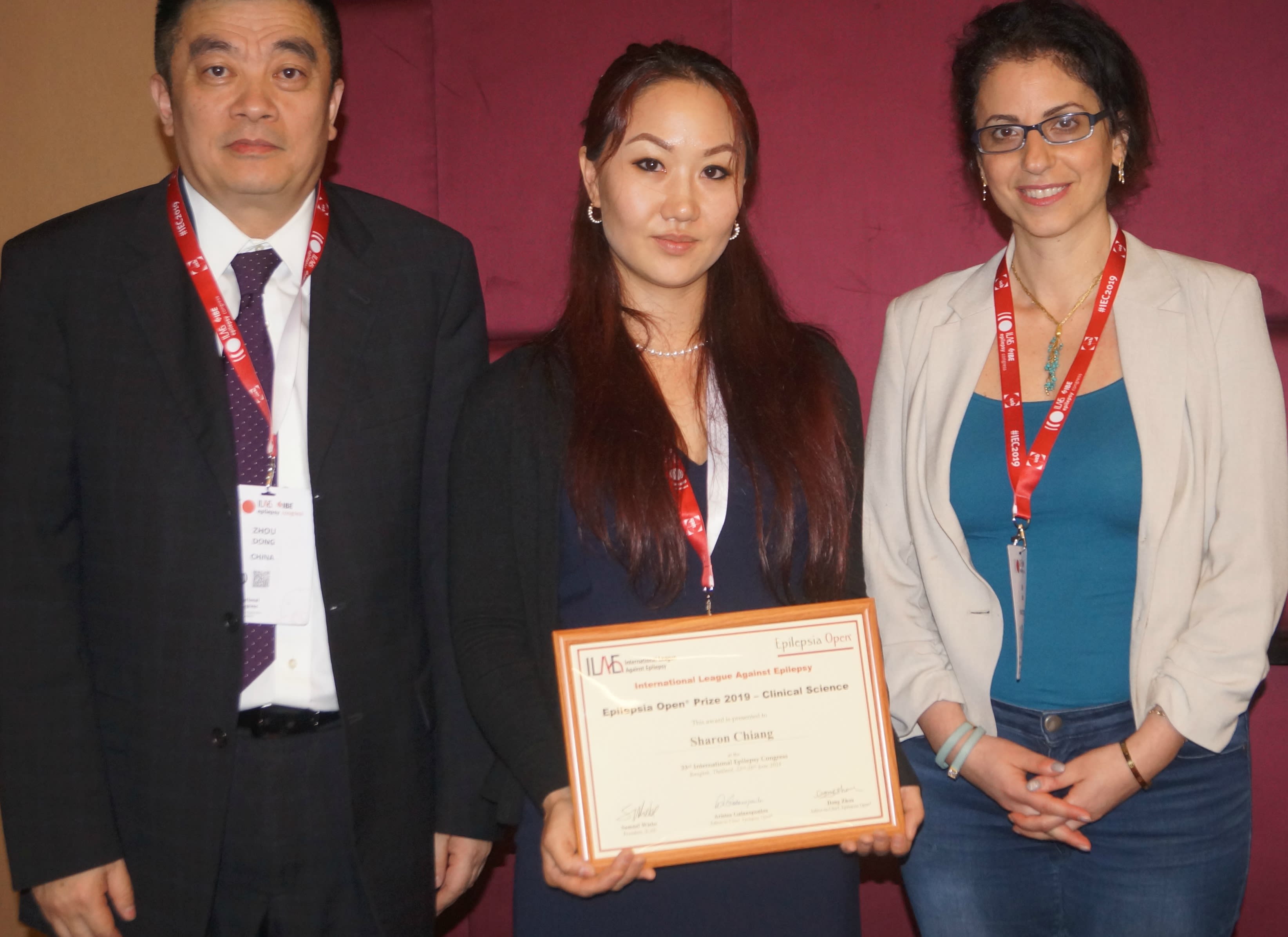
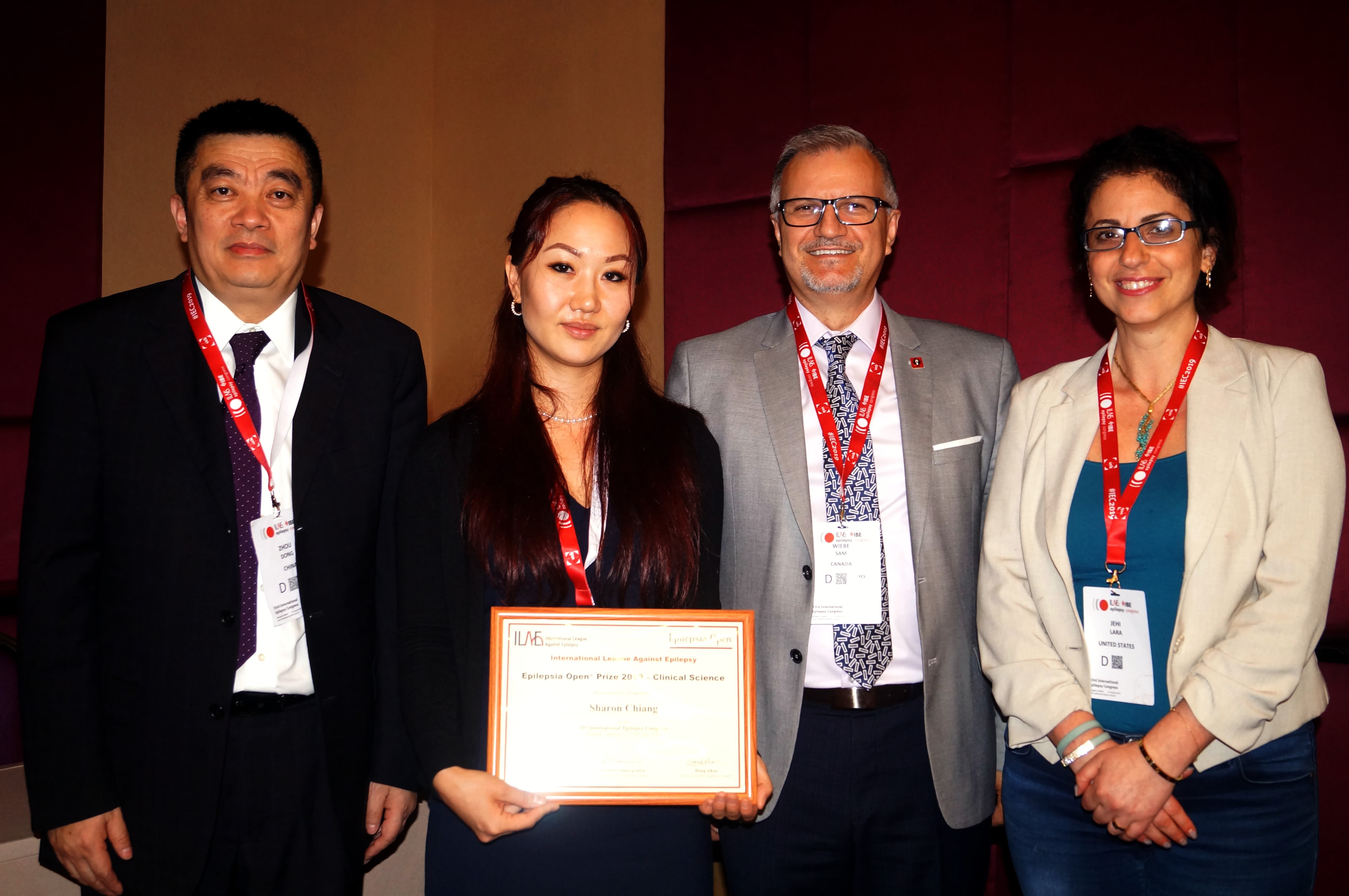
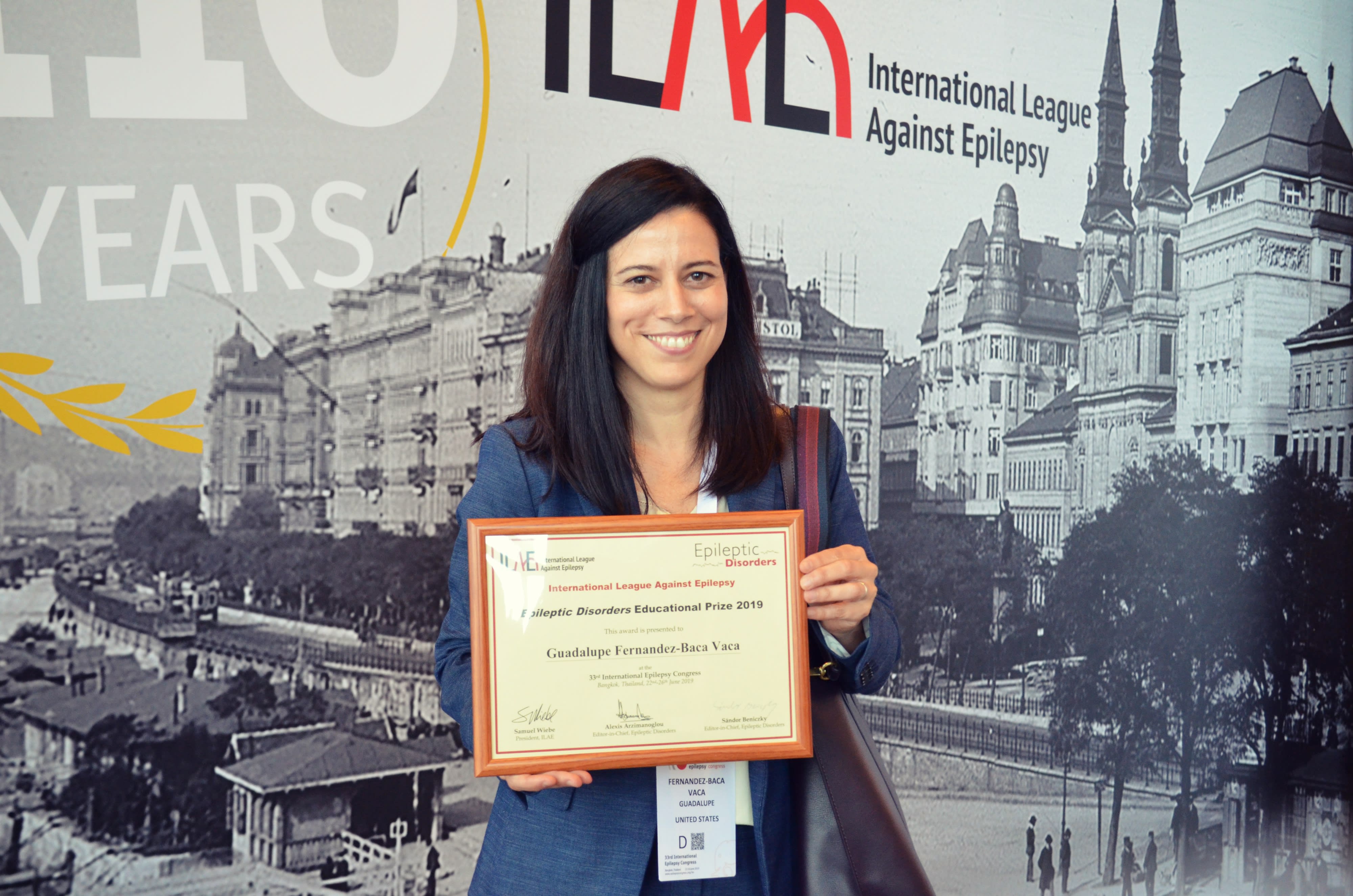
More Photo Galleries
Click on a photo to view at full size and to scroll through the gallery.
Welcome Ceremony, Awards and entertainment
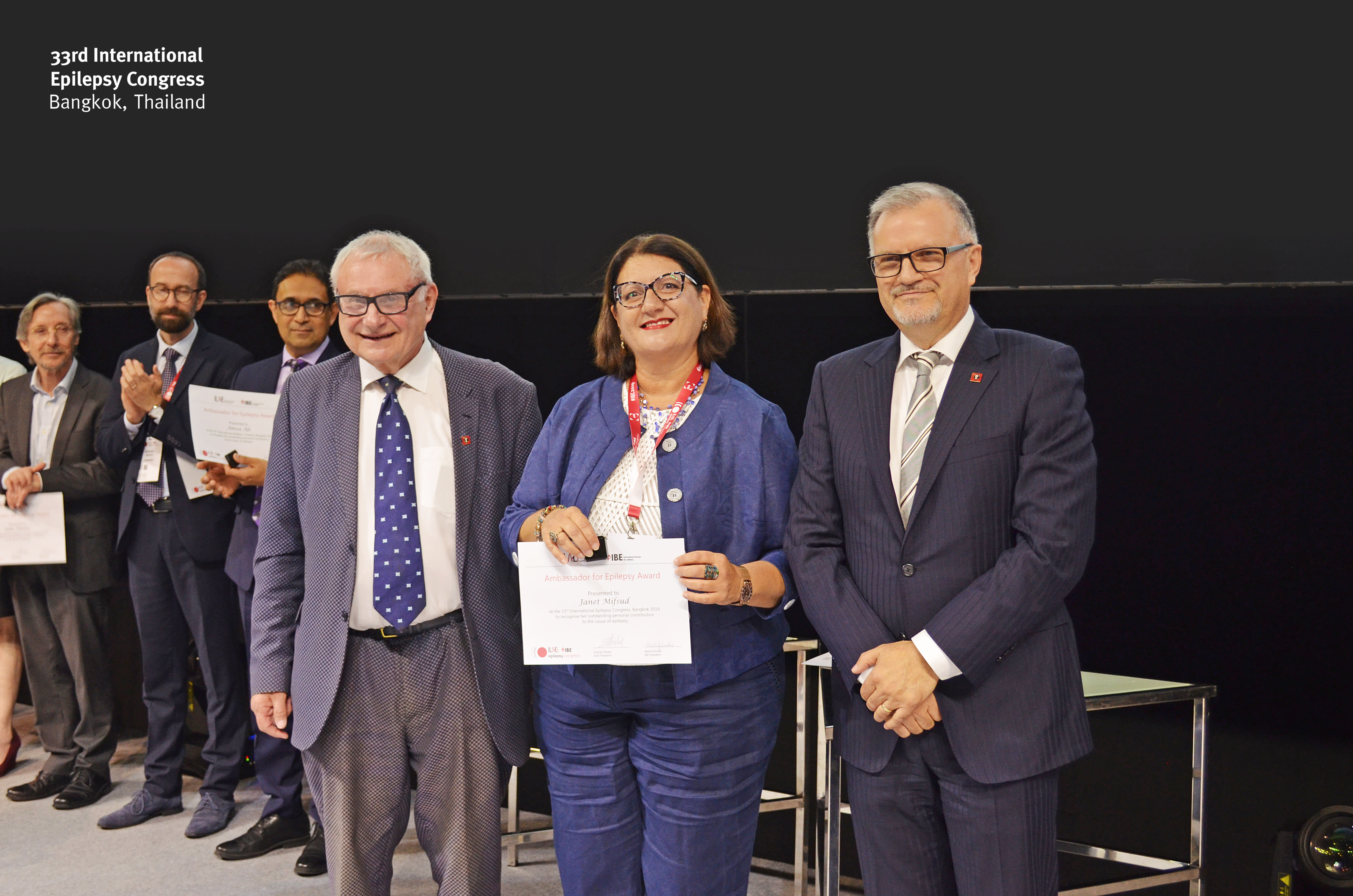
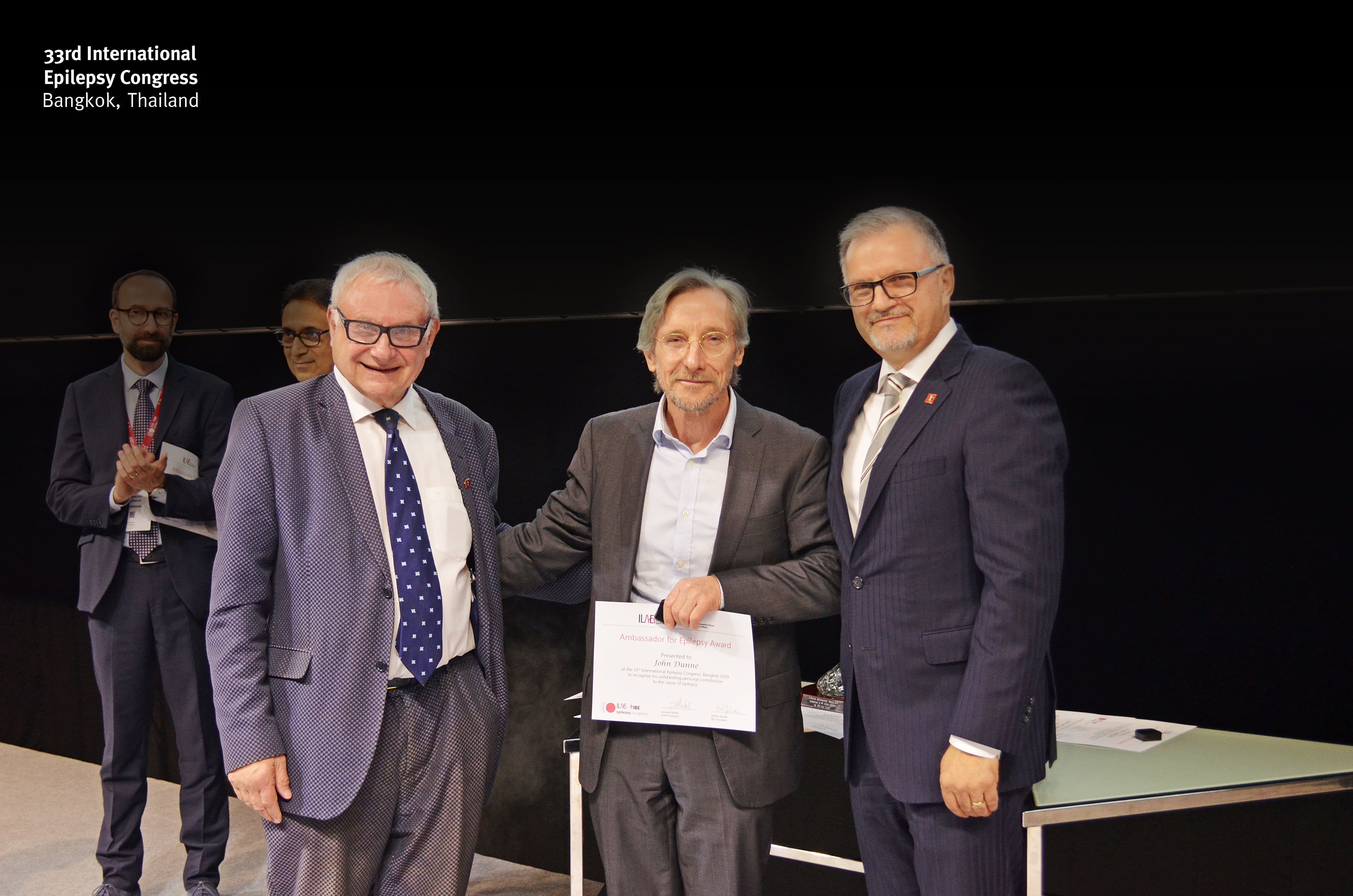
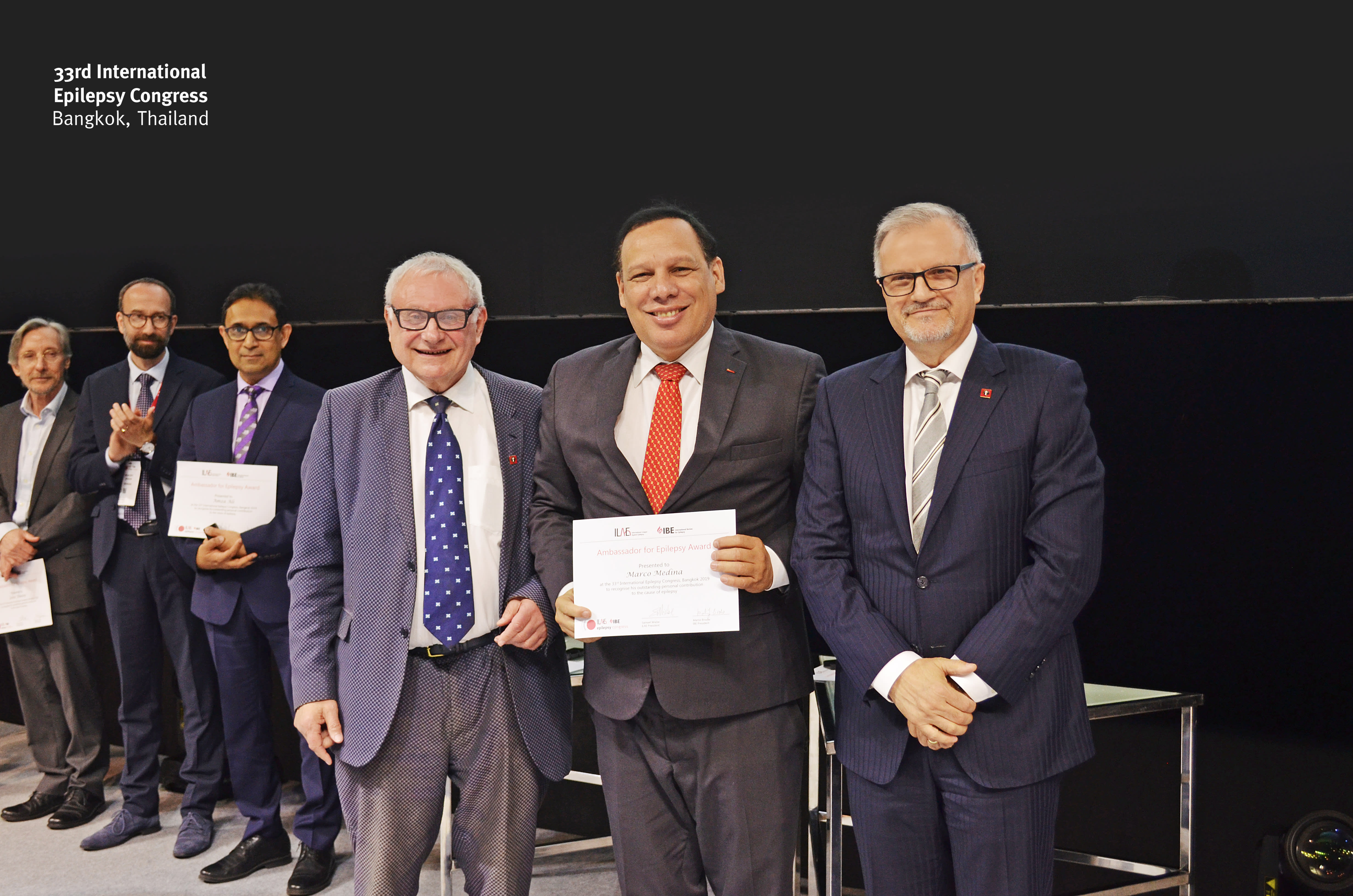
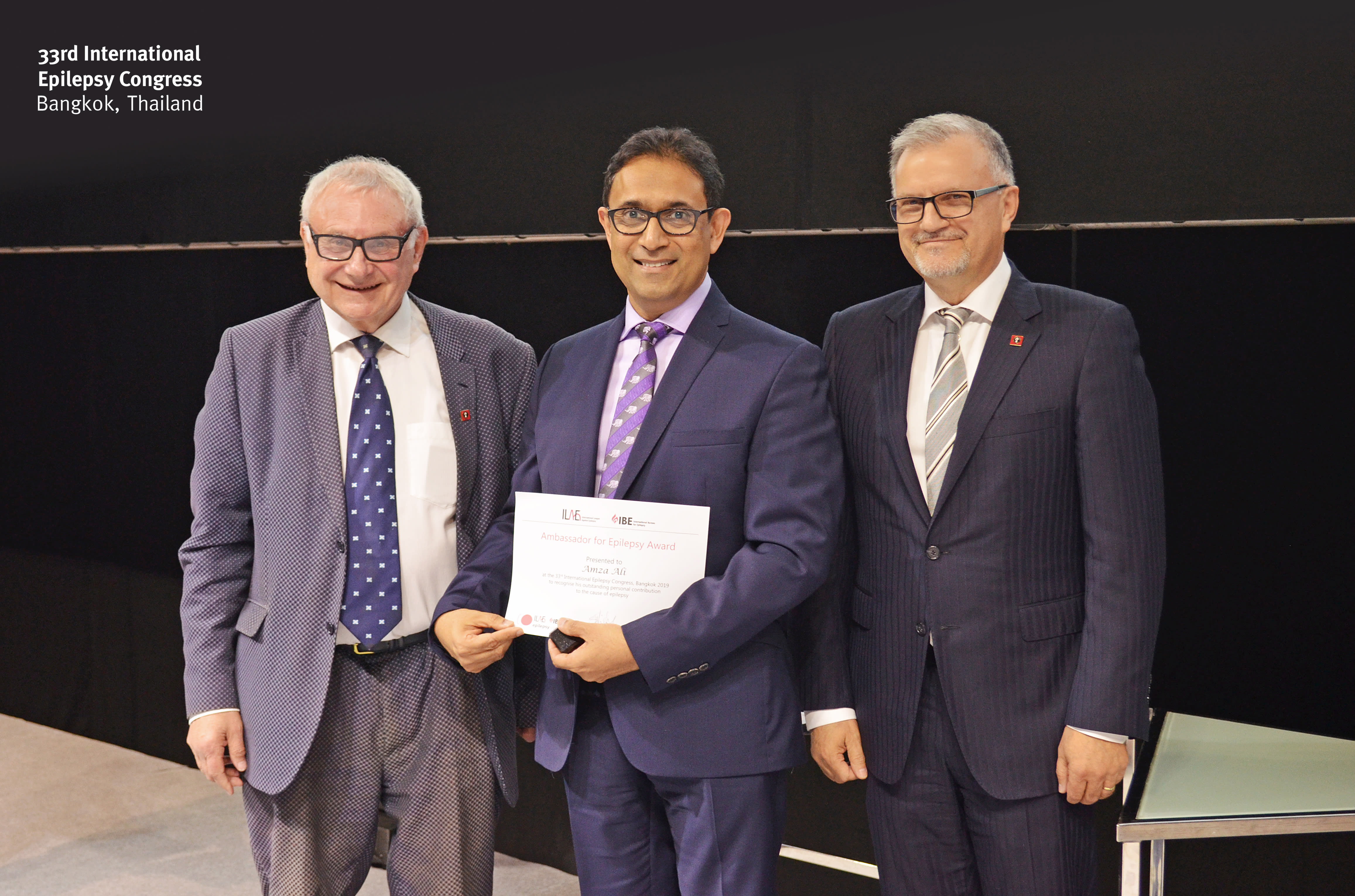
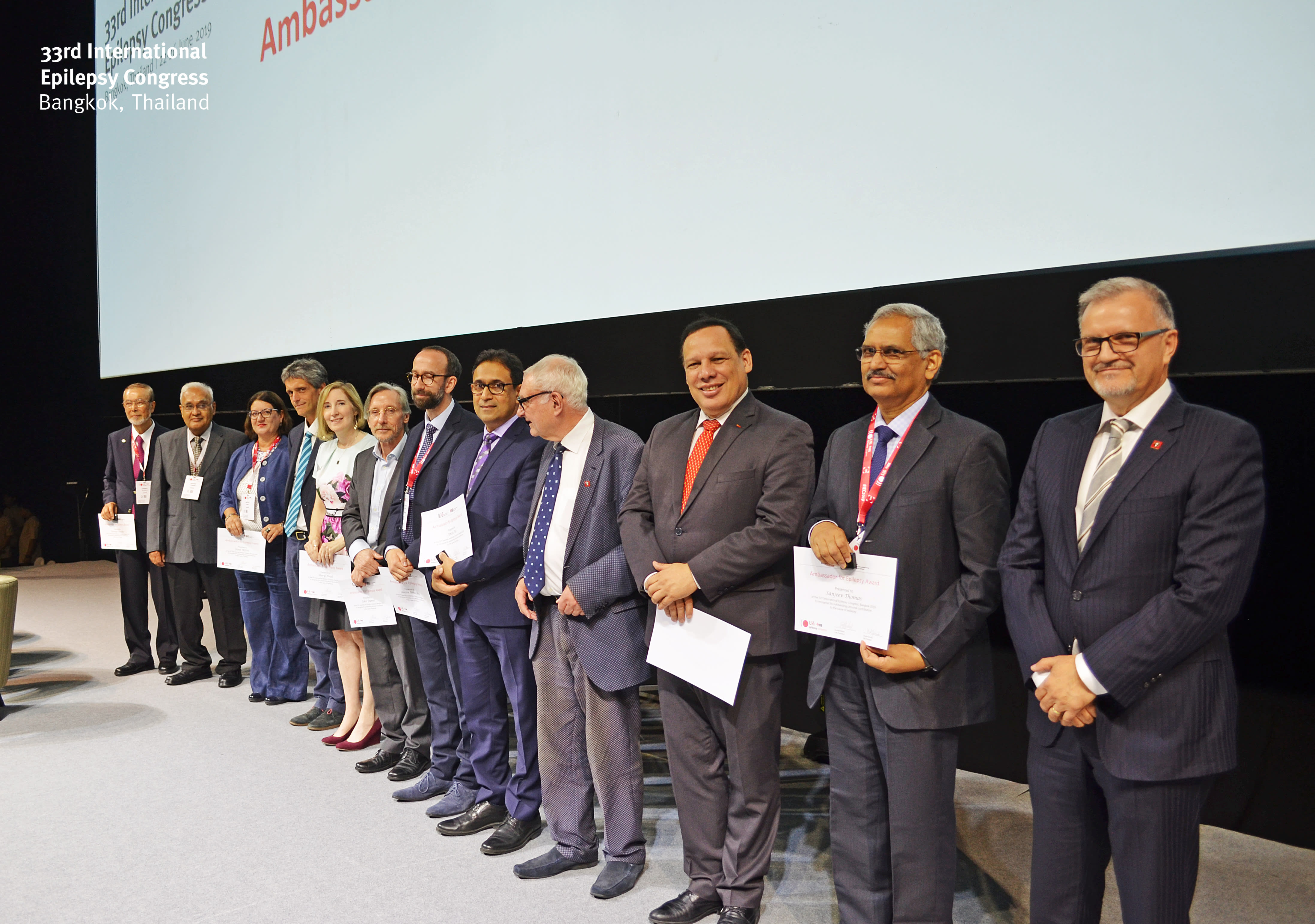
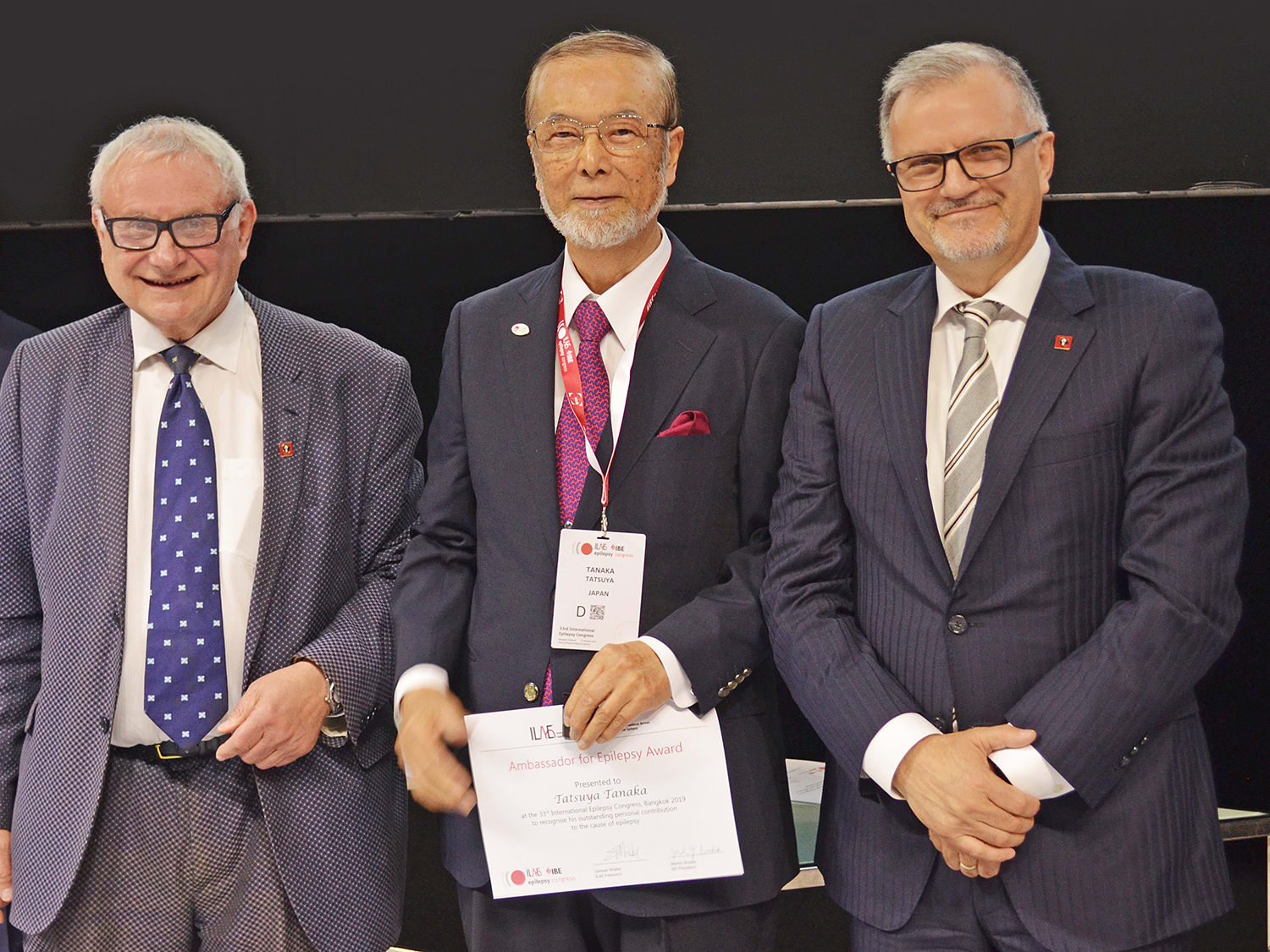
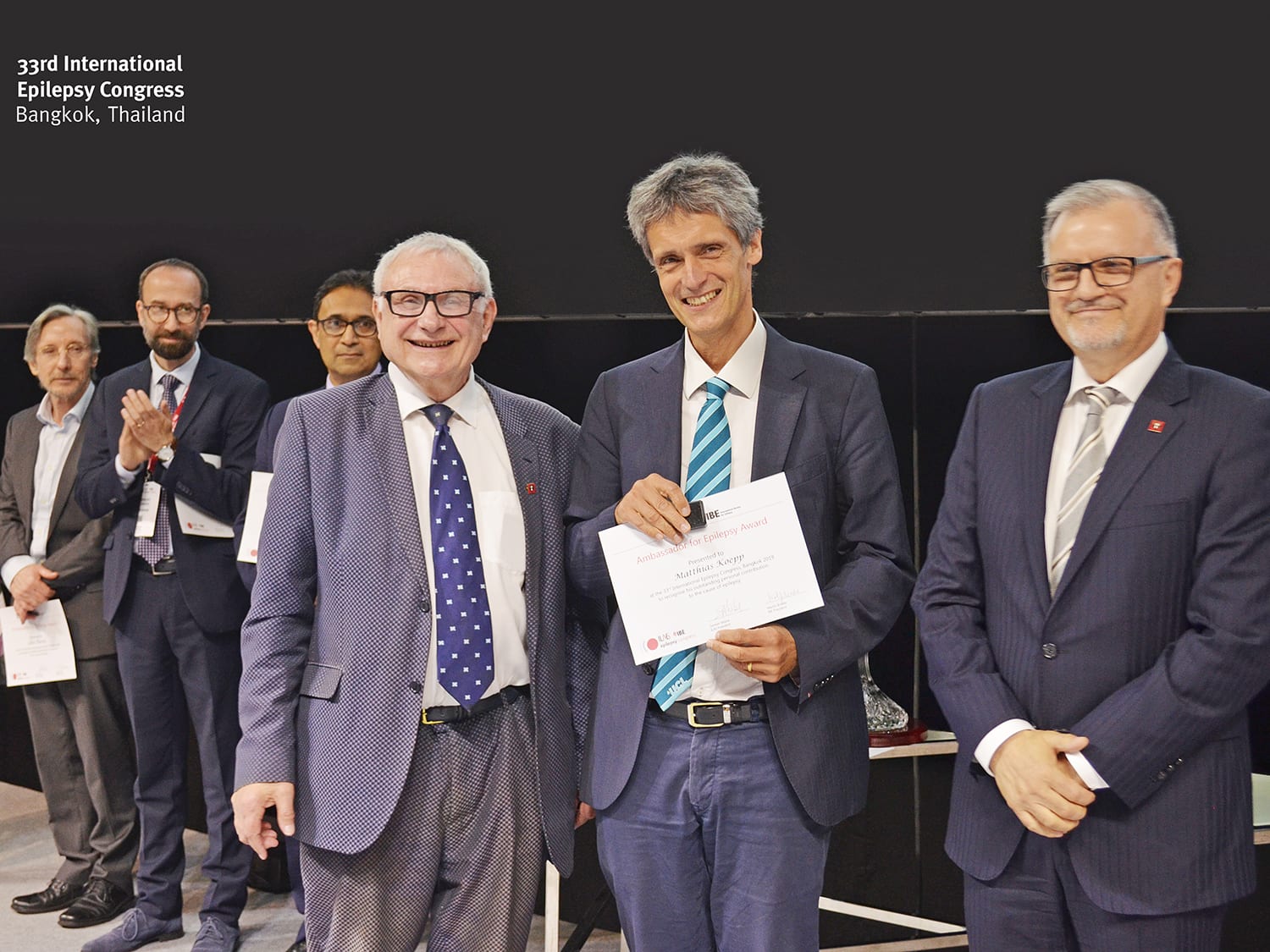

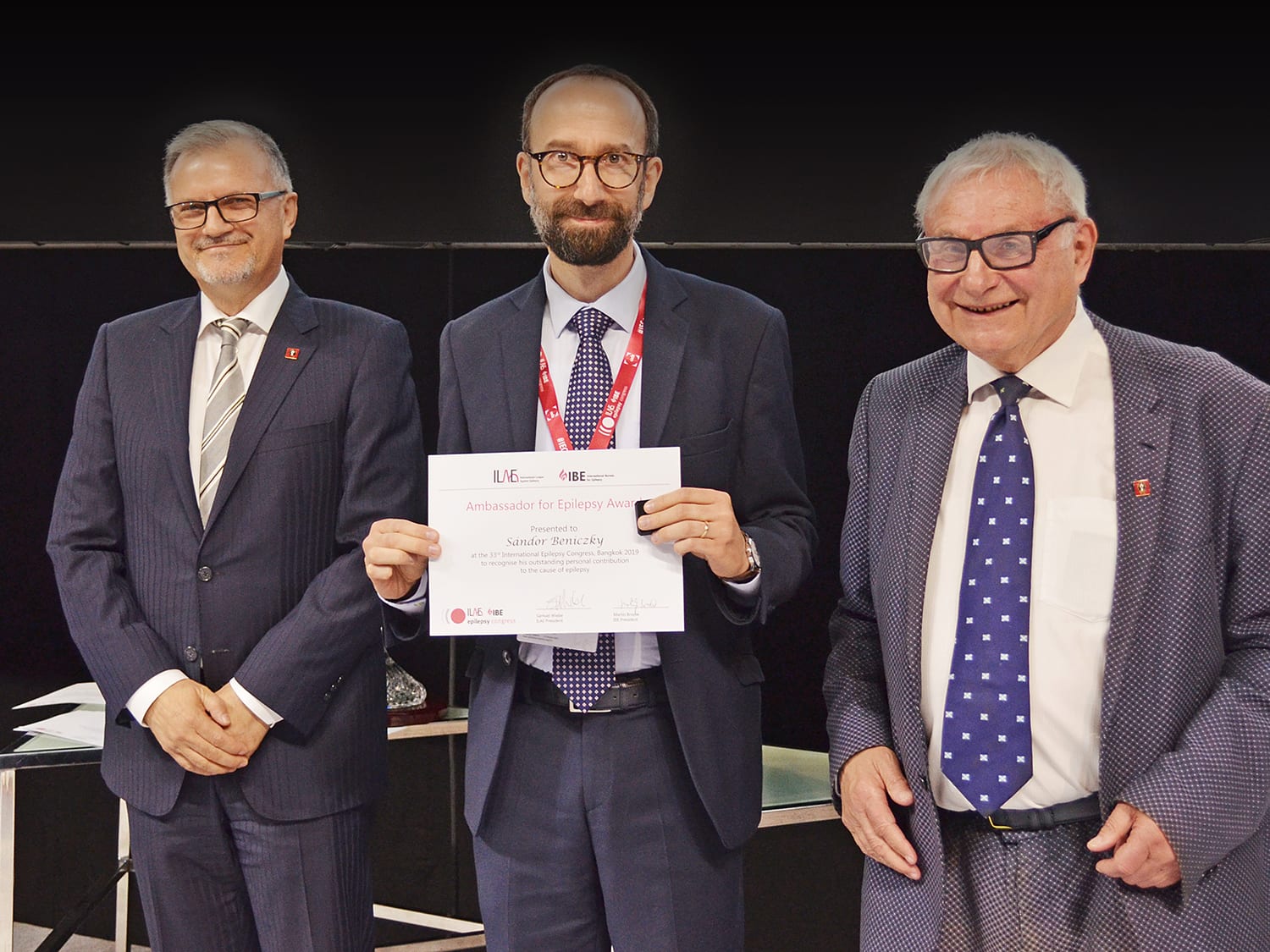

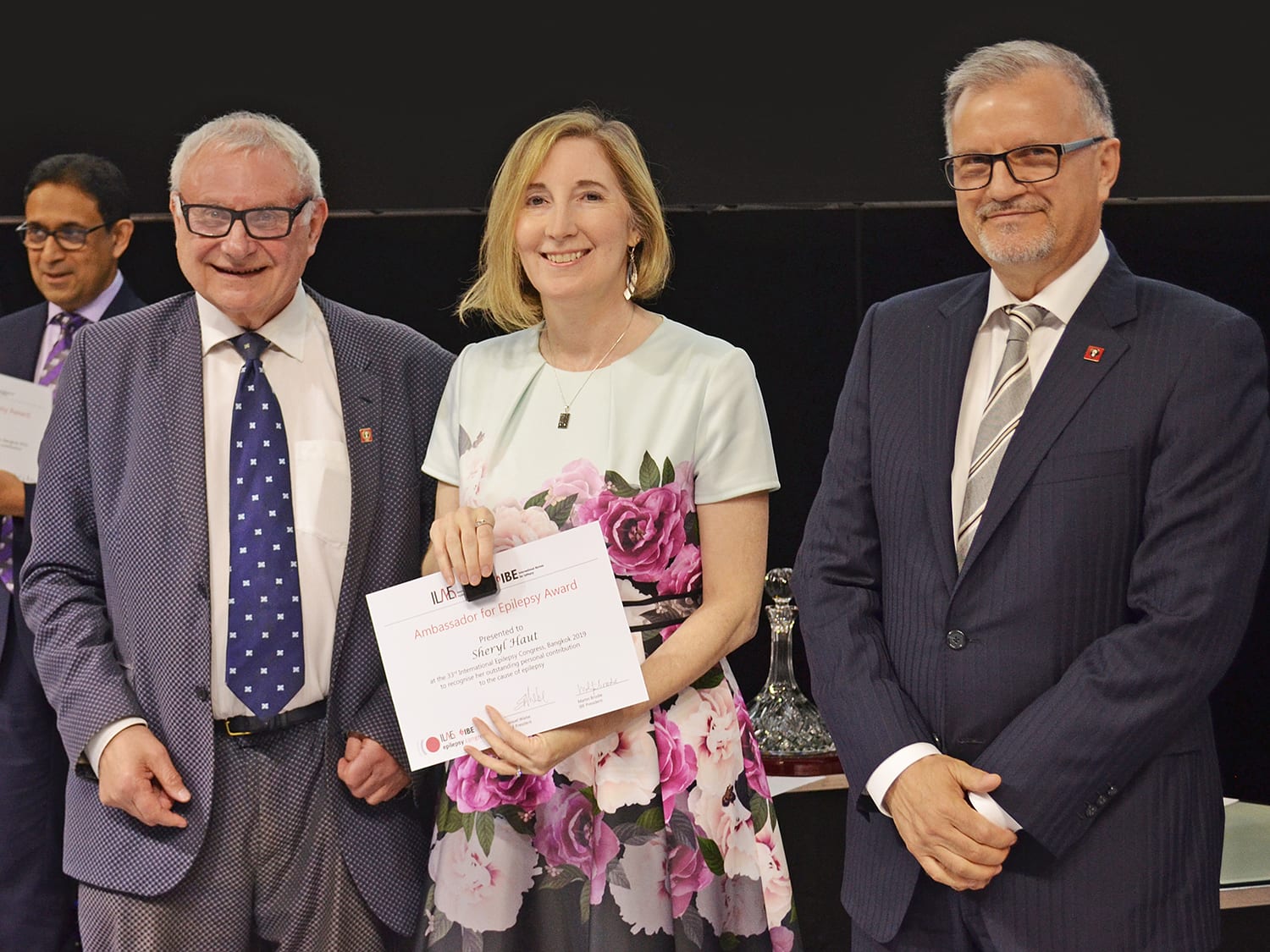

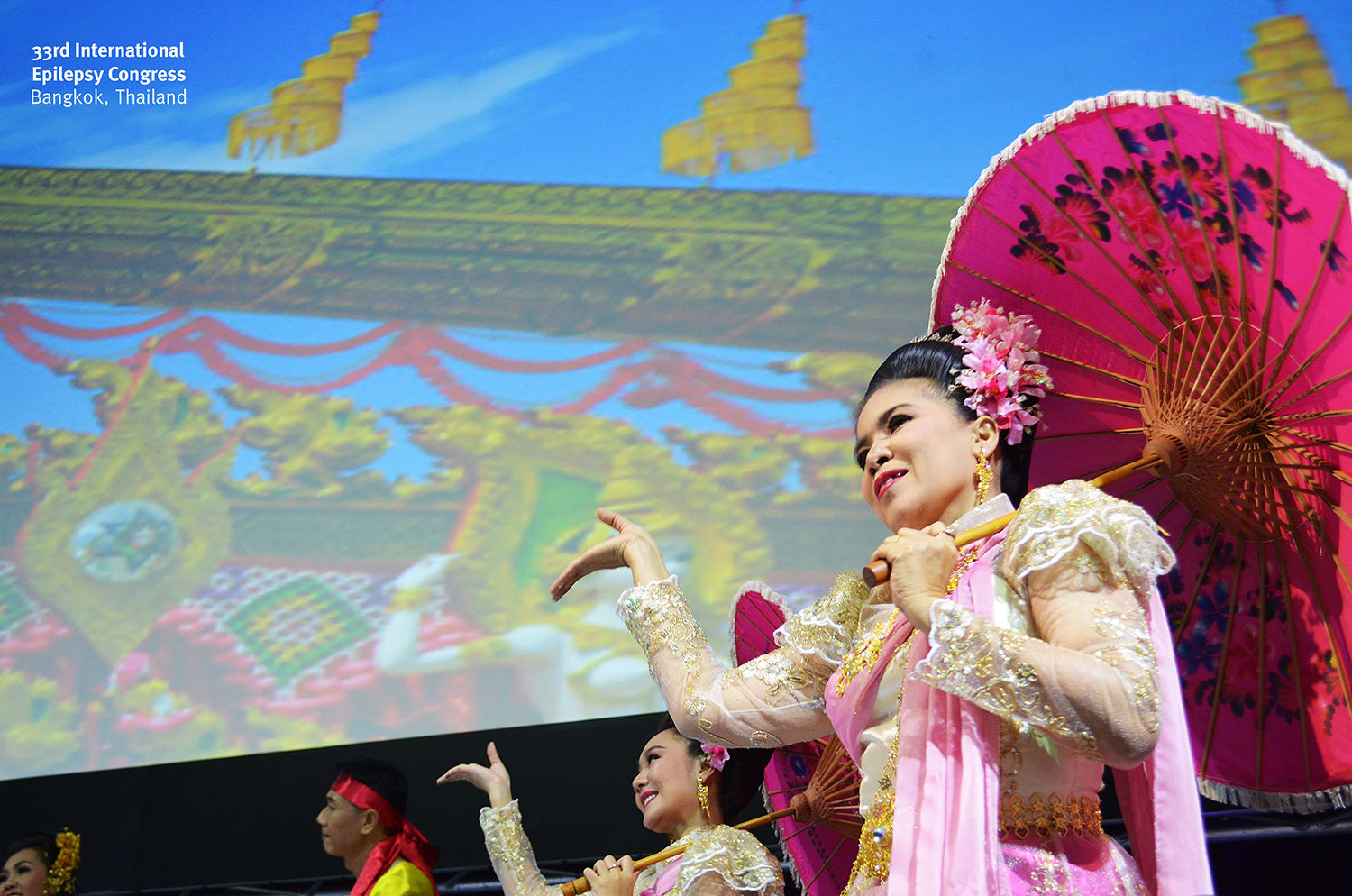
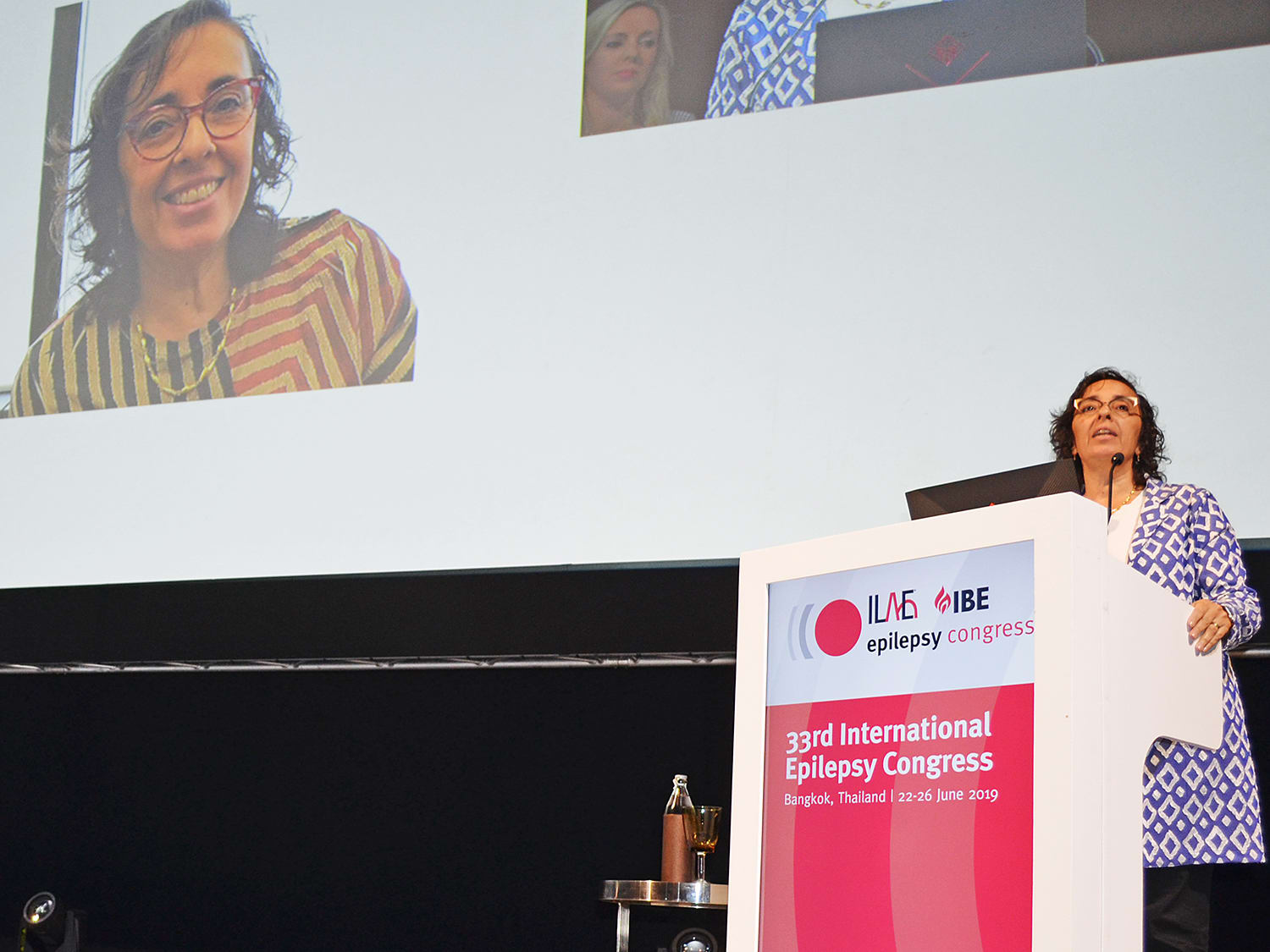
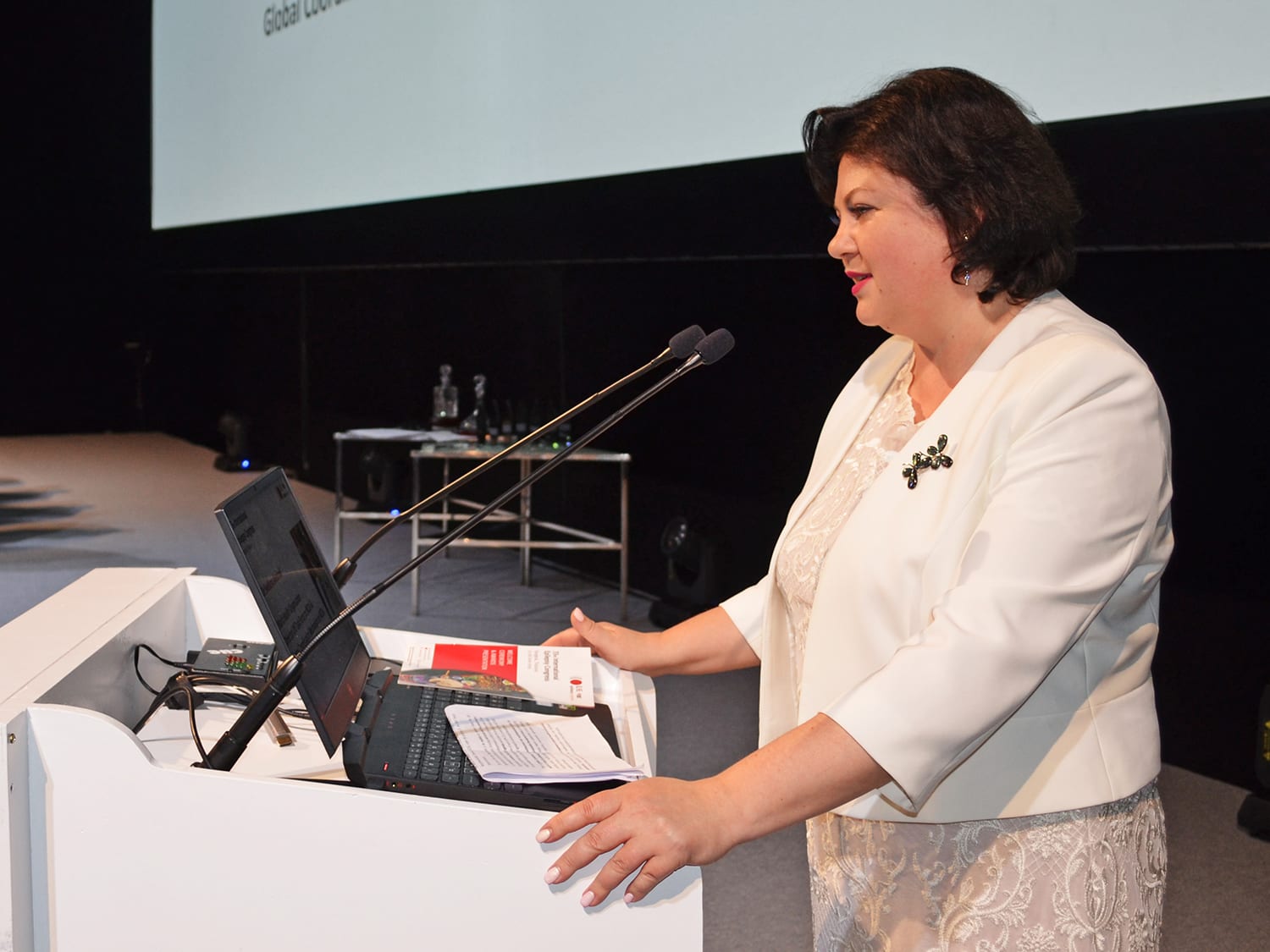
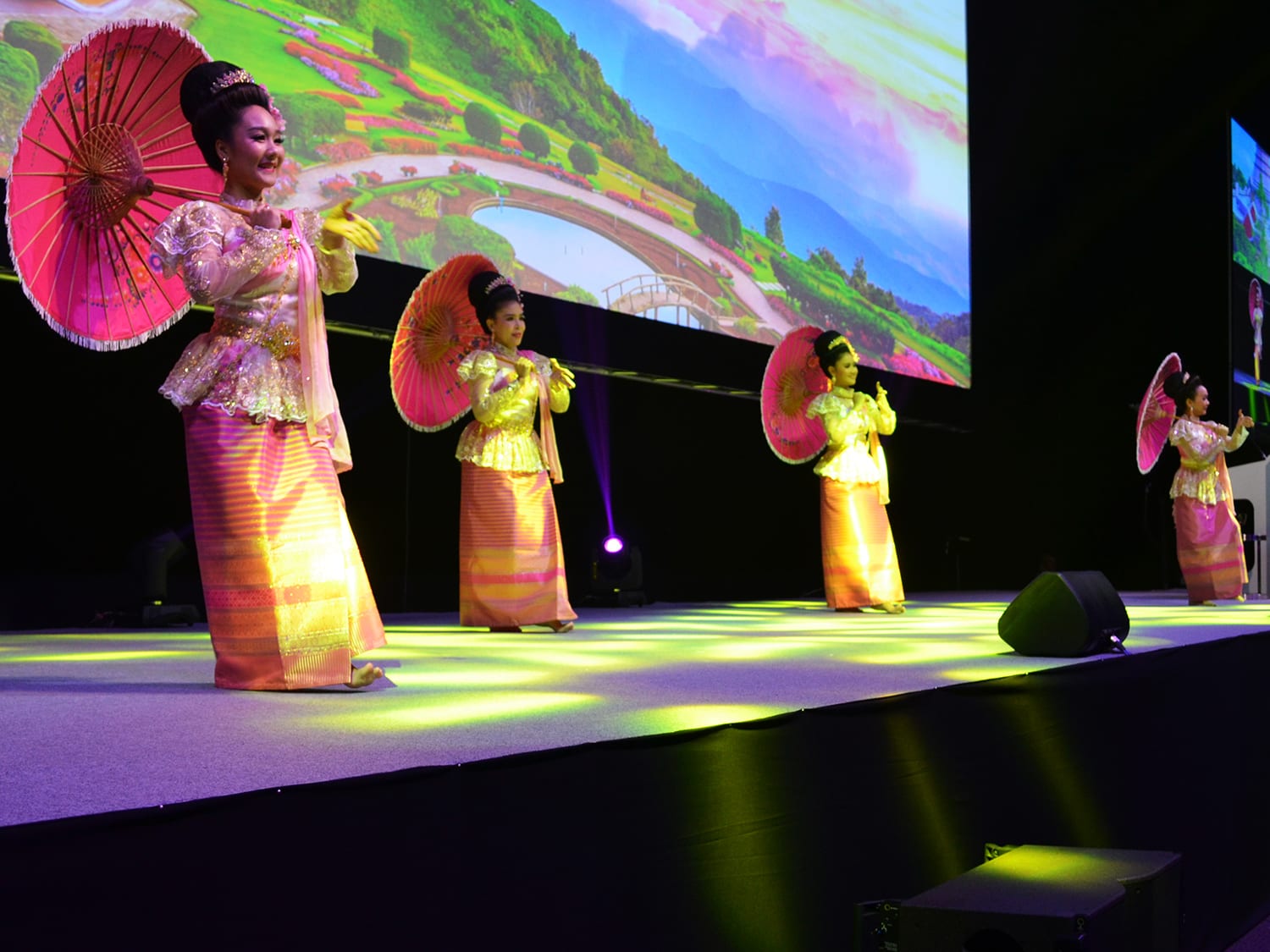
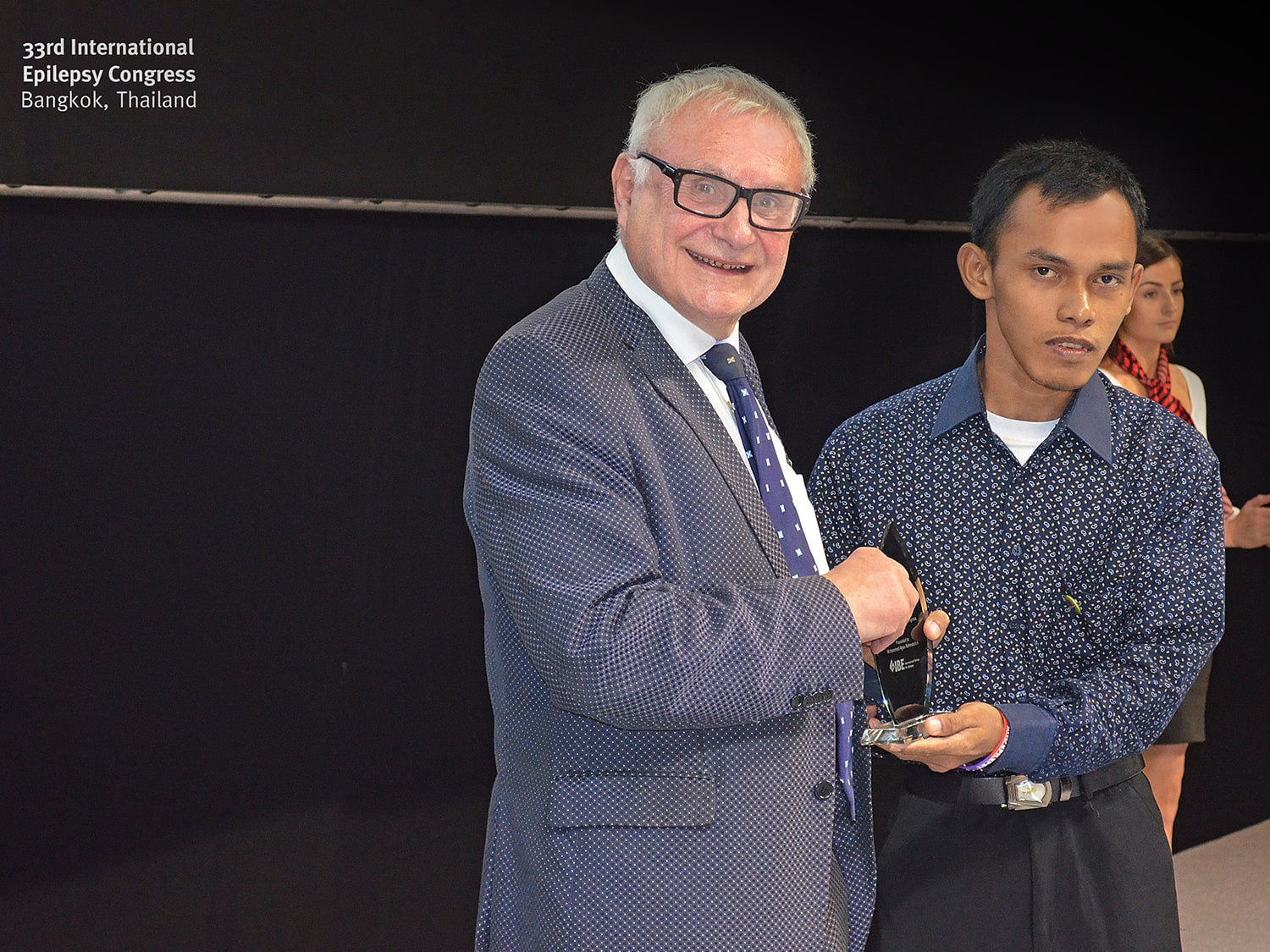
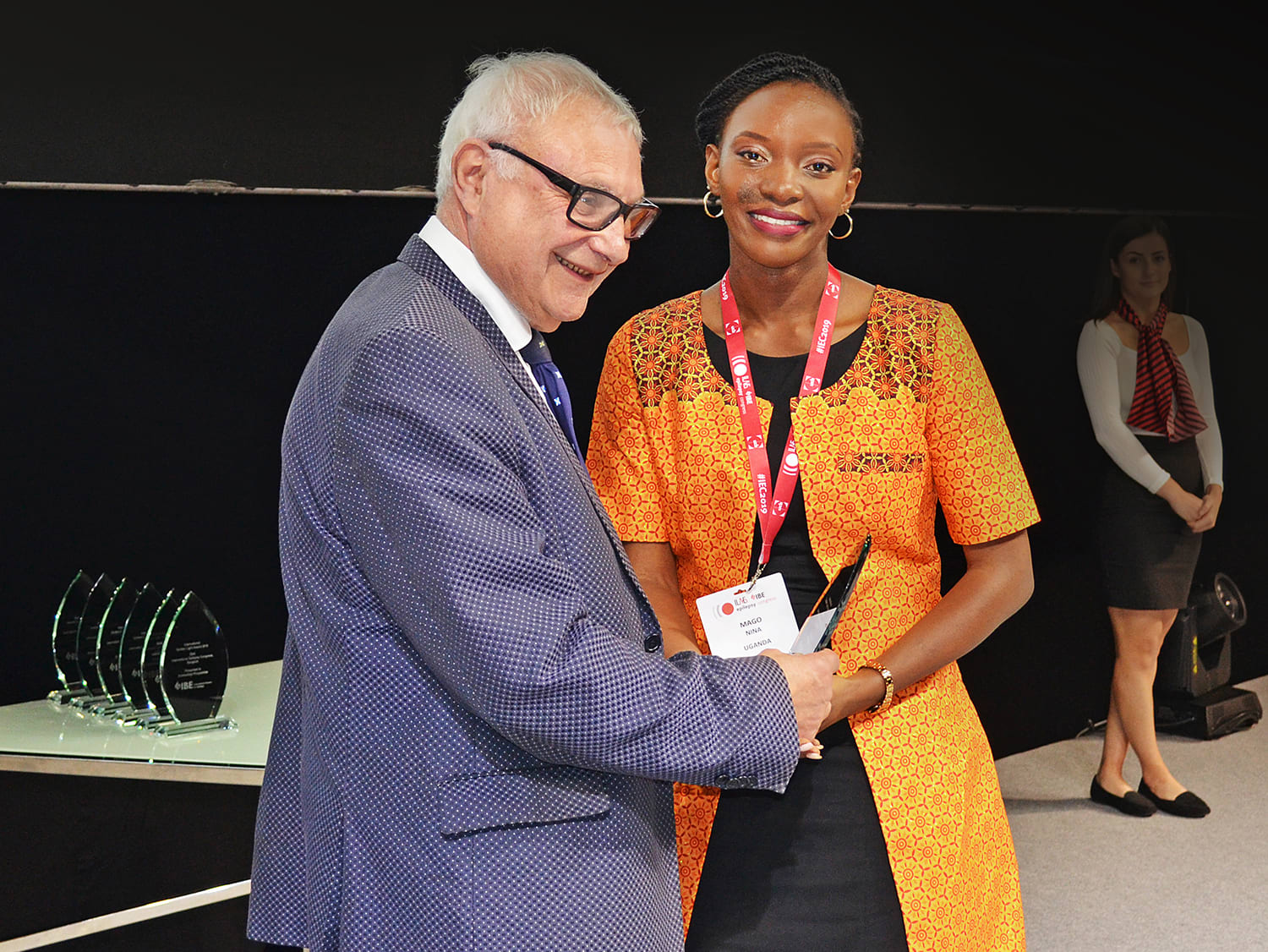
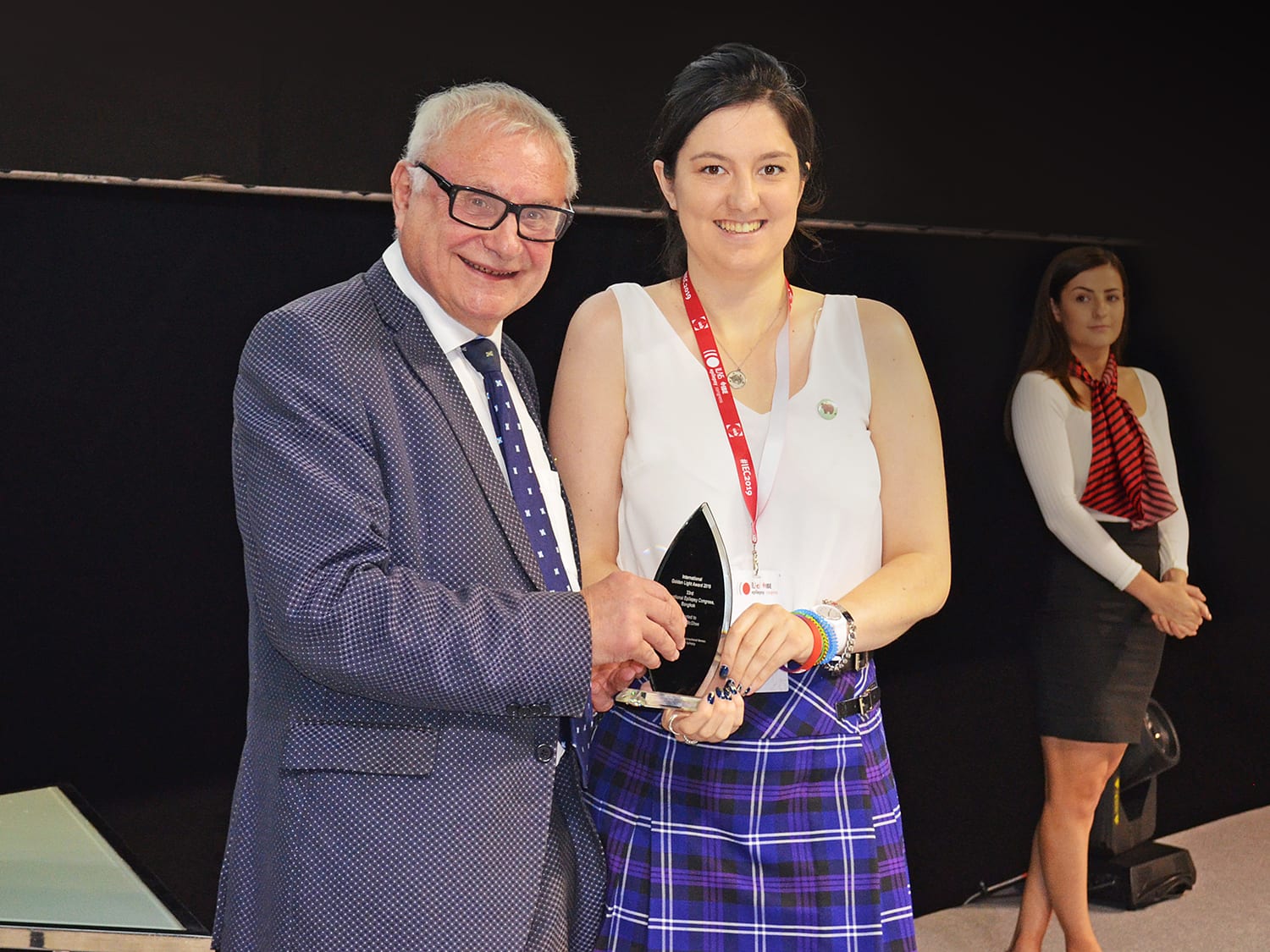
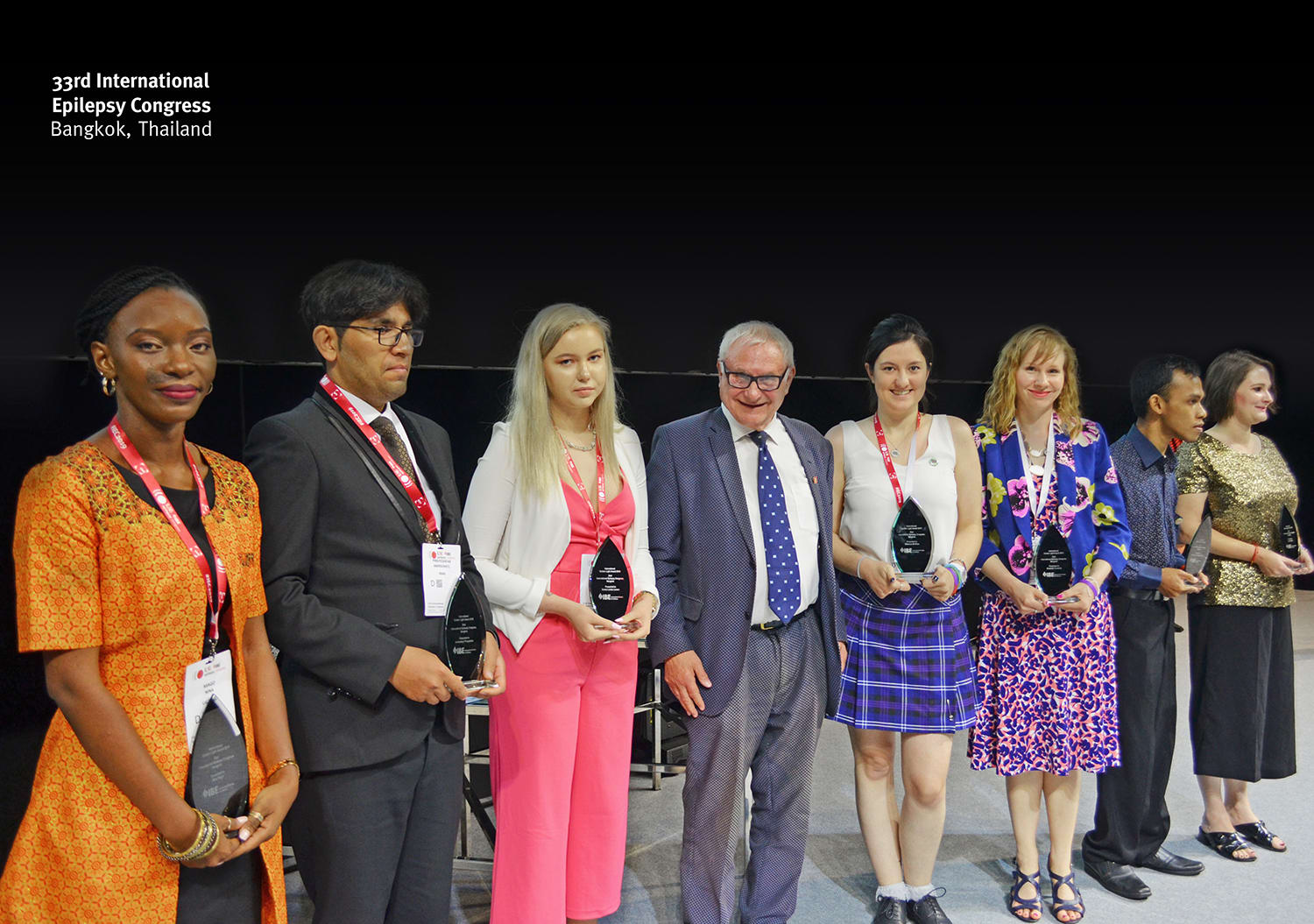
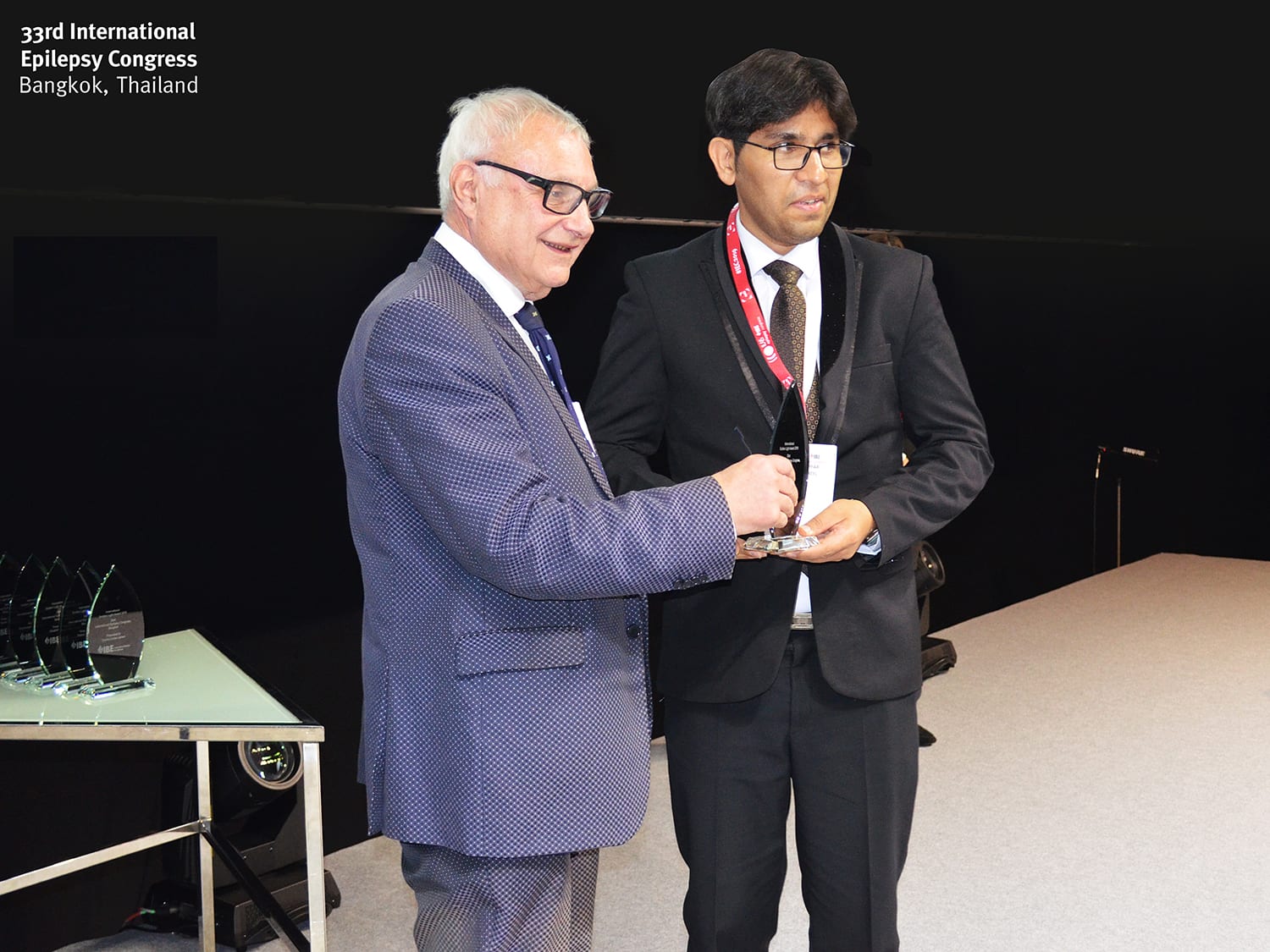
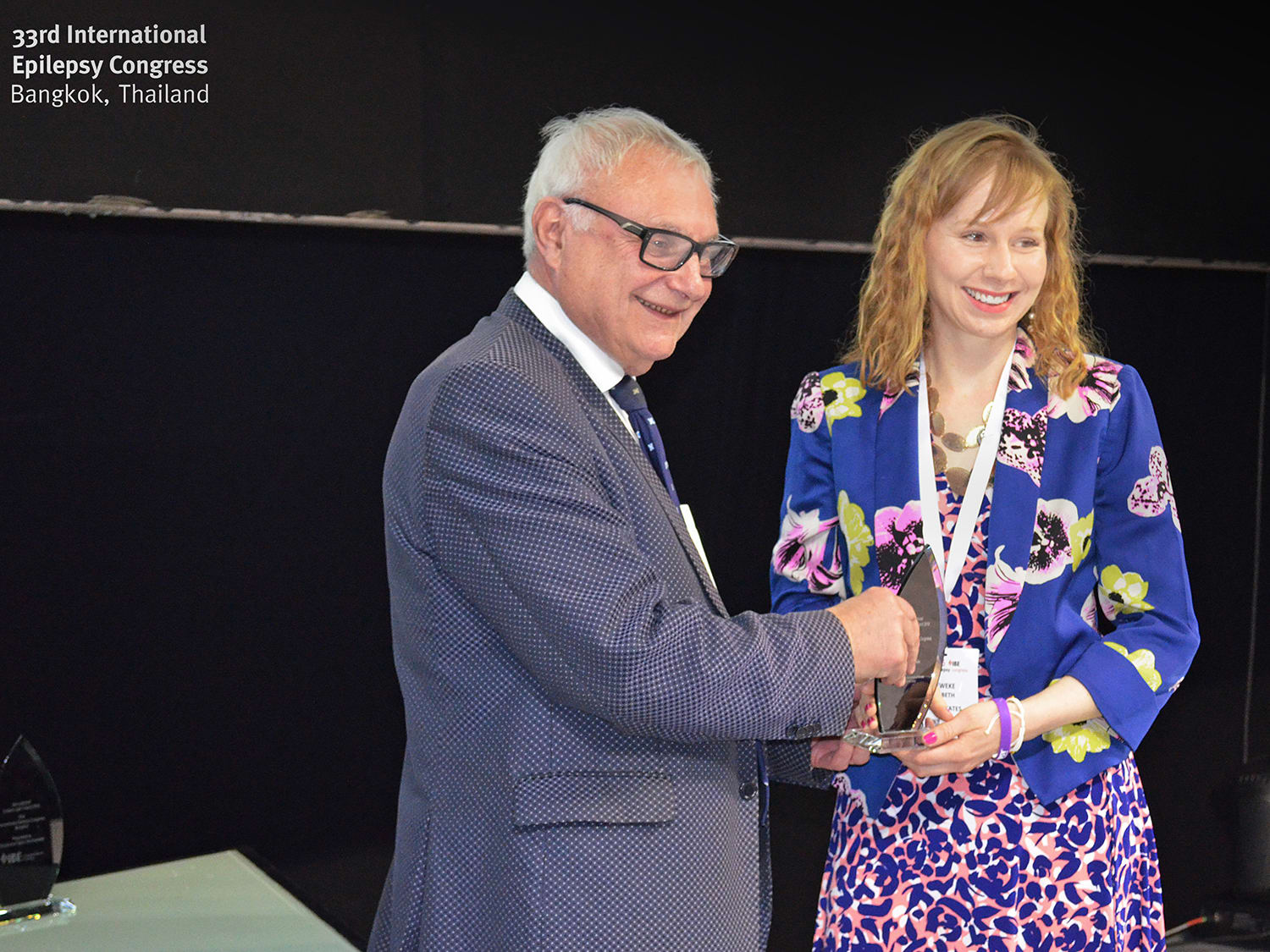
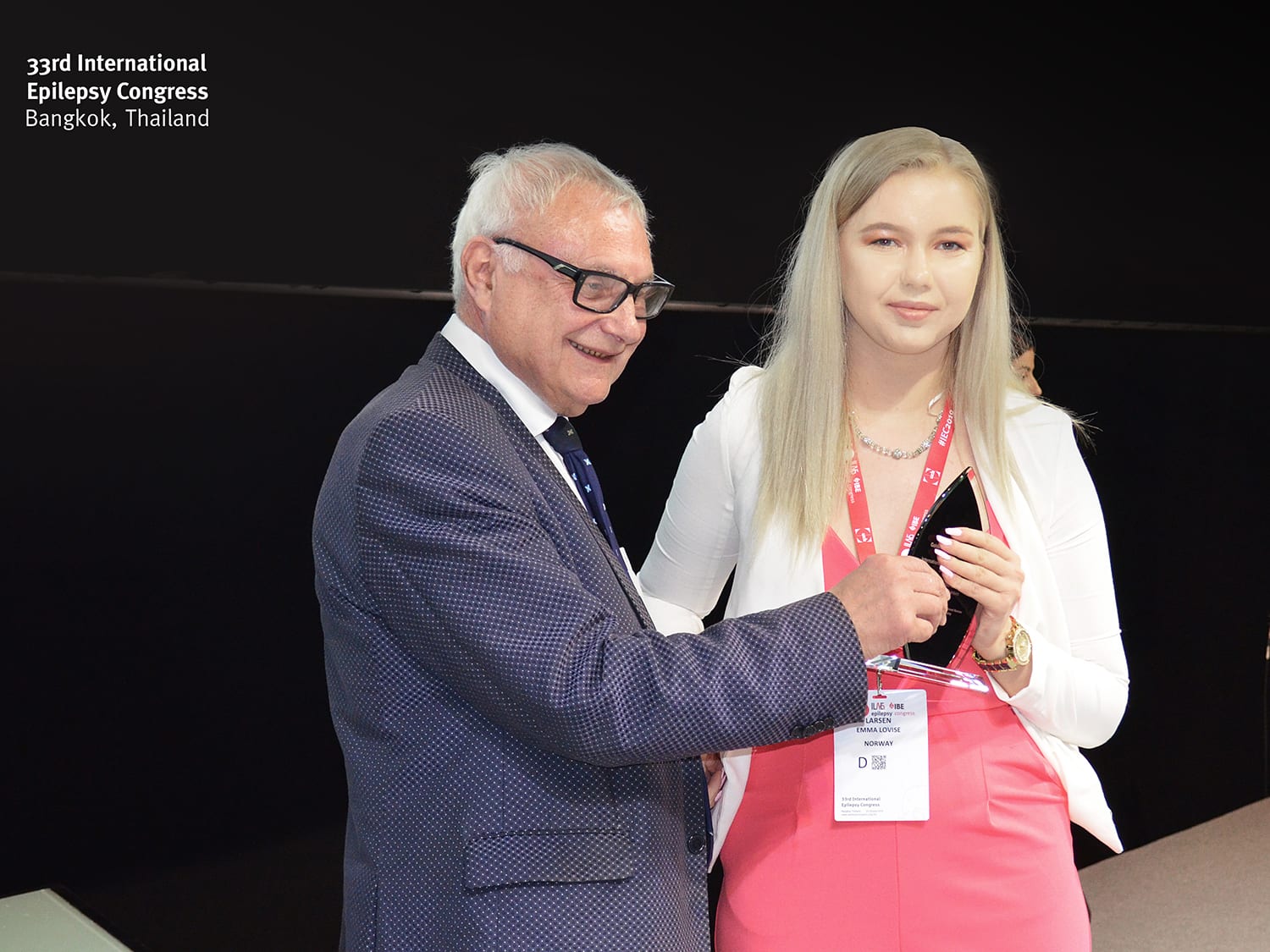
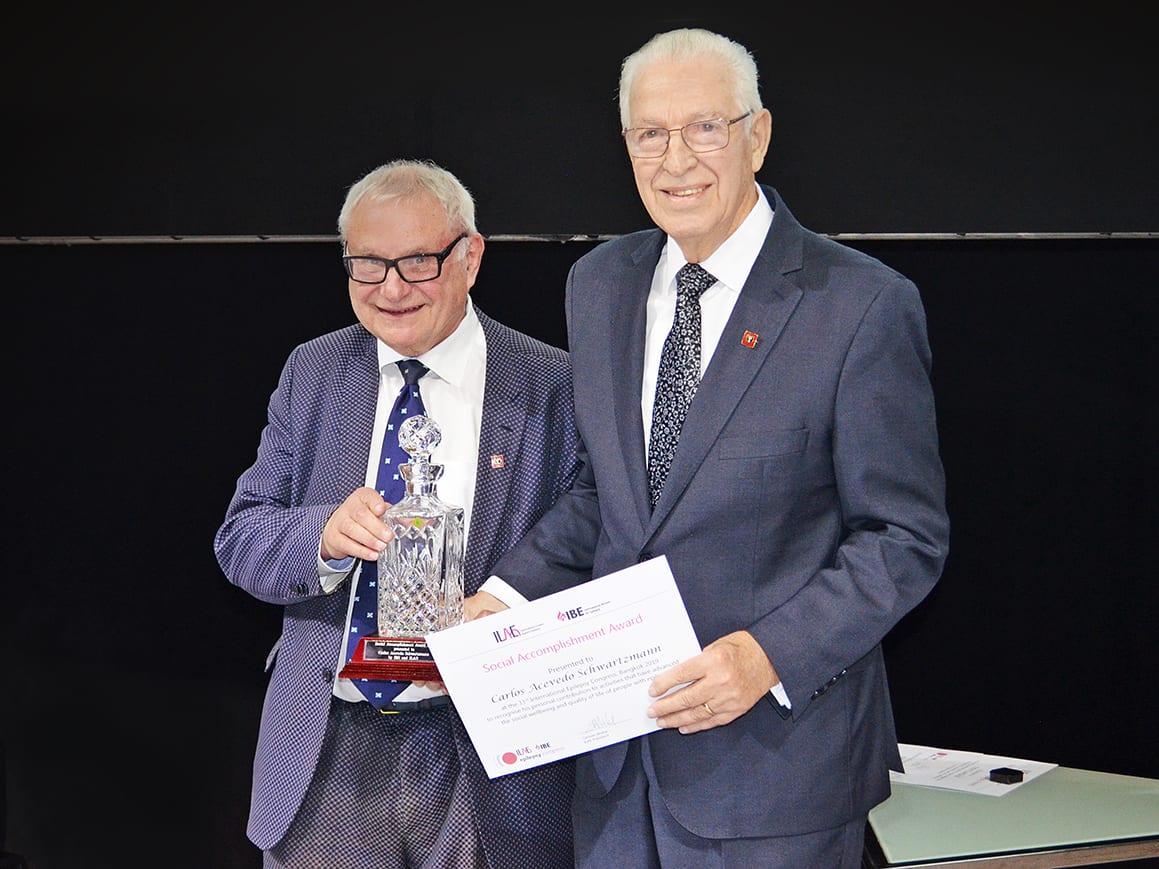
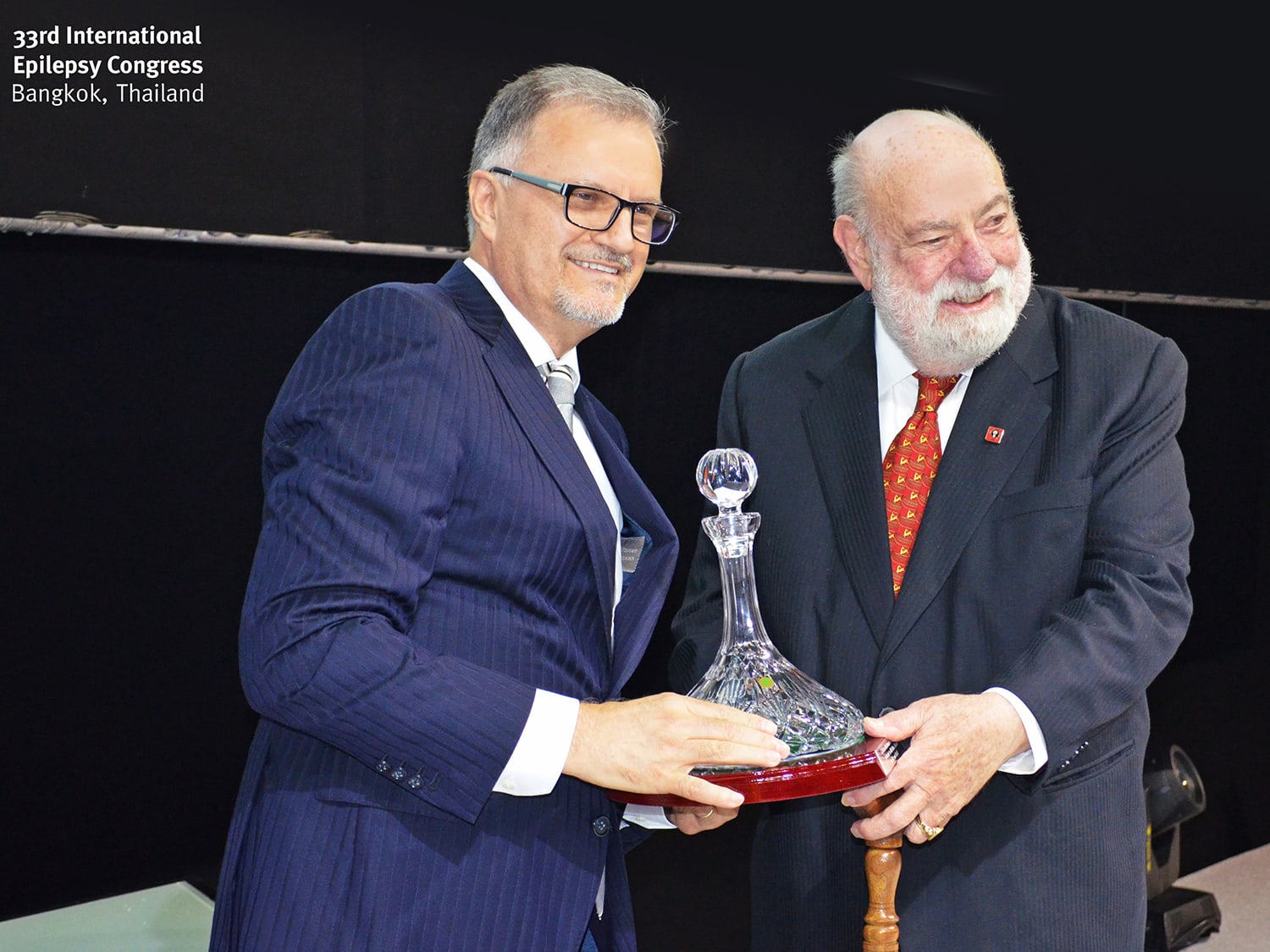
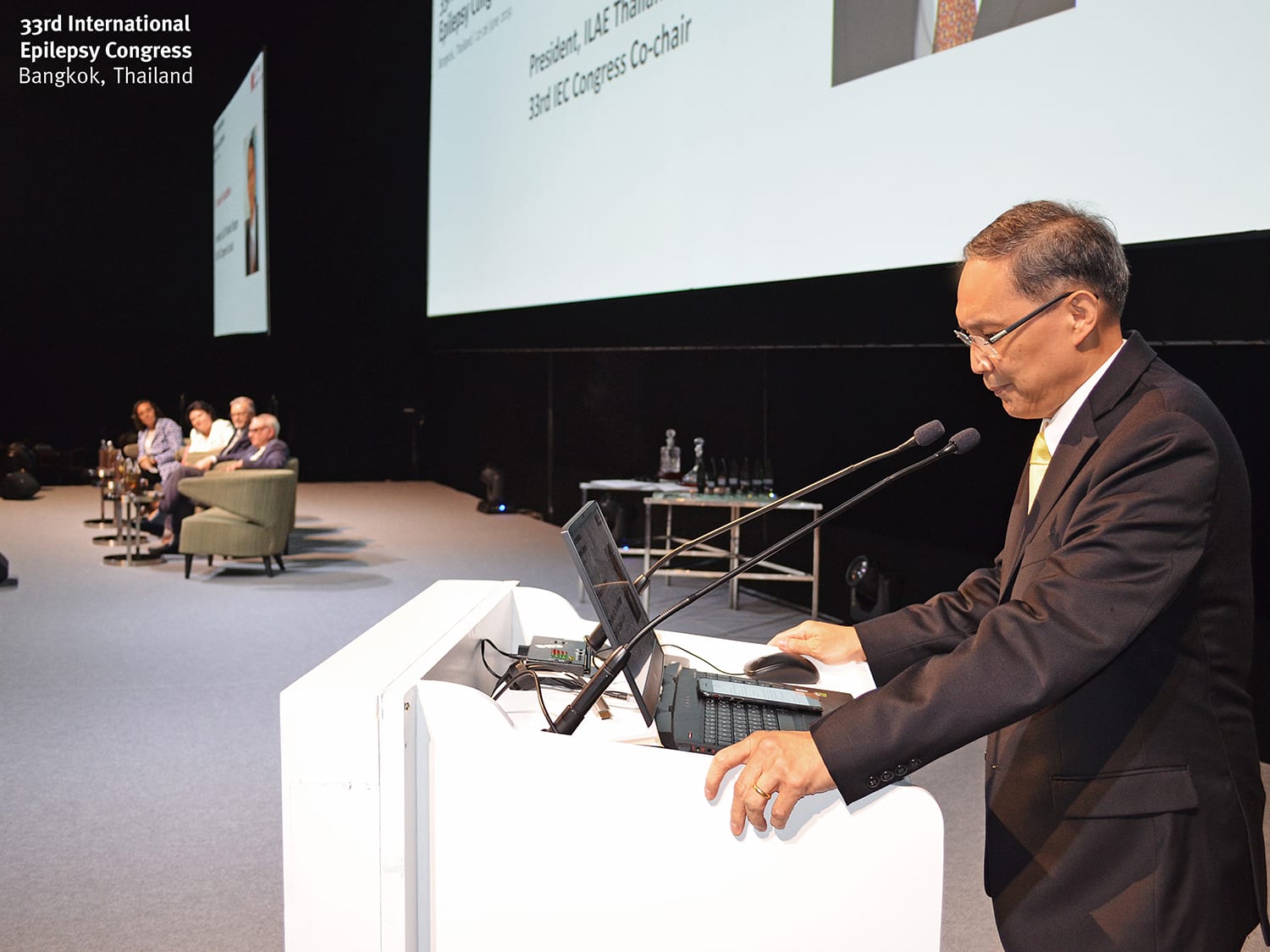
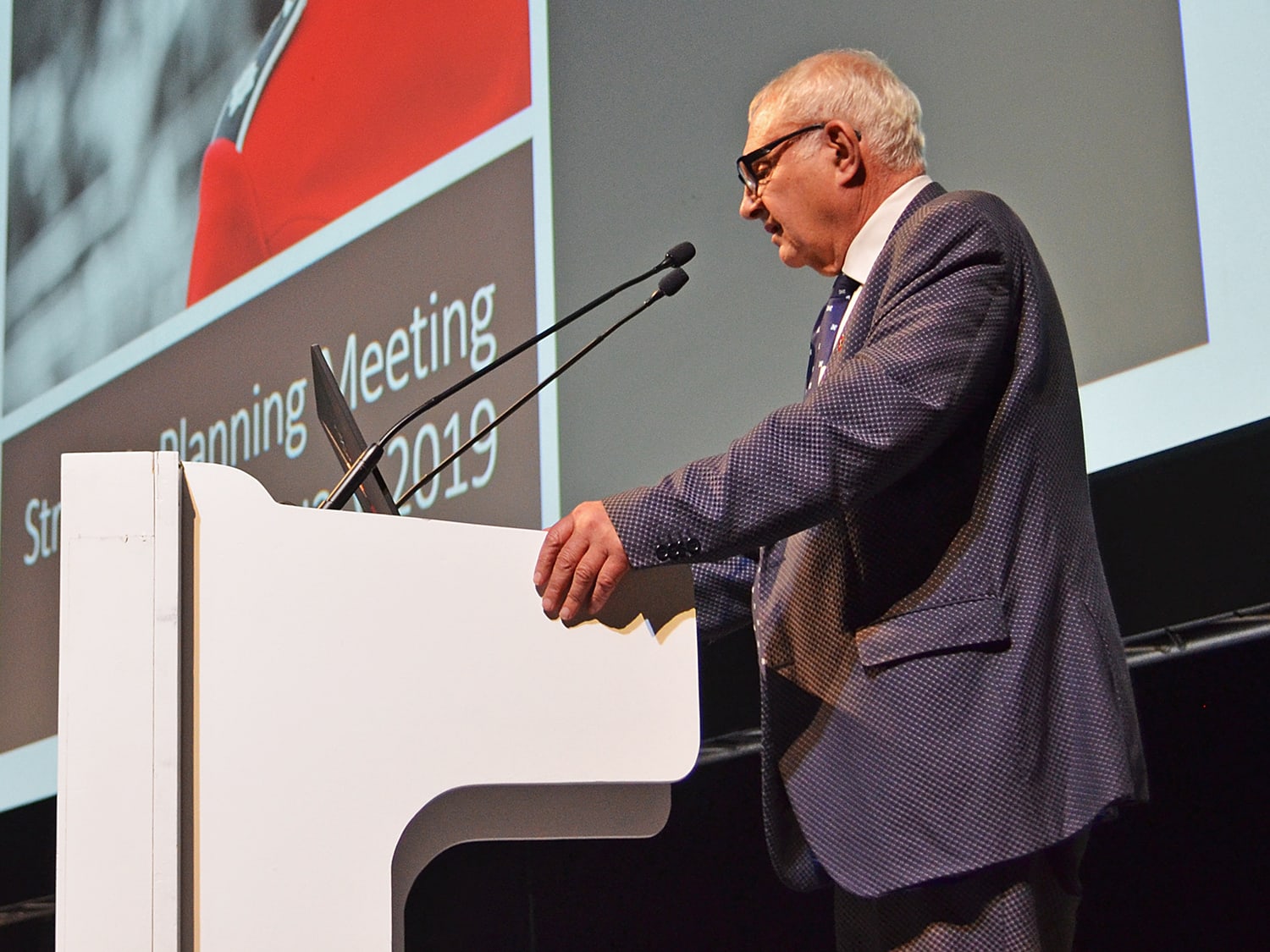
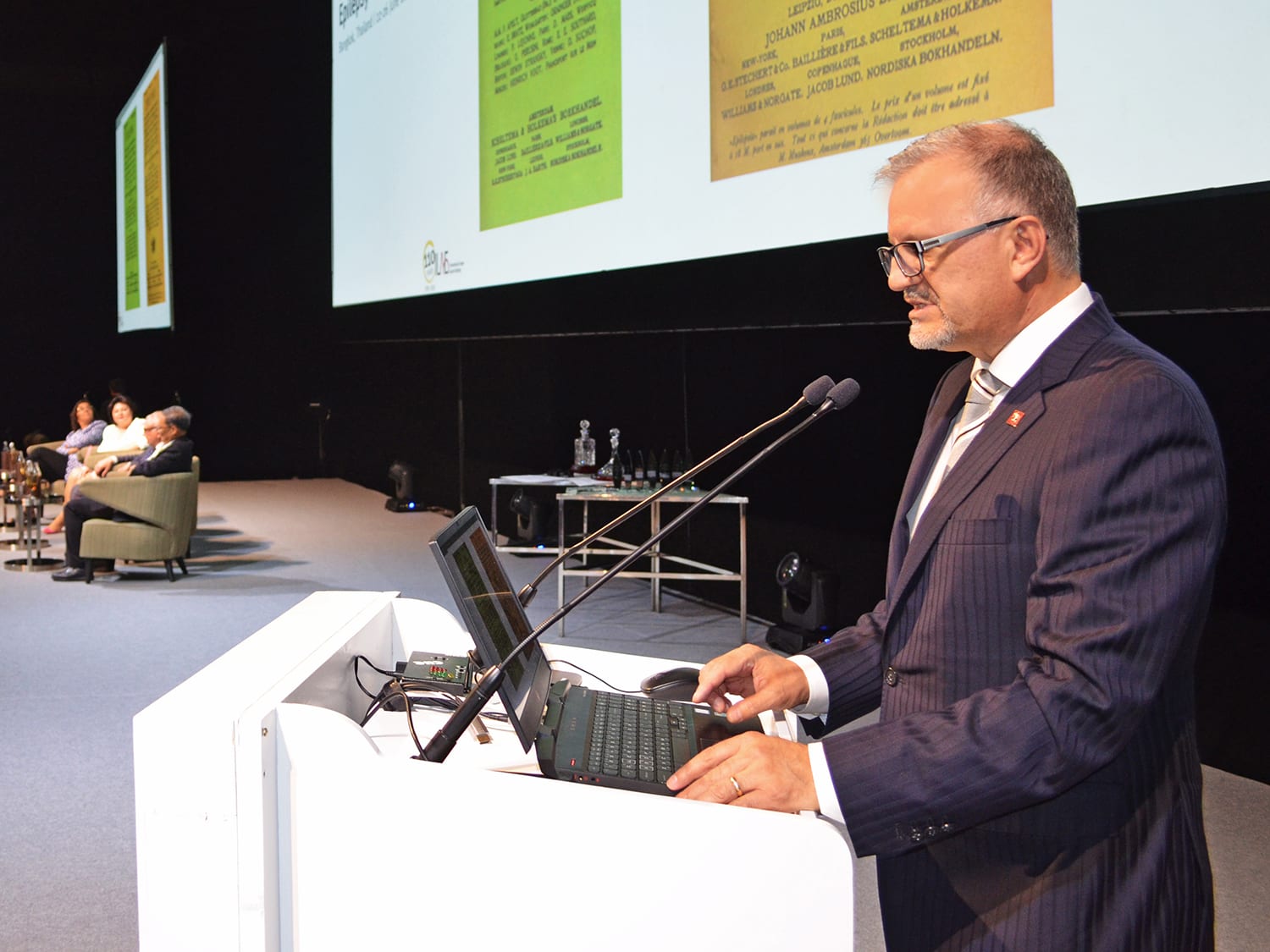
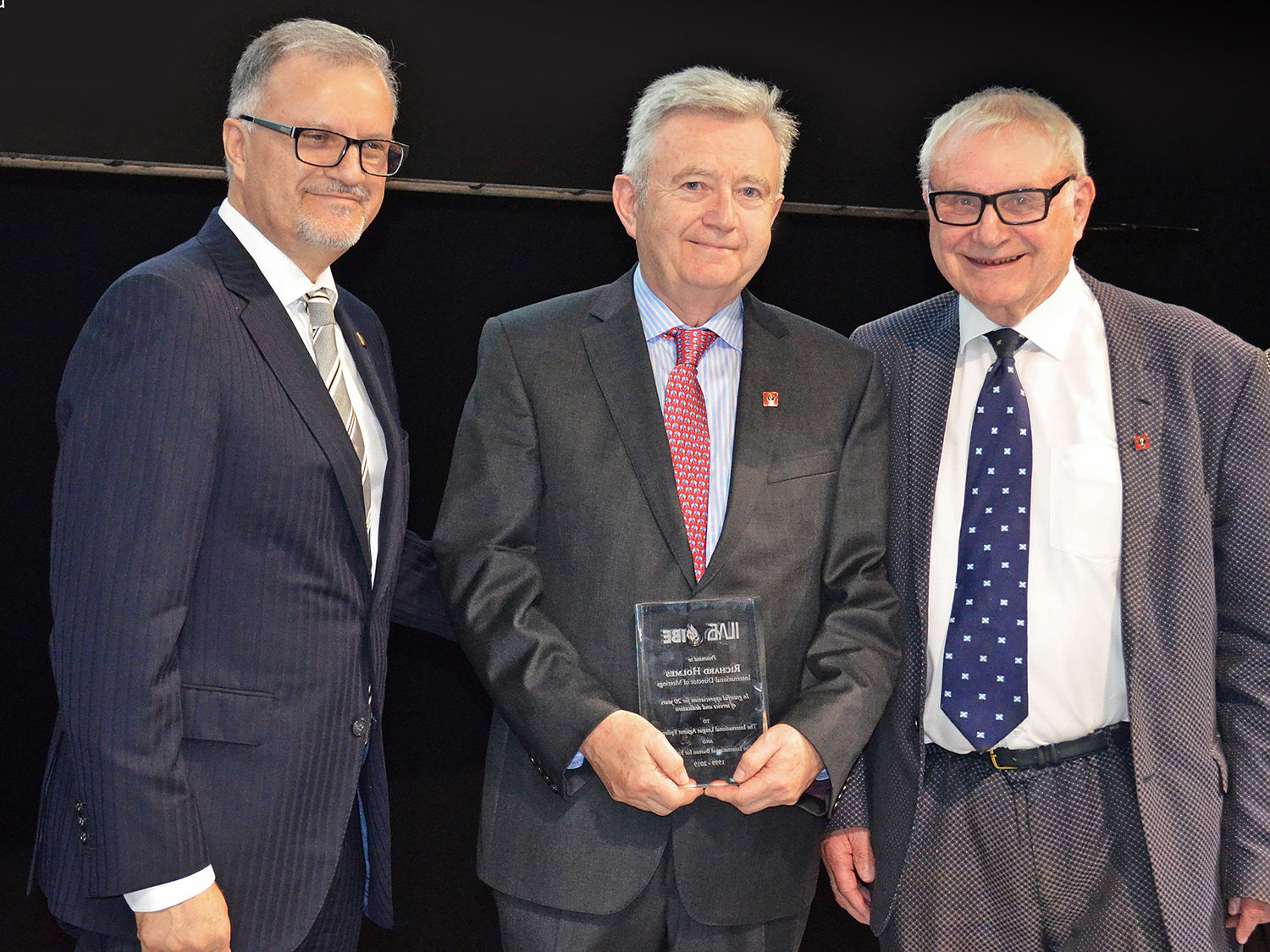
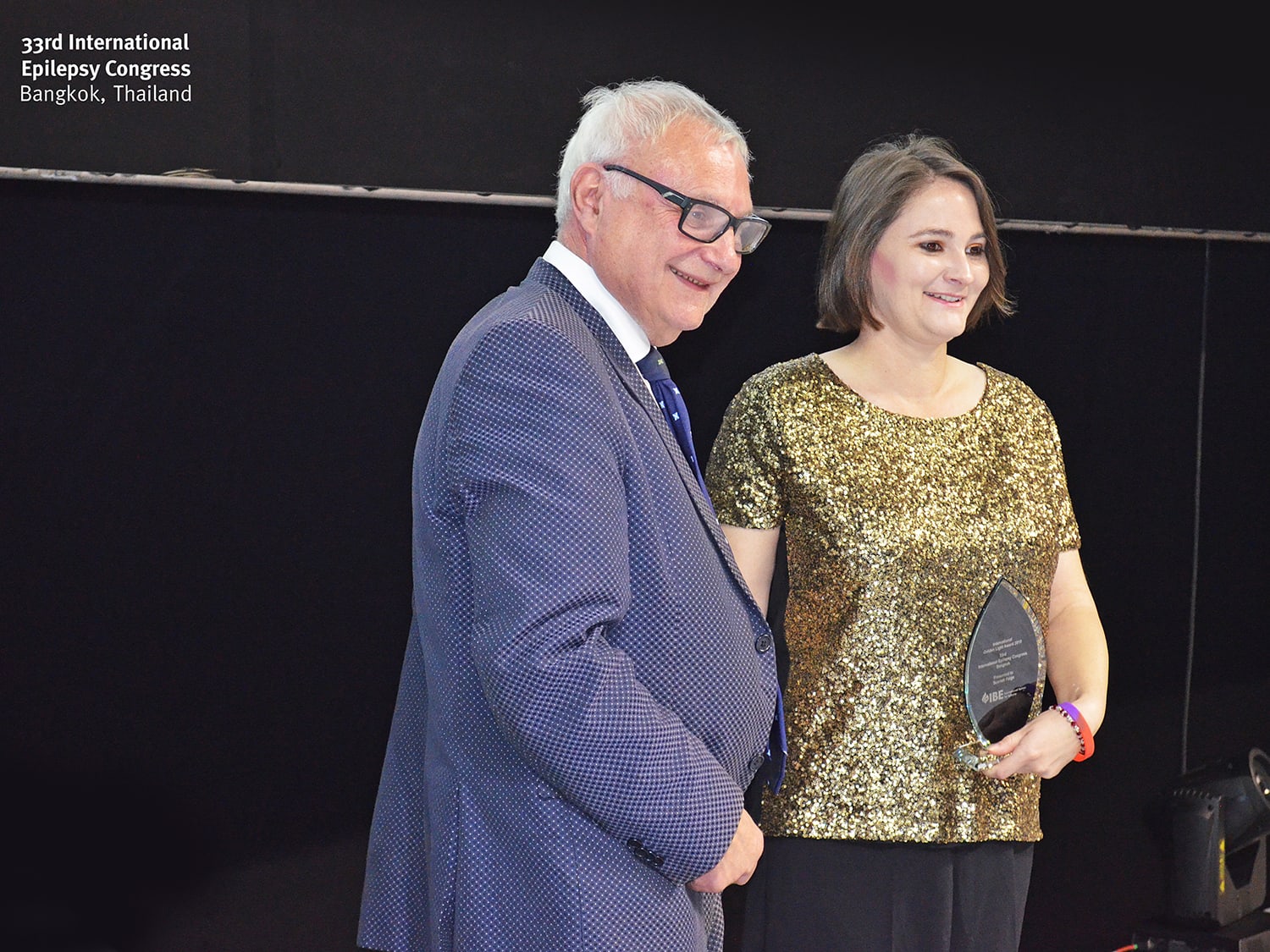
Posters, interactive sessions and teaching courses
Candids and selfie wall
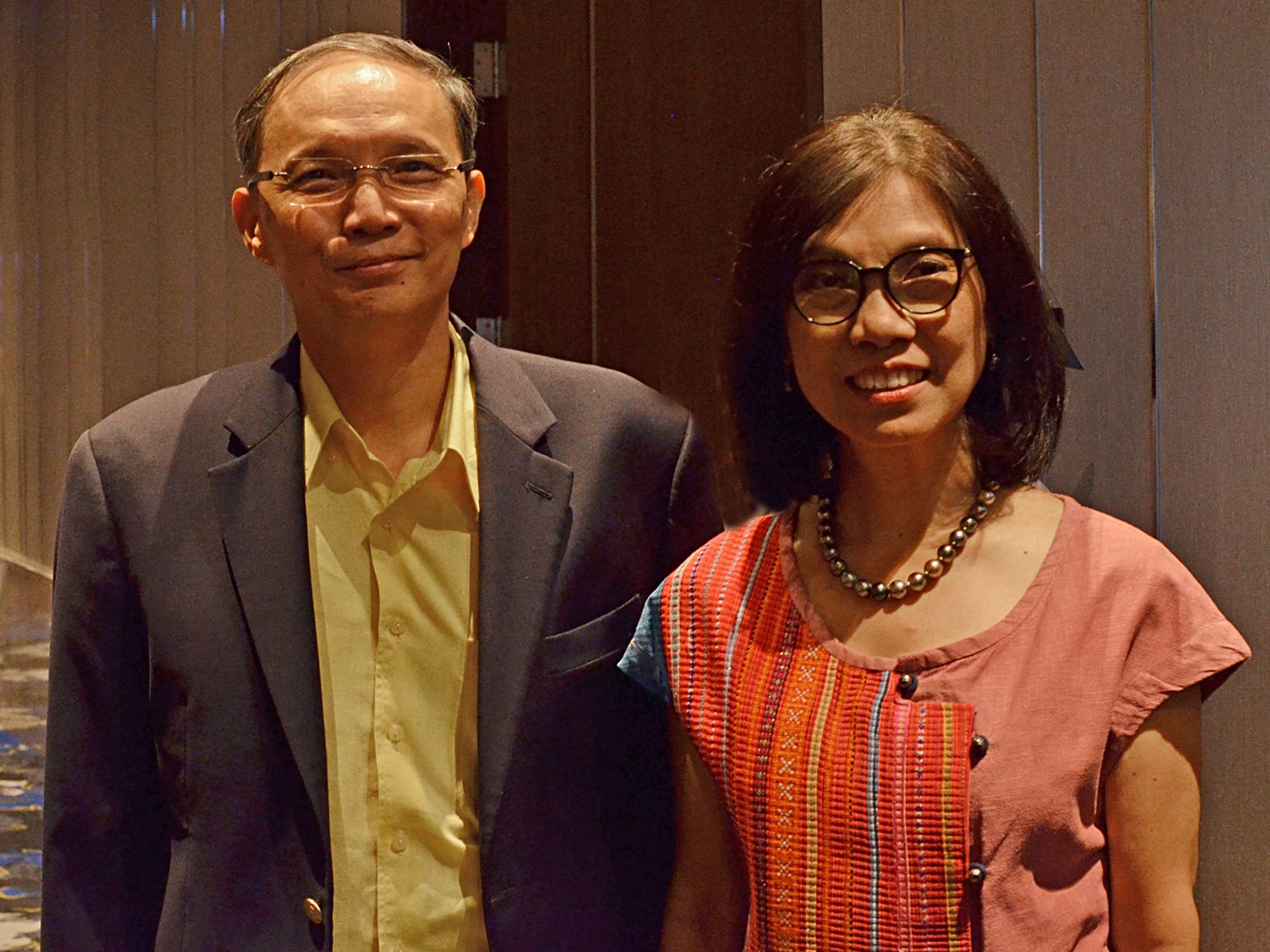
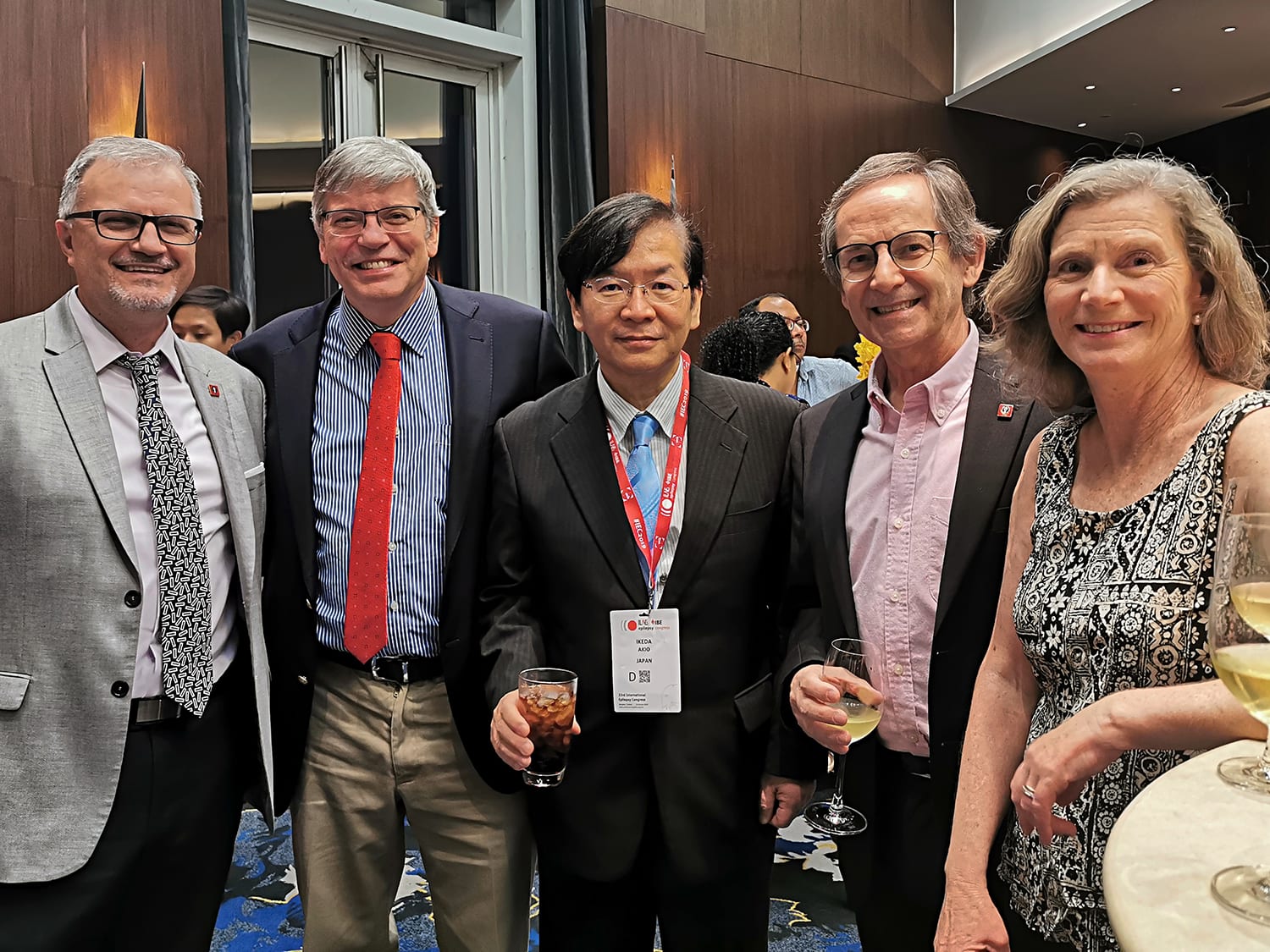
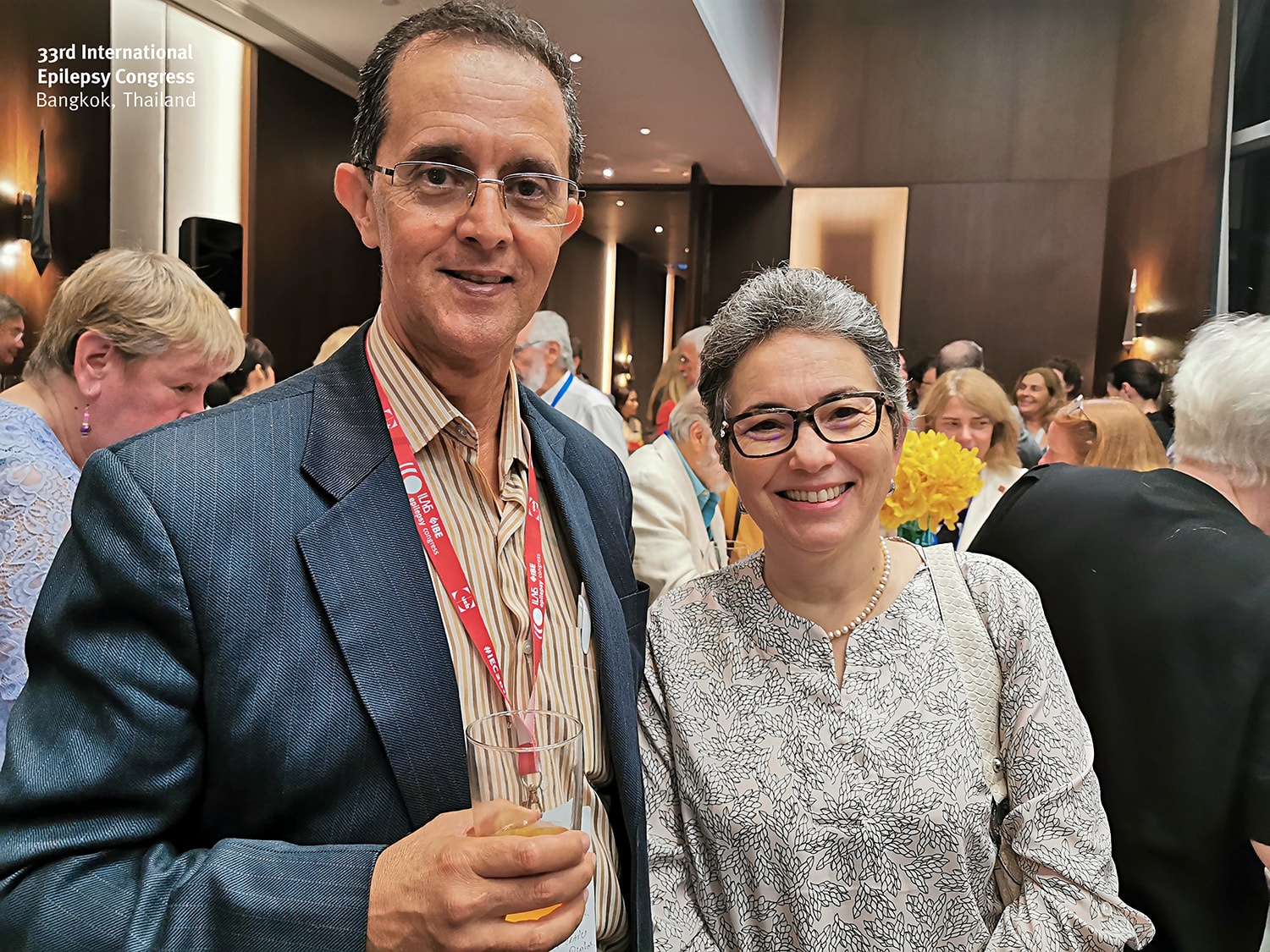
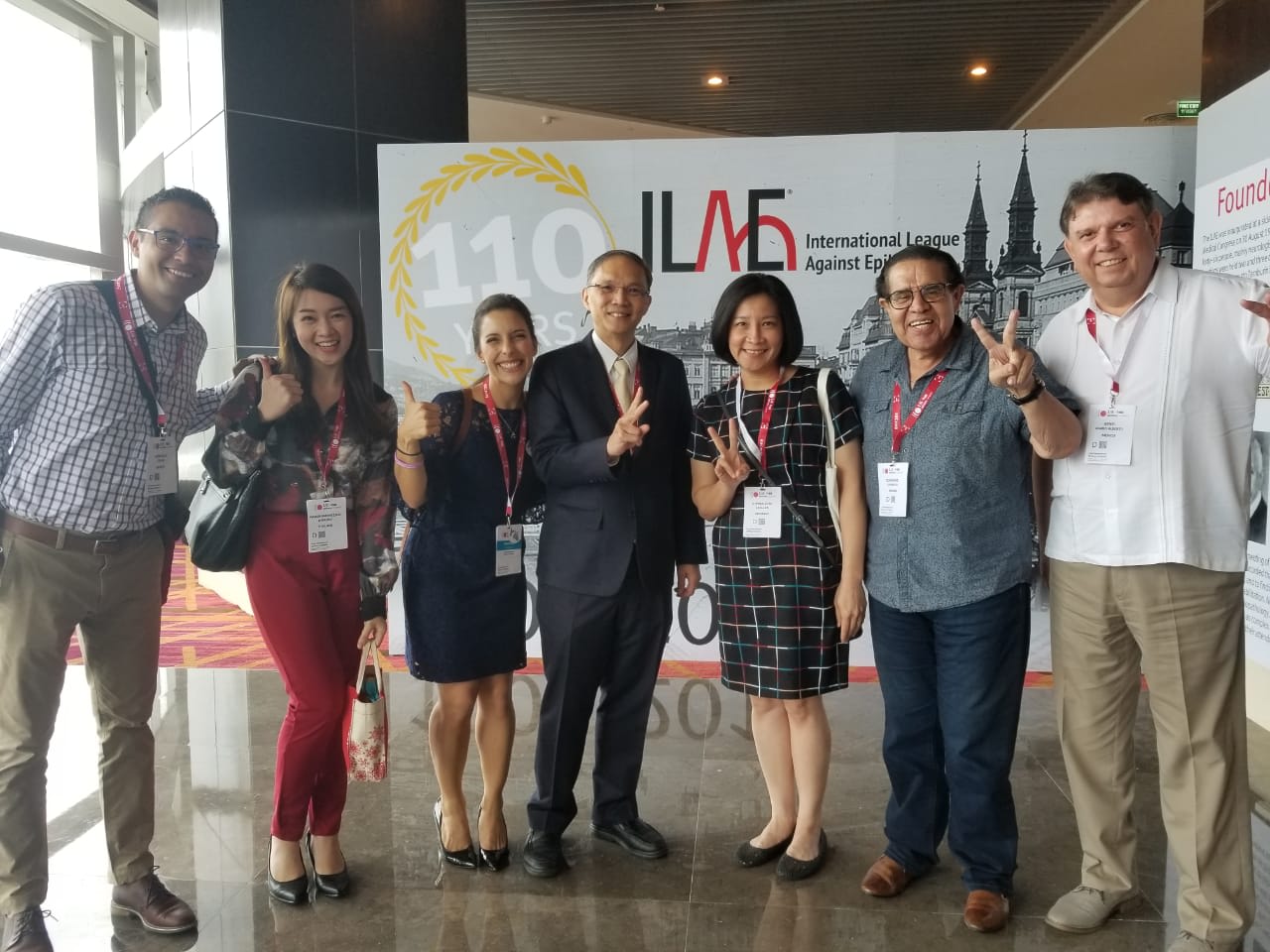
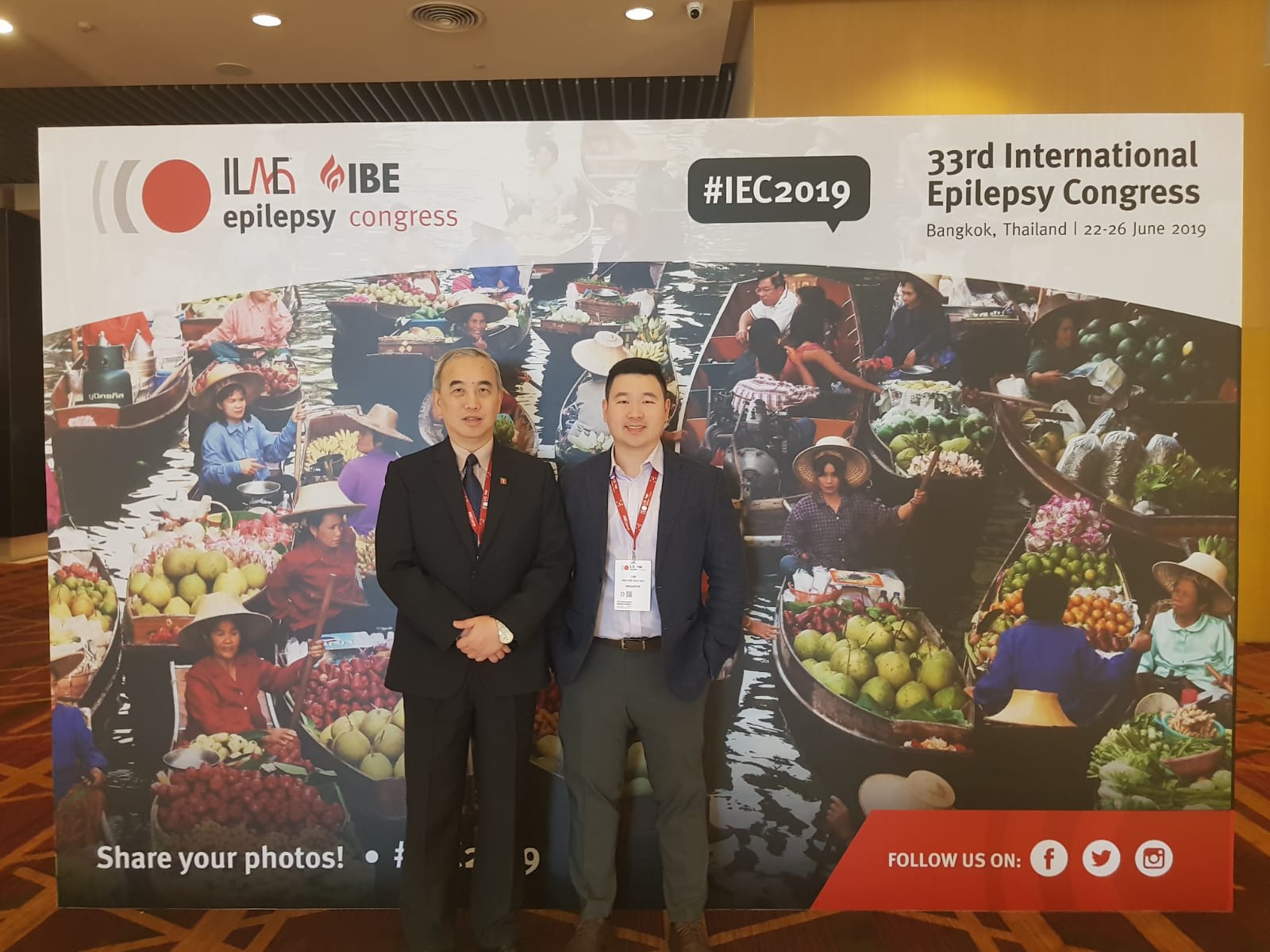
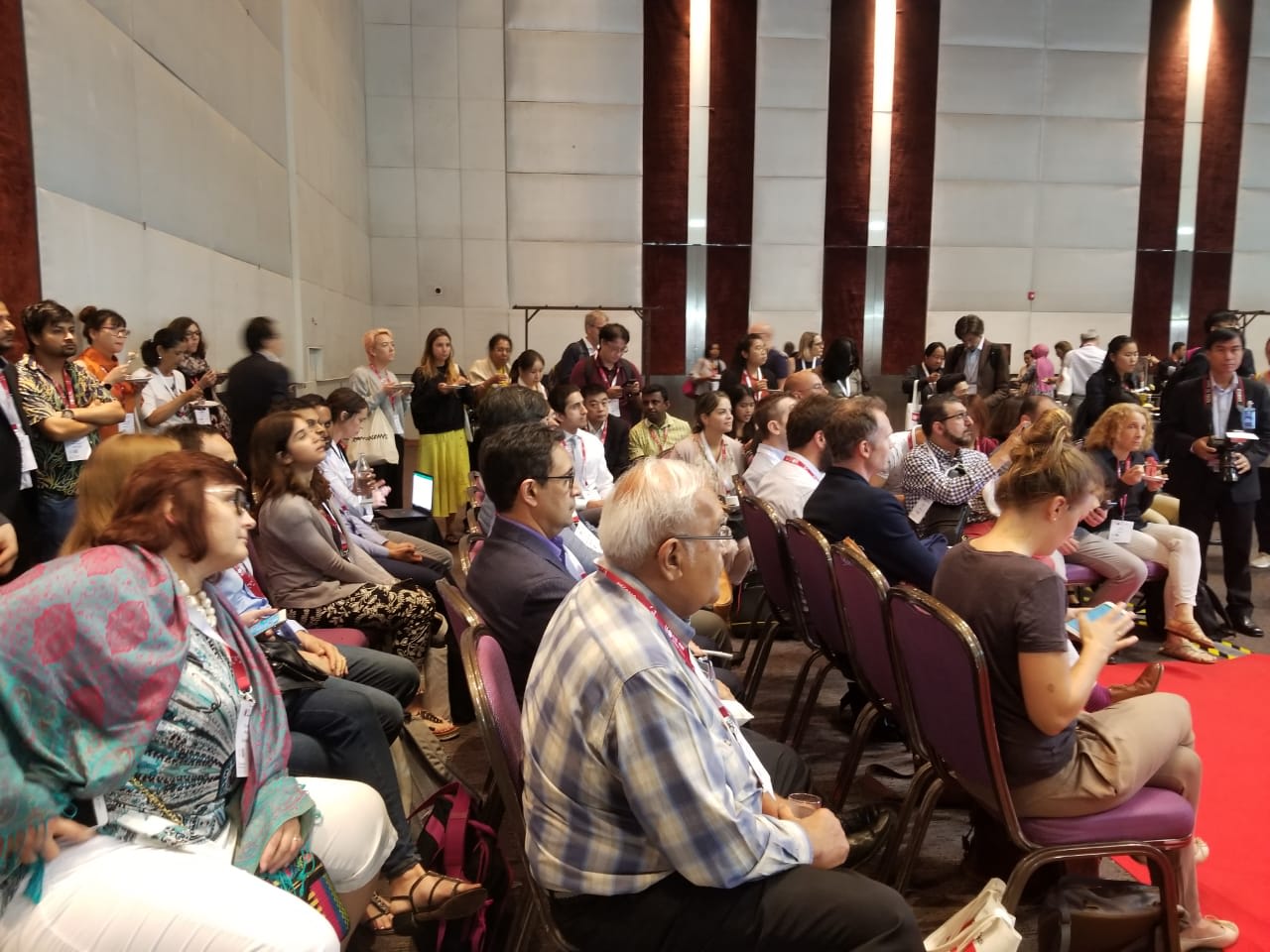
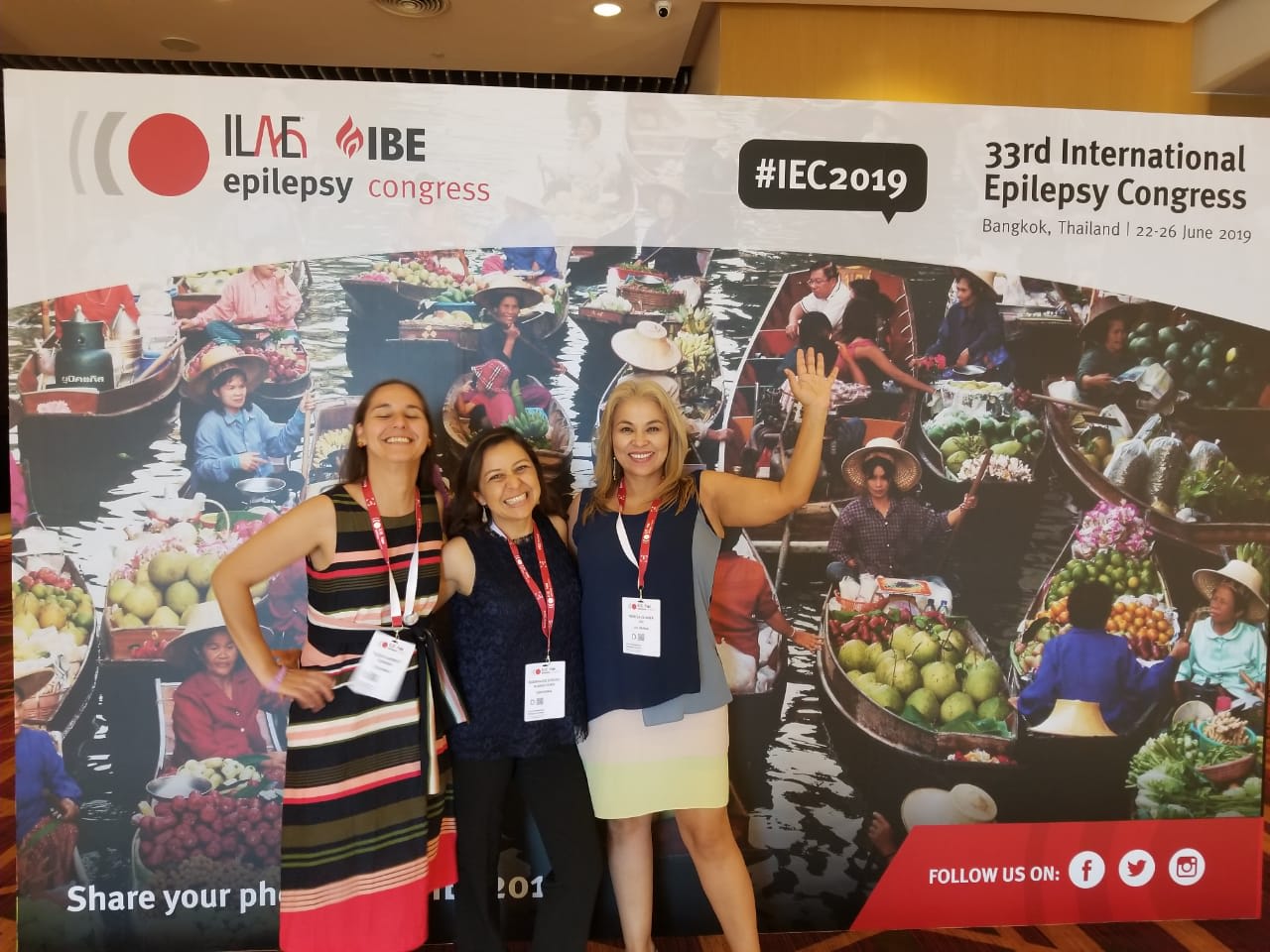
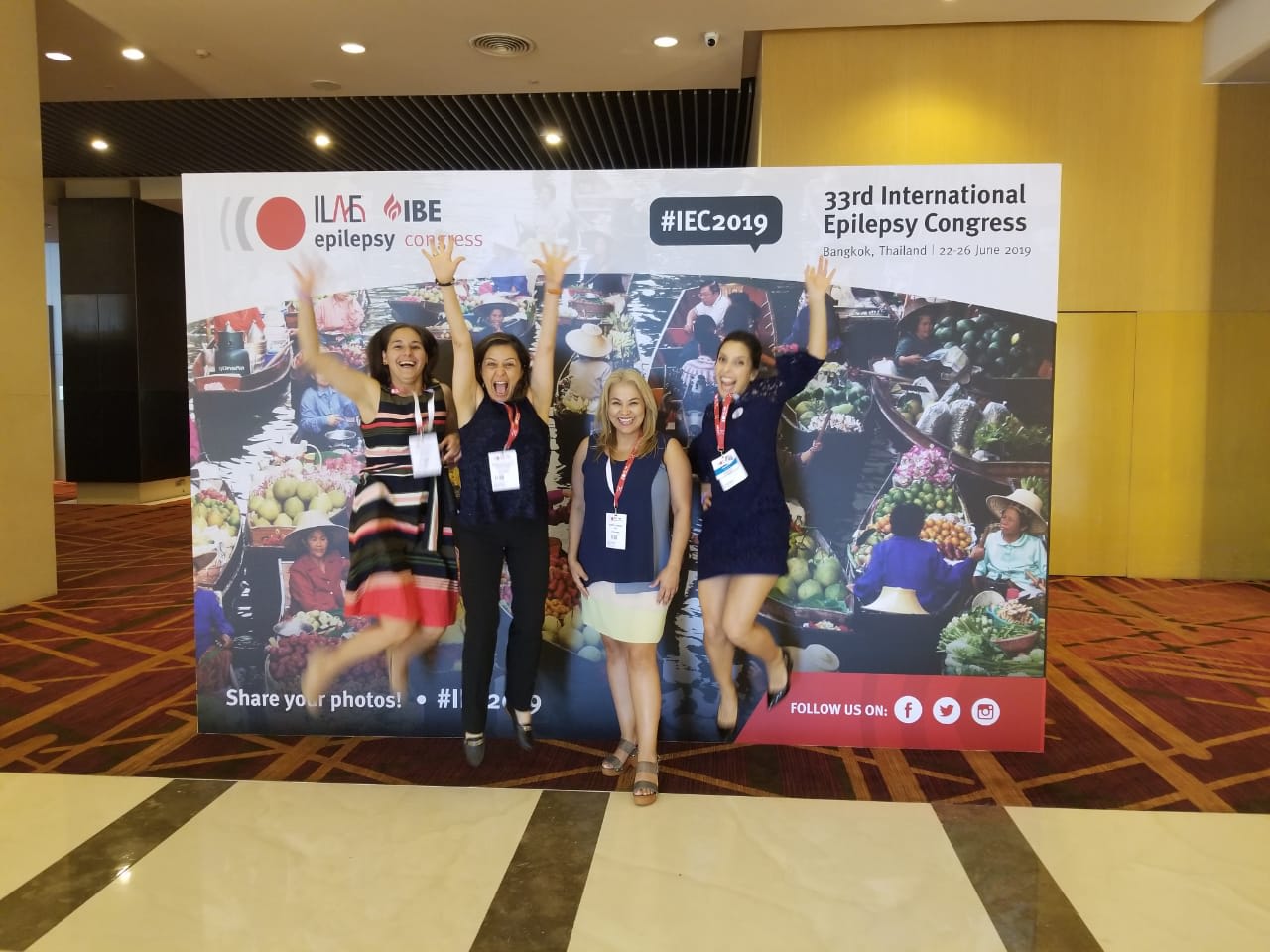

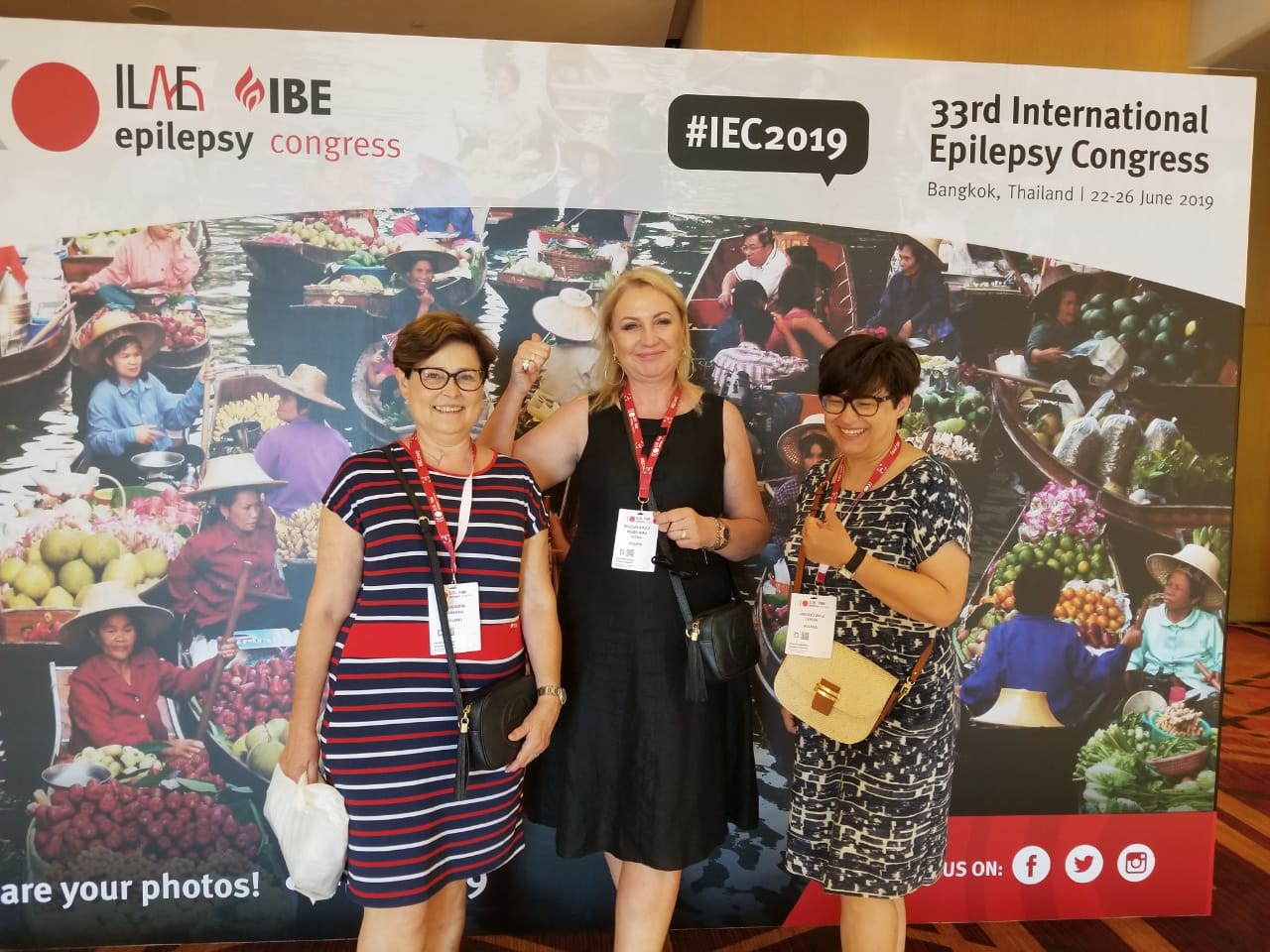
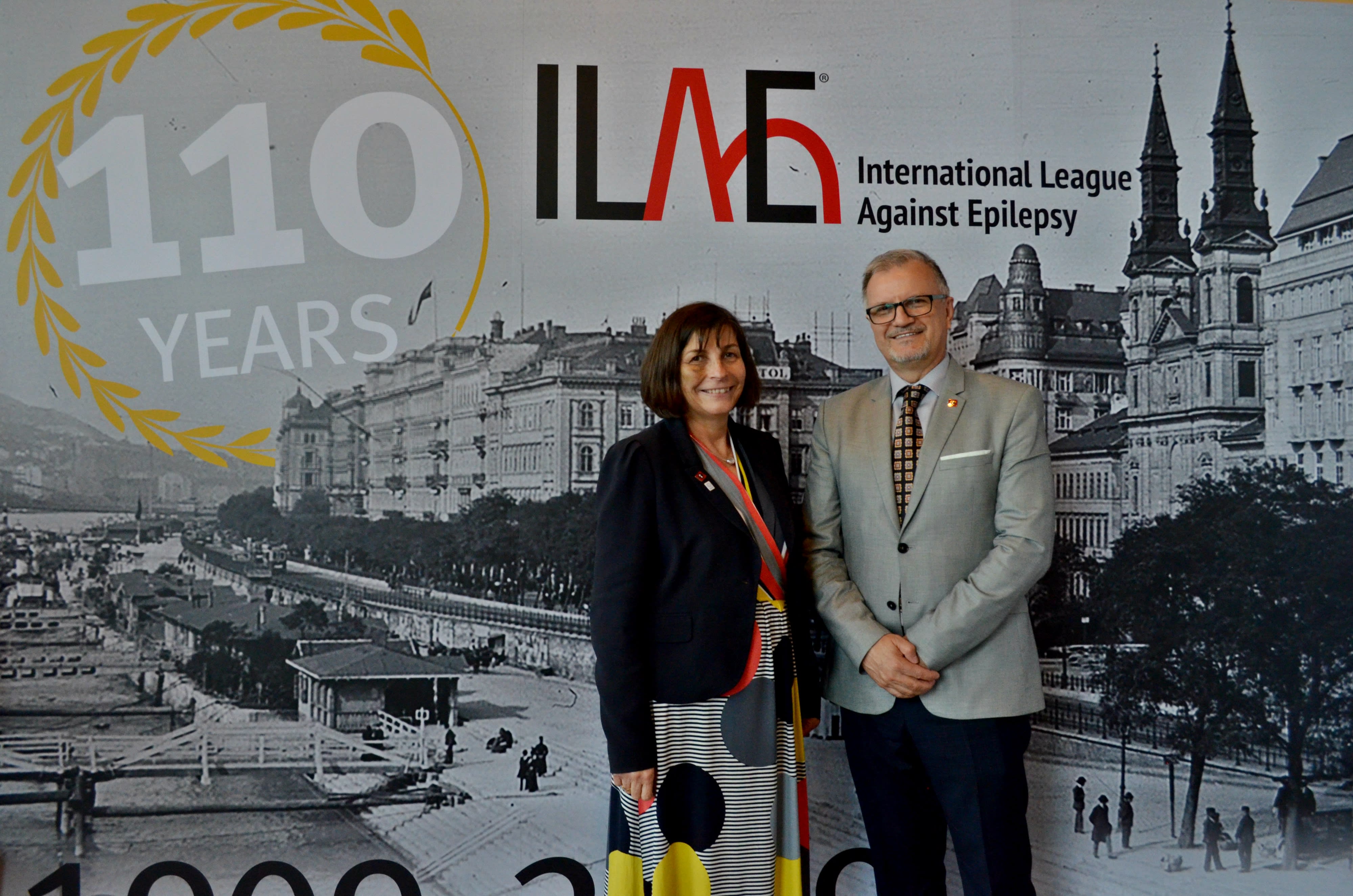
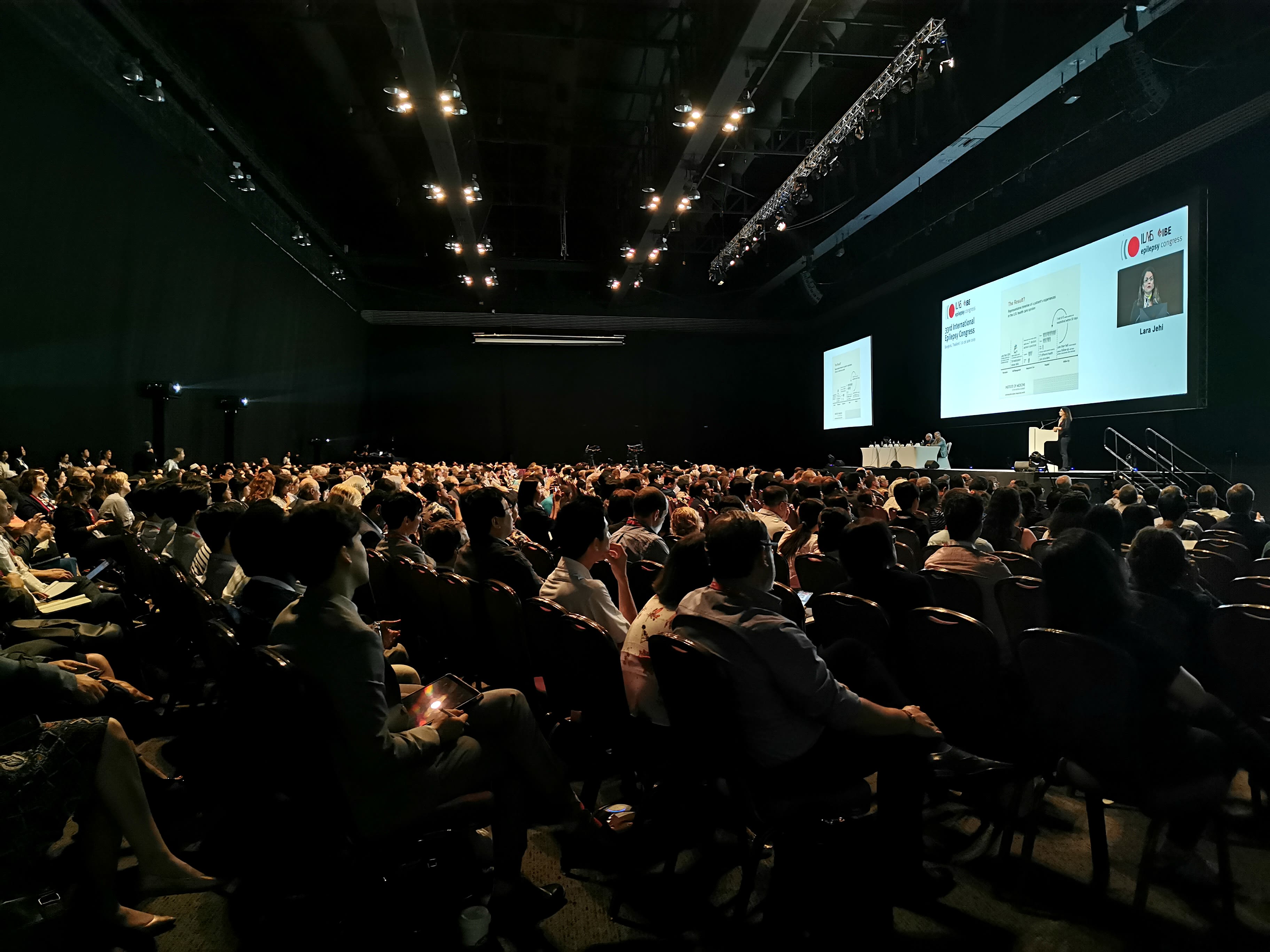
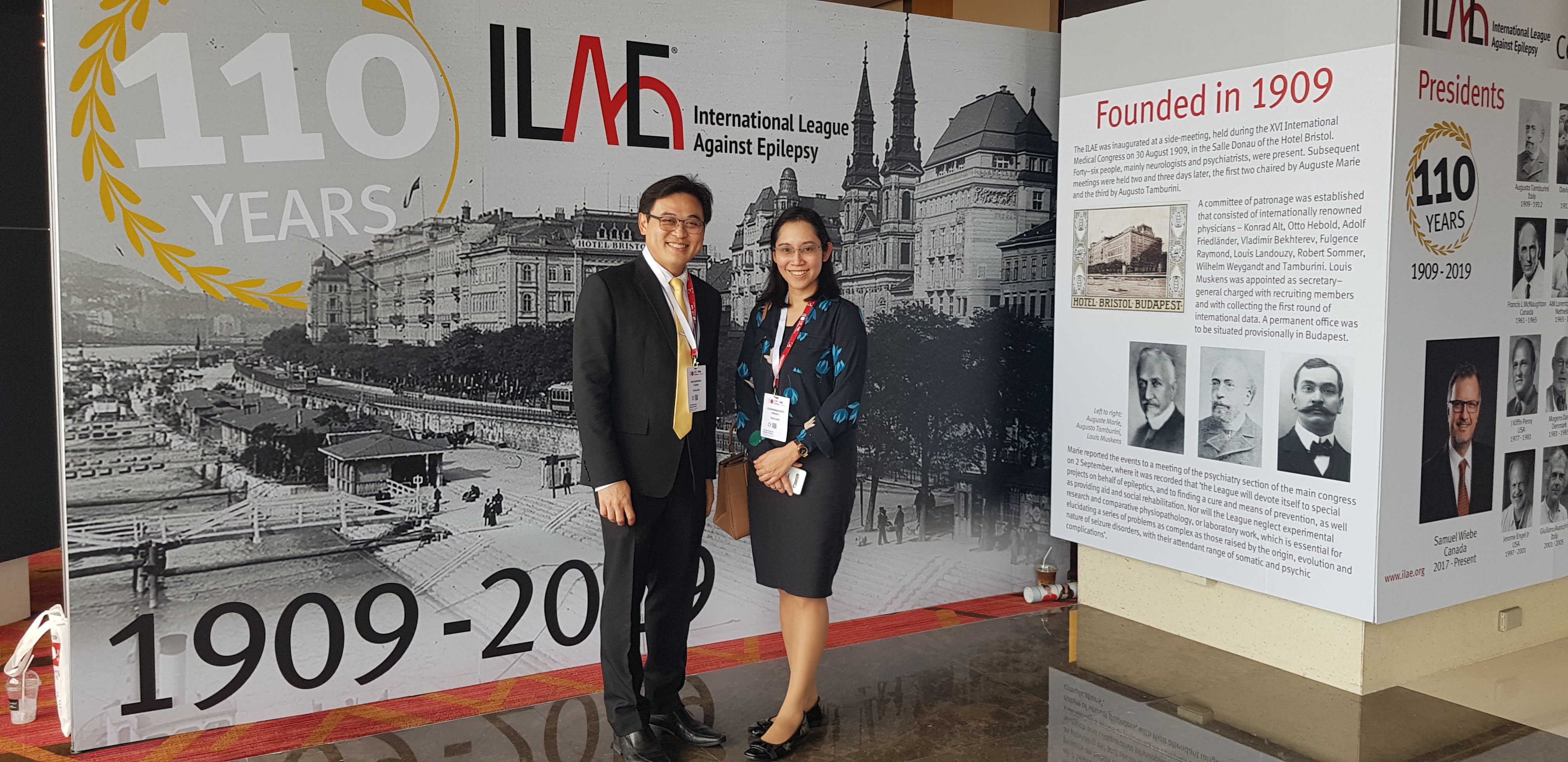
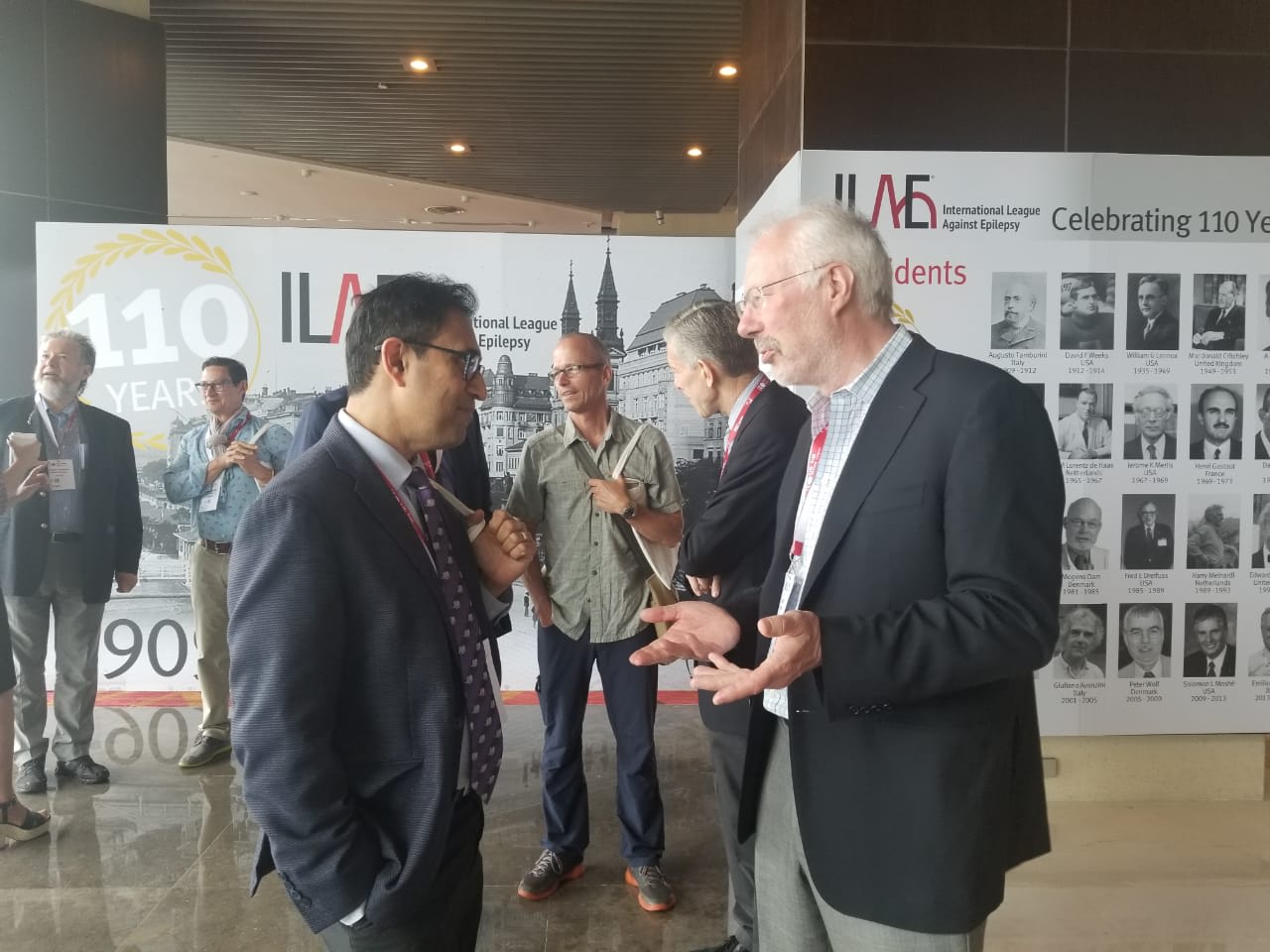
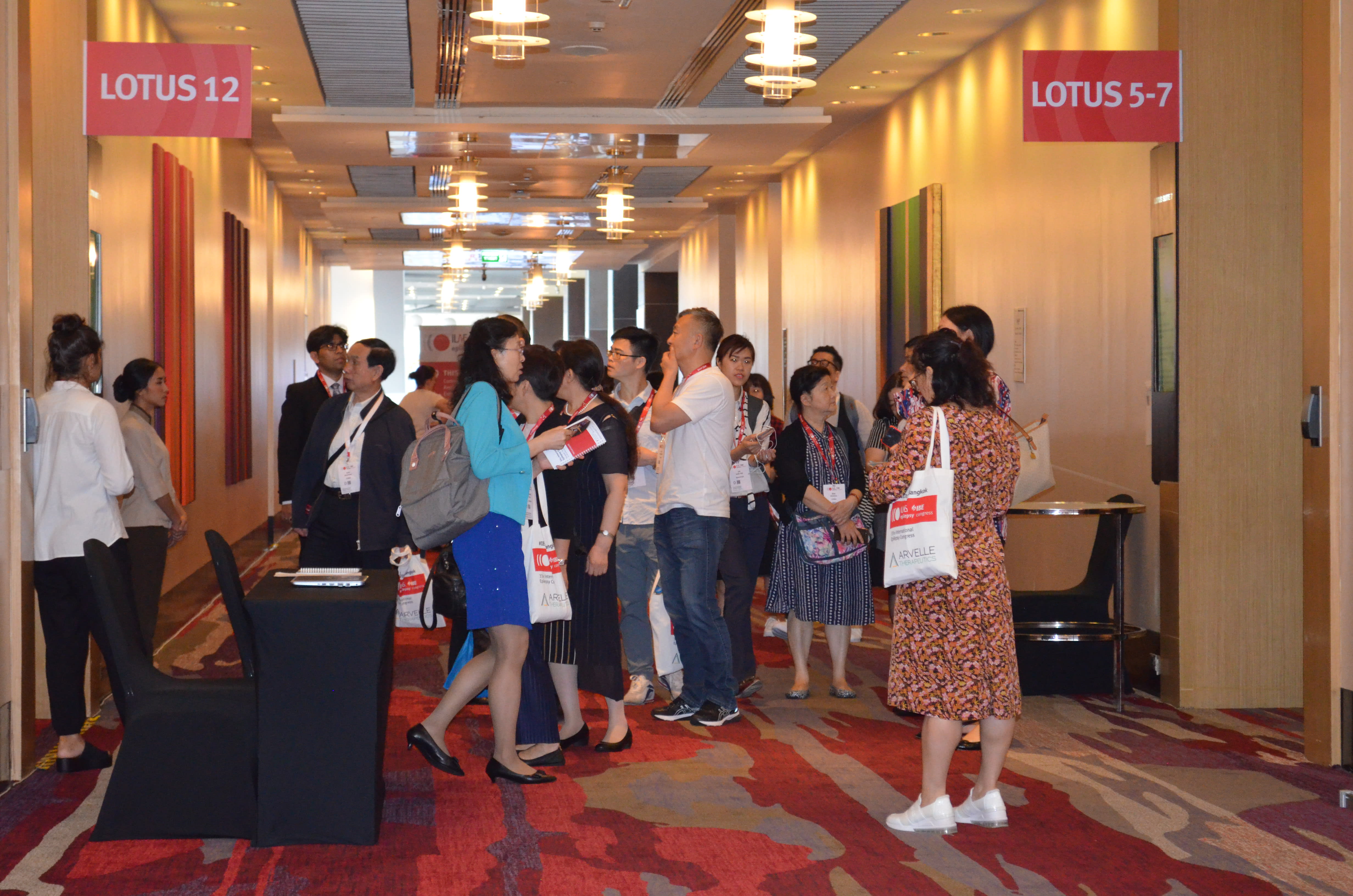
Scientific and Organizing Committee co-chairs
Samuel Wiebe (Canada), President, ILAE
Martin Brodie (Scotland), President, IBE
Anannit Visudtibhan (Thailand), President, ILAE Thailand Chapter
Satellite Events
XV Workshop on Neurobiology of Epilepsy (WONOEP 2019)
CME Accreditation
The congress will apply to the European Accreditation Council for Continuing Medical Education (EACCME), an institution of the European Union of Medical Specialists (UEMS) for CME accreditation. Please visit uems.net for further information.
EACCME credits are recognized by the American Medical Association toward the Physician's Recognition Award (PRA). For further details, please visit ama-assn.org.

Subscribe to the ILAE Newsletter
To subscribe, please click on the button below.
Please send me information about ILAE activities and other
information of interest to the epilepsy community












